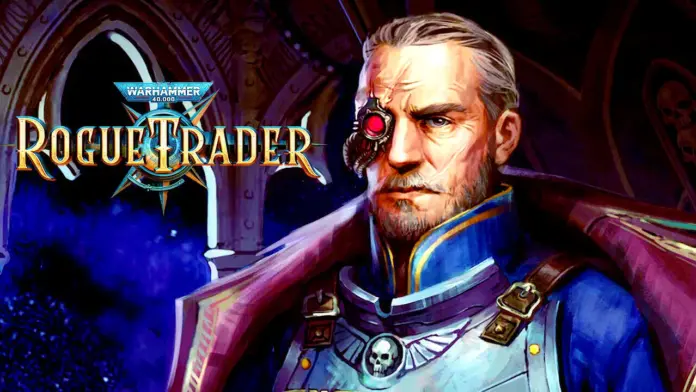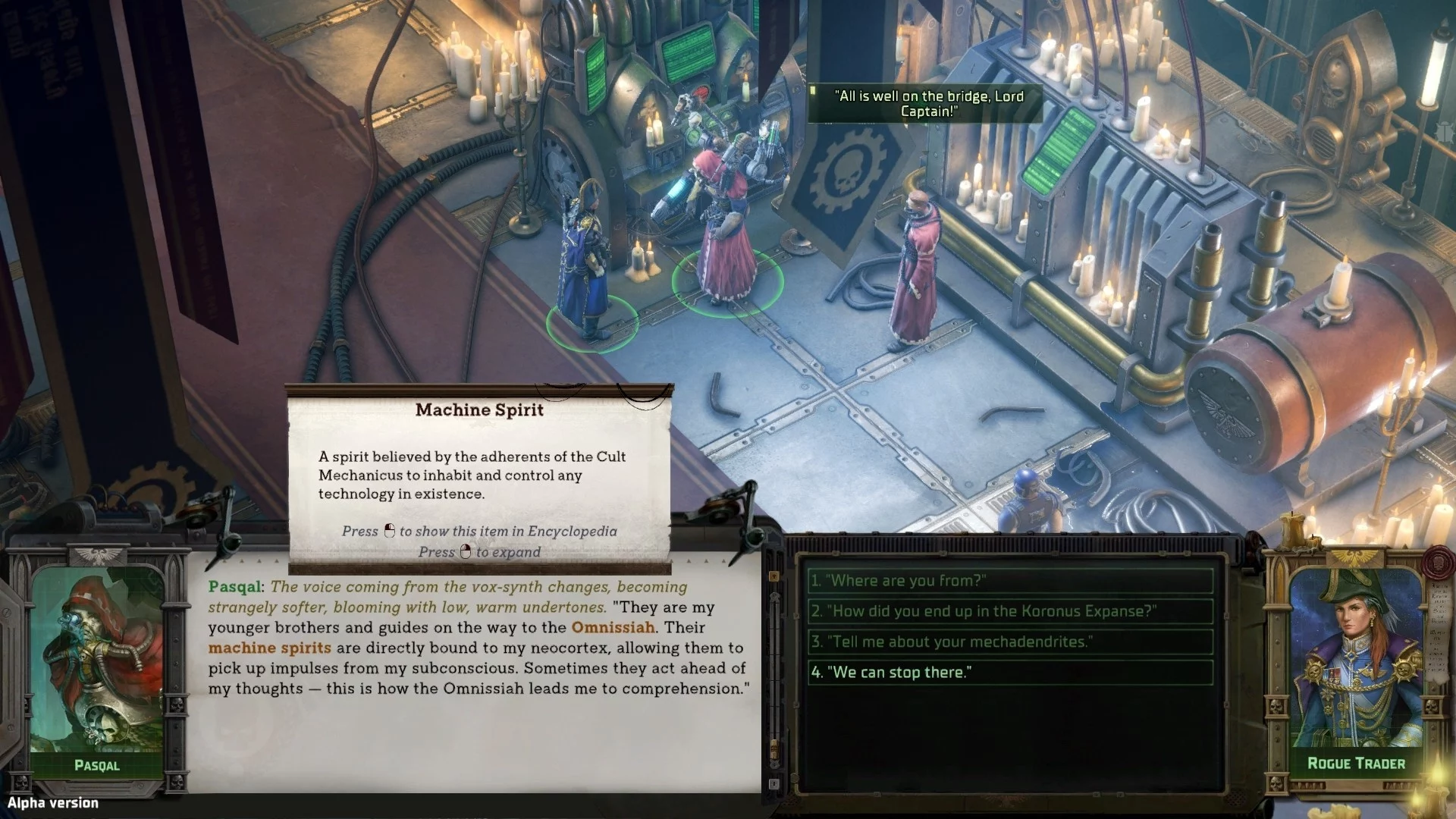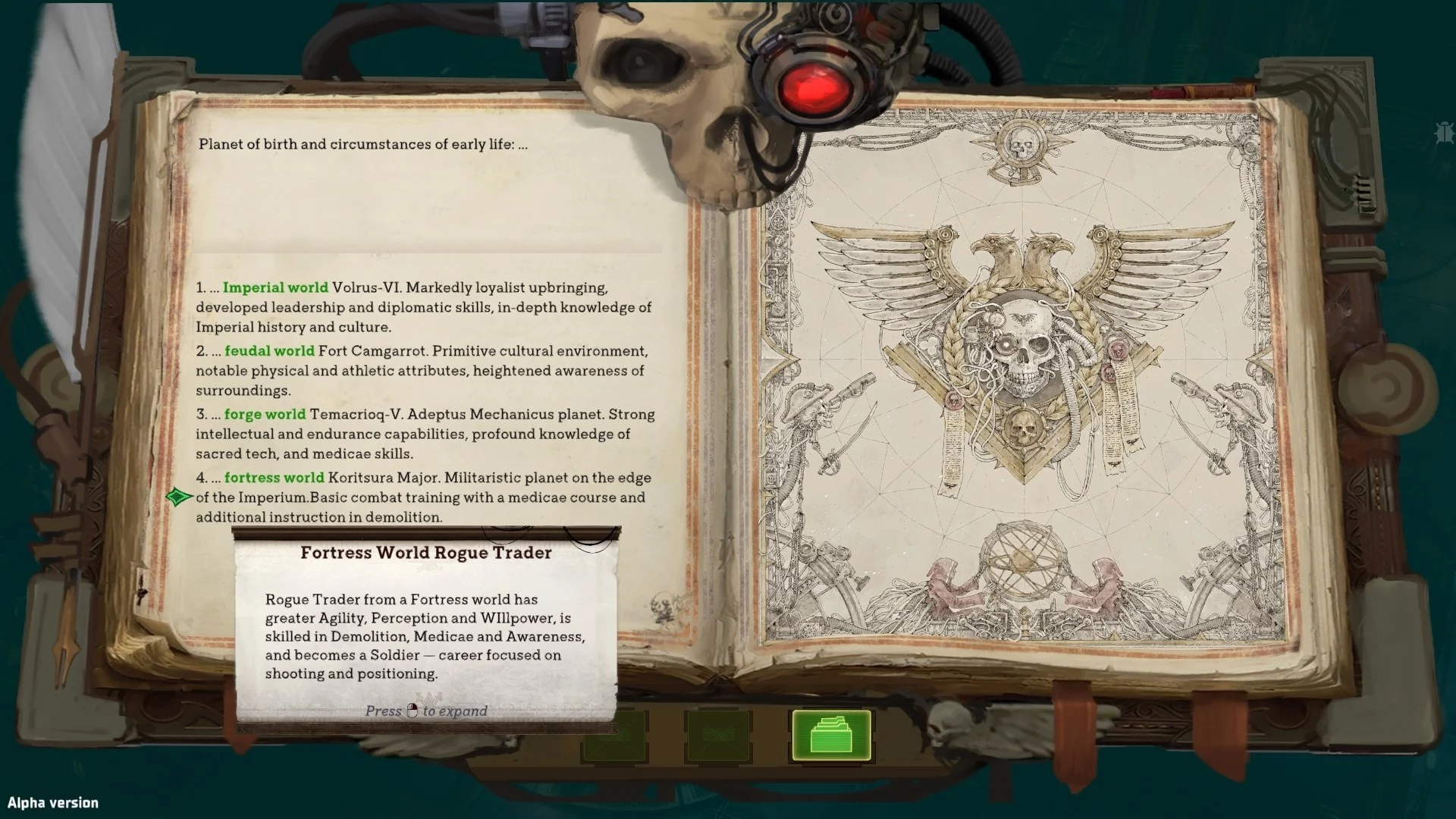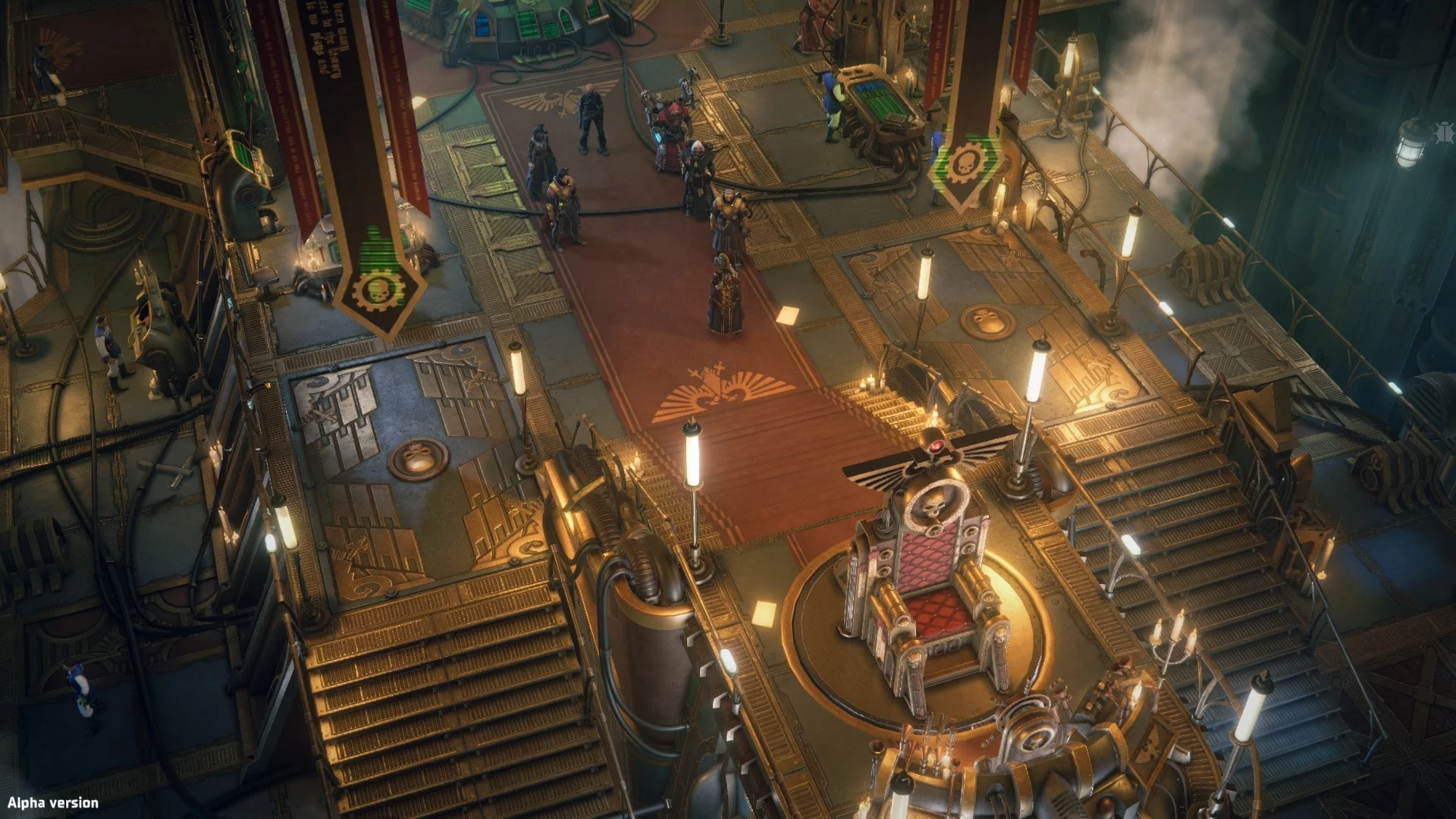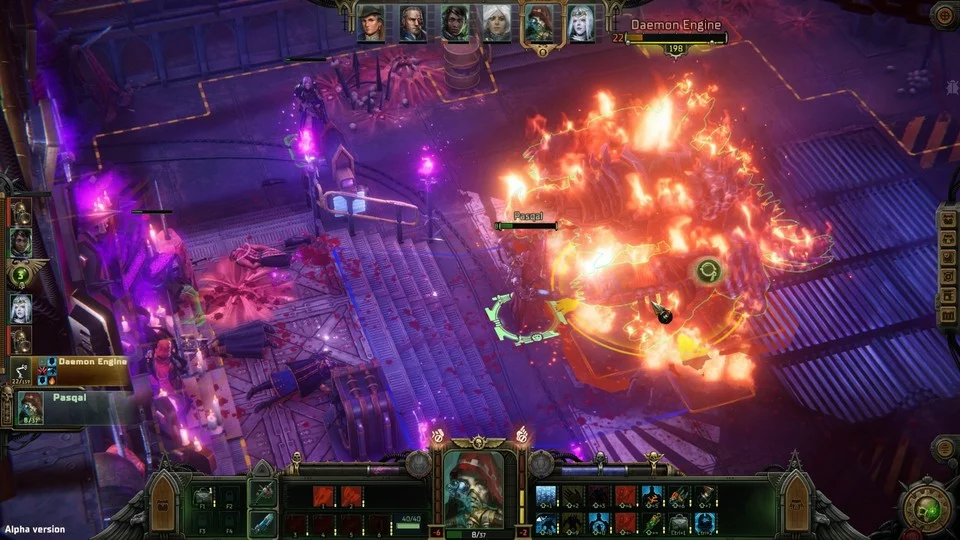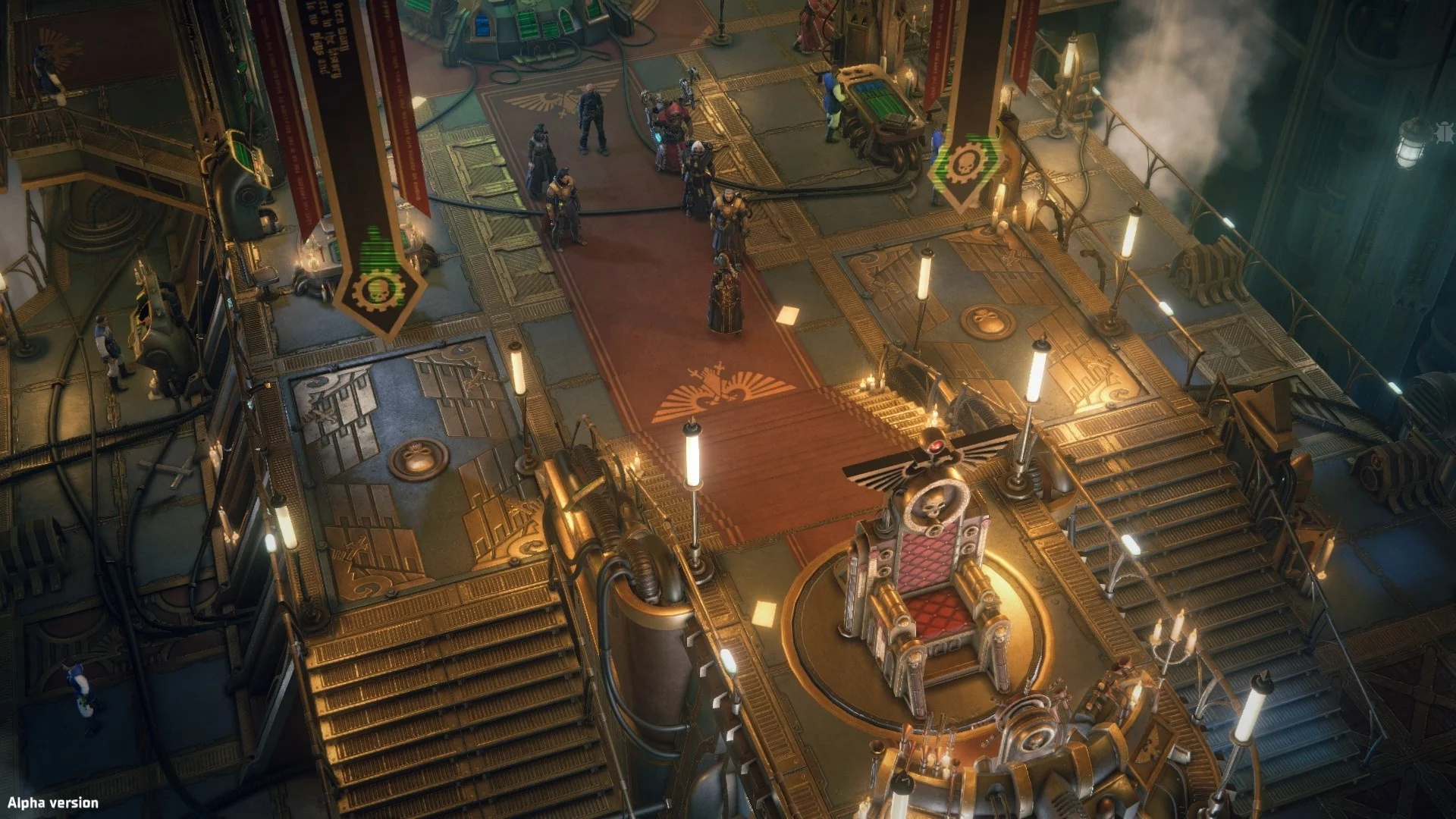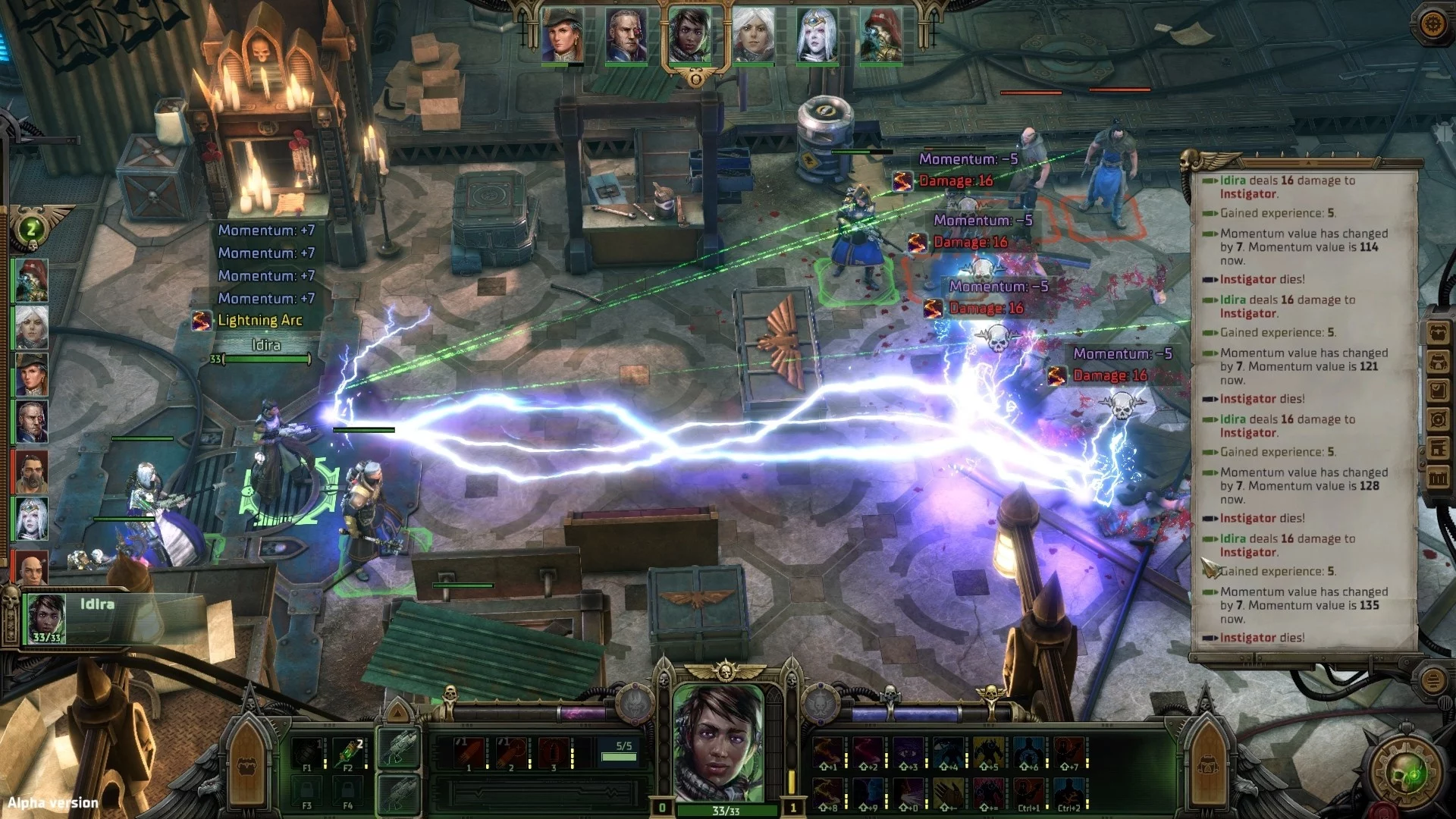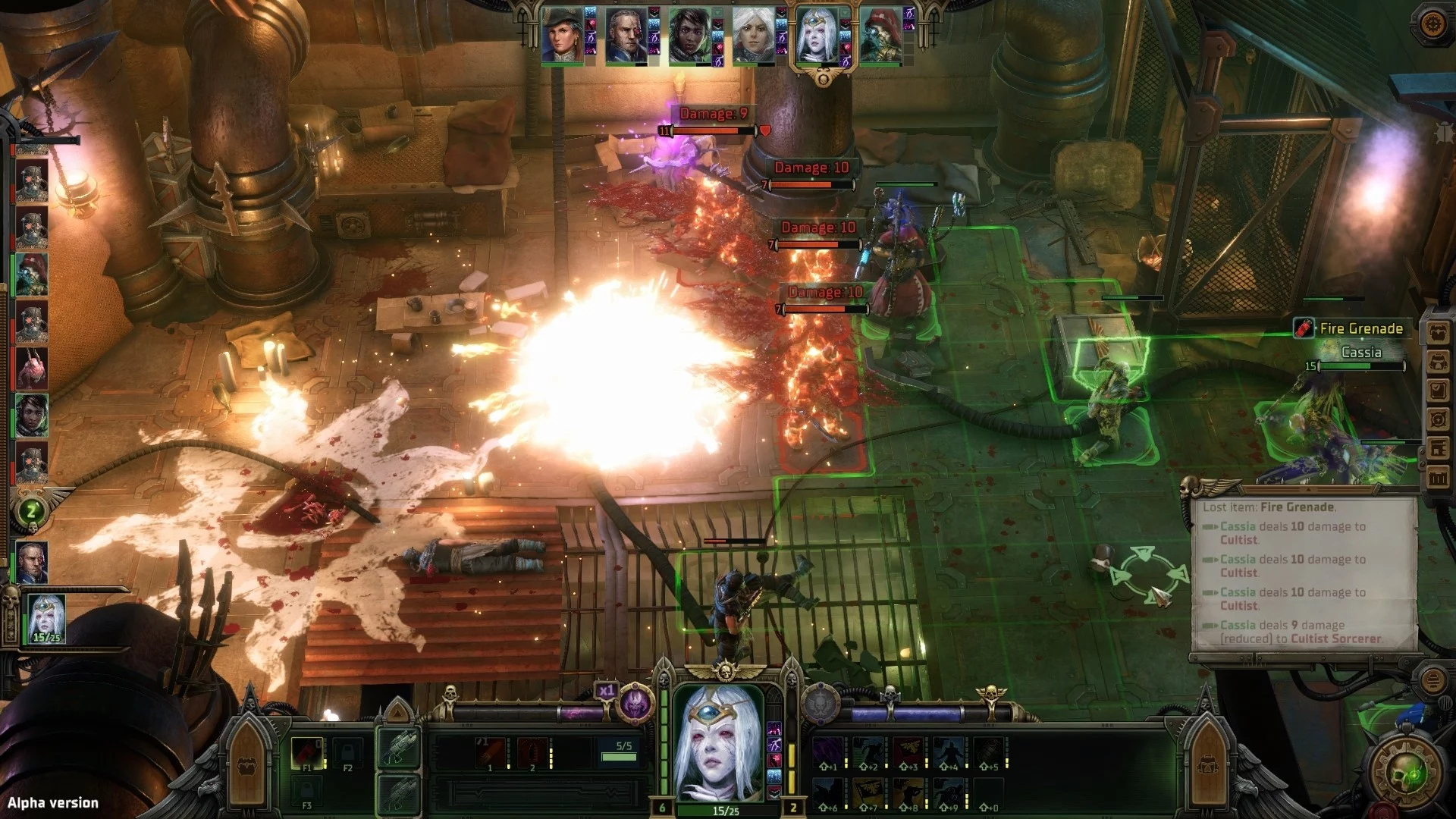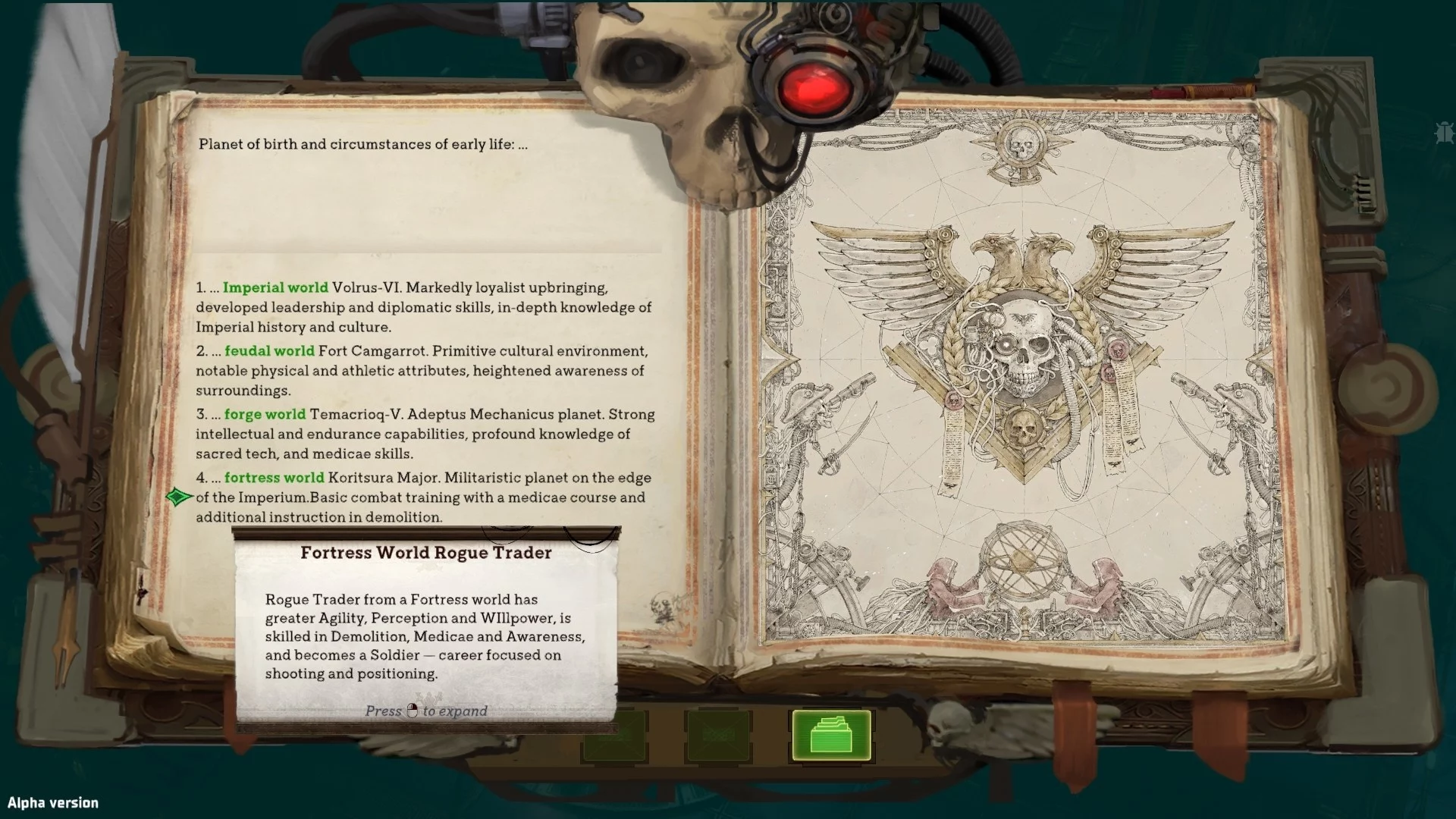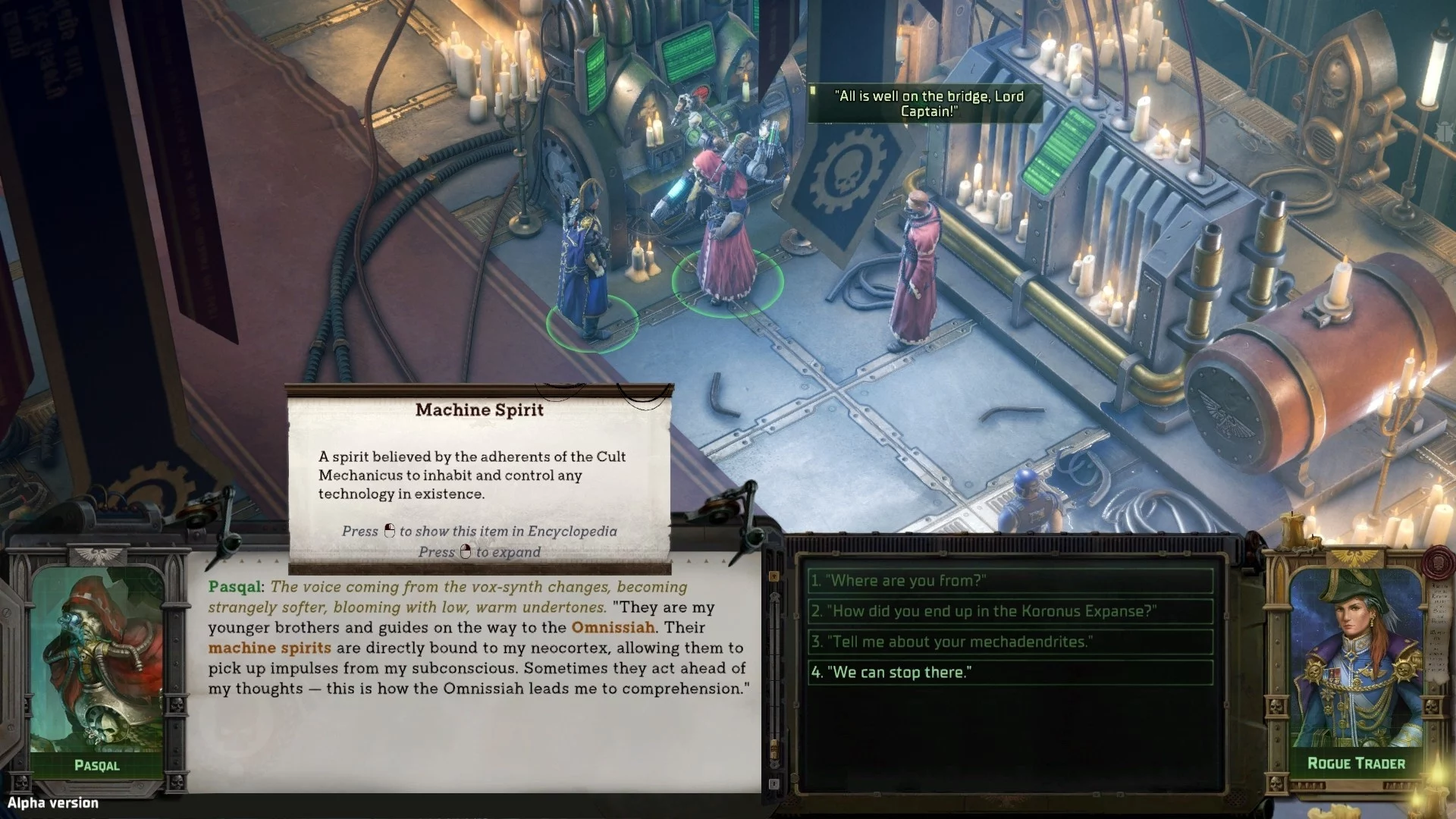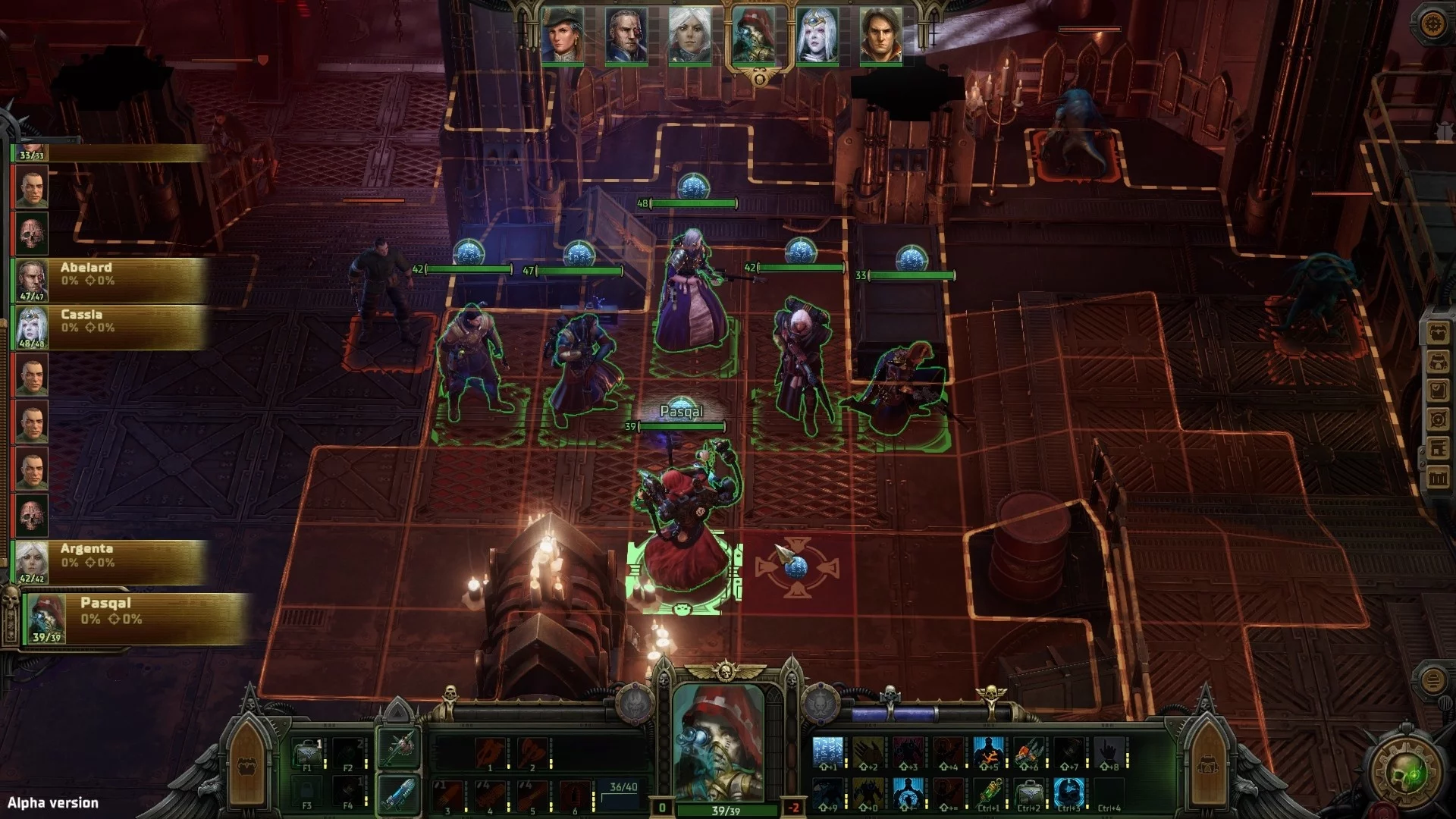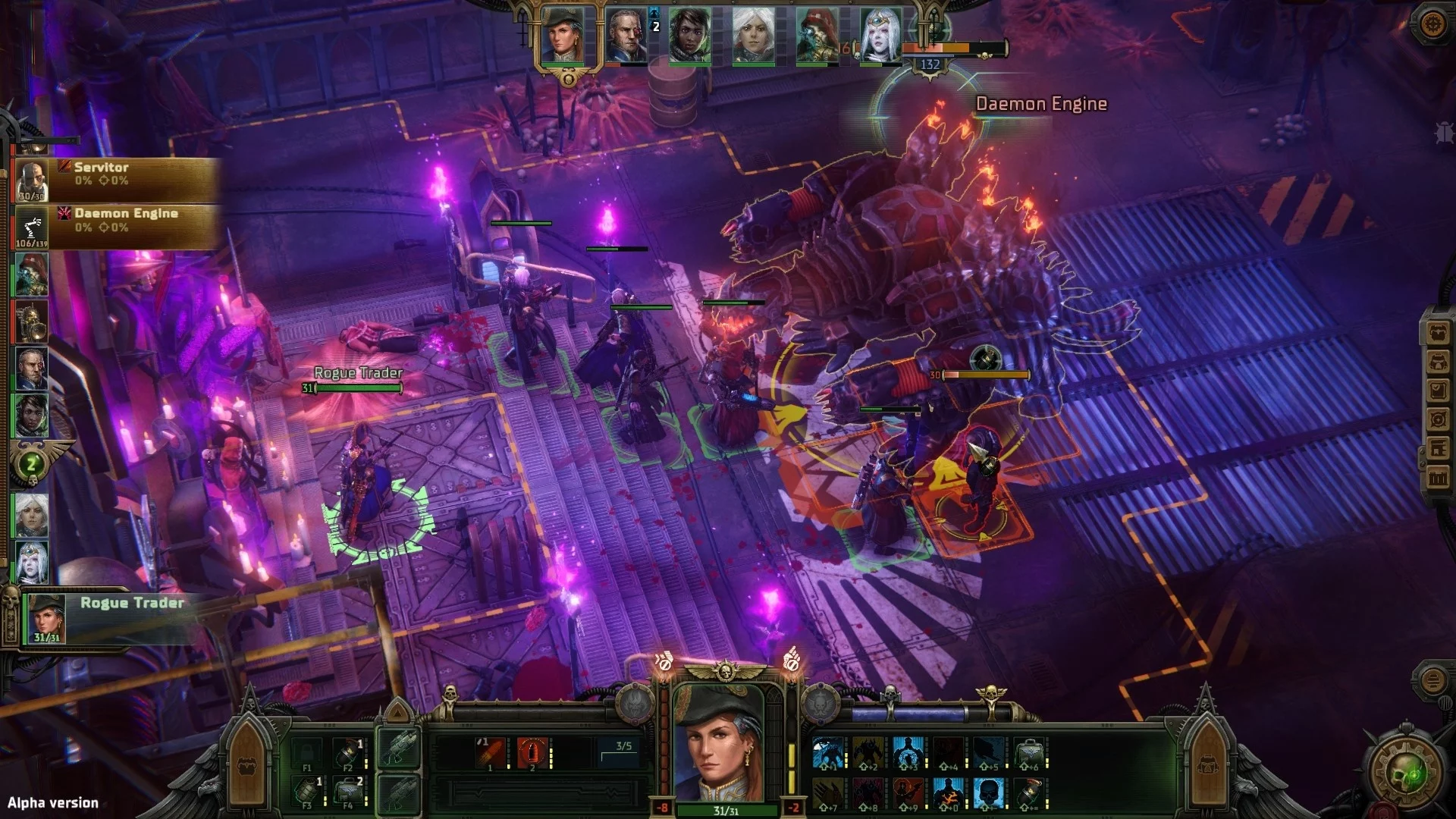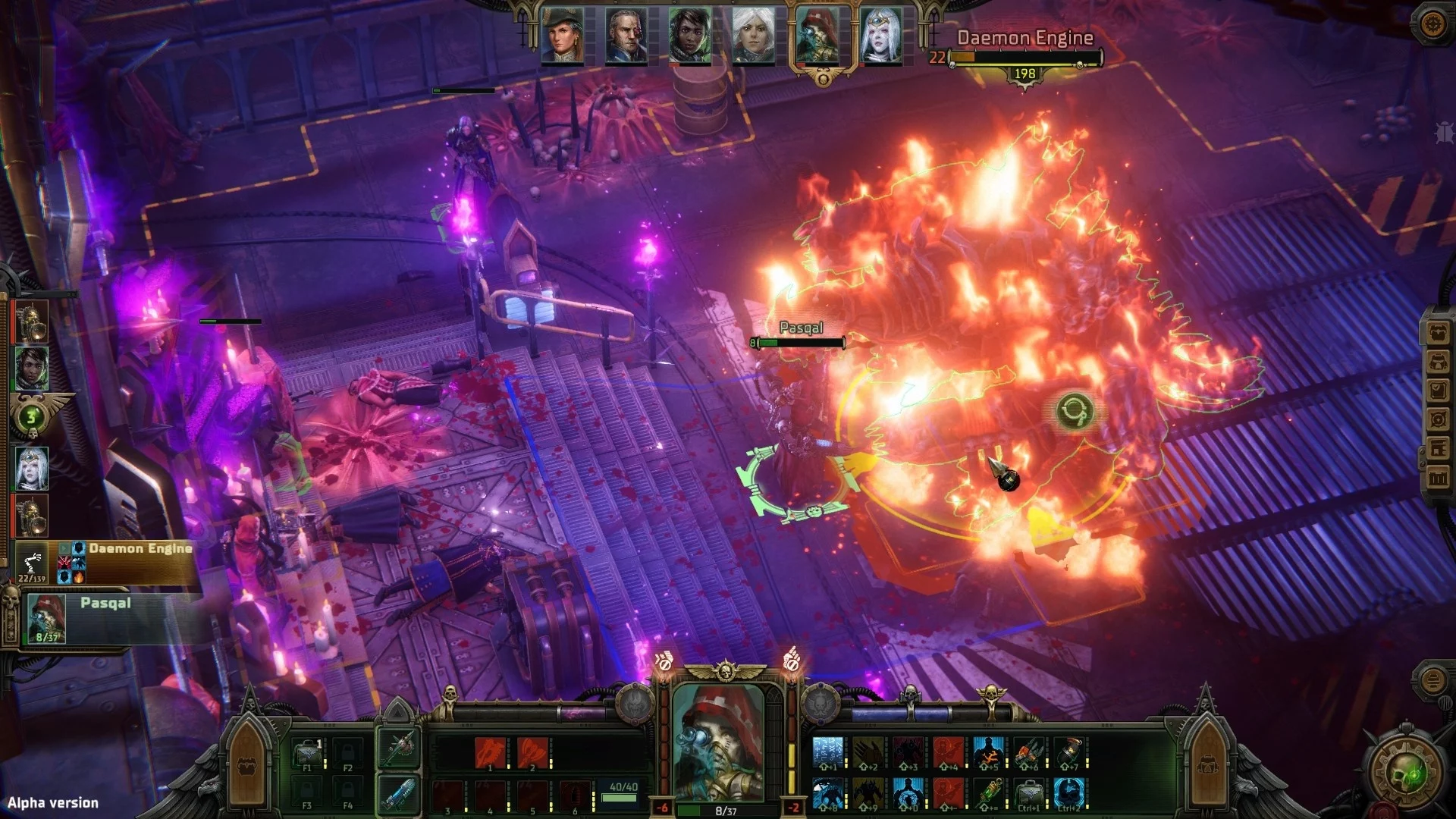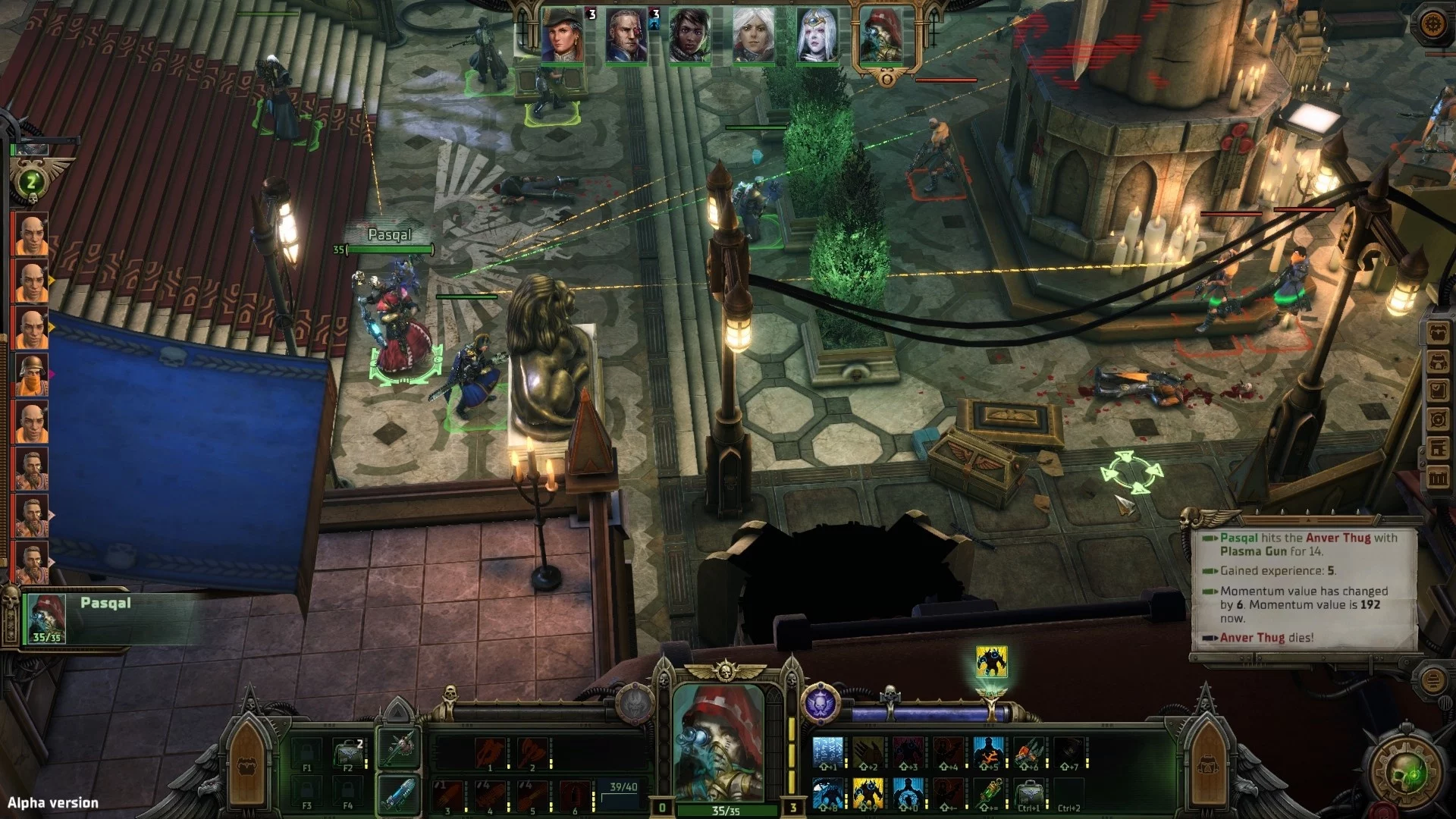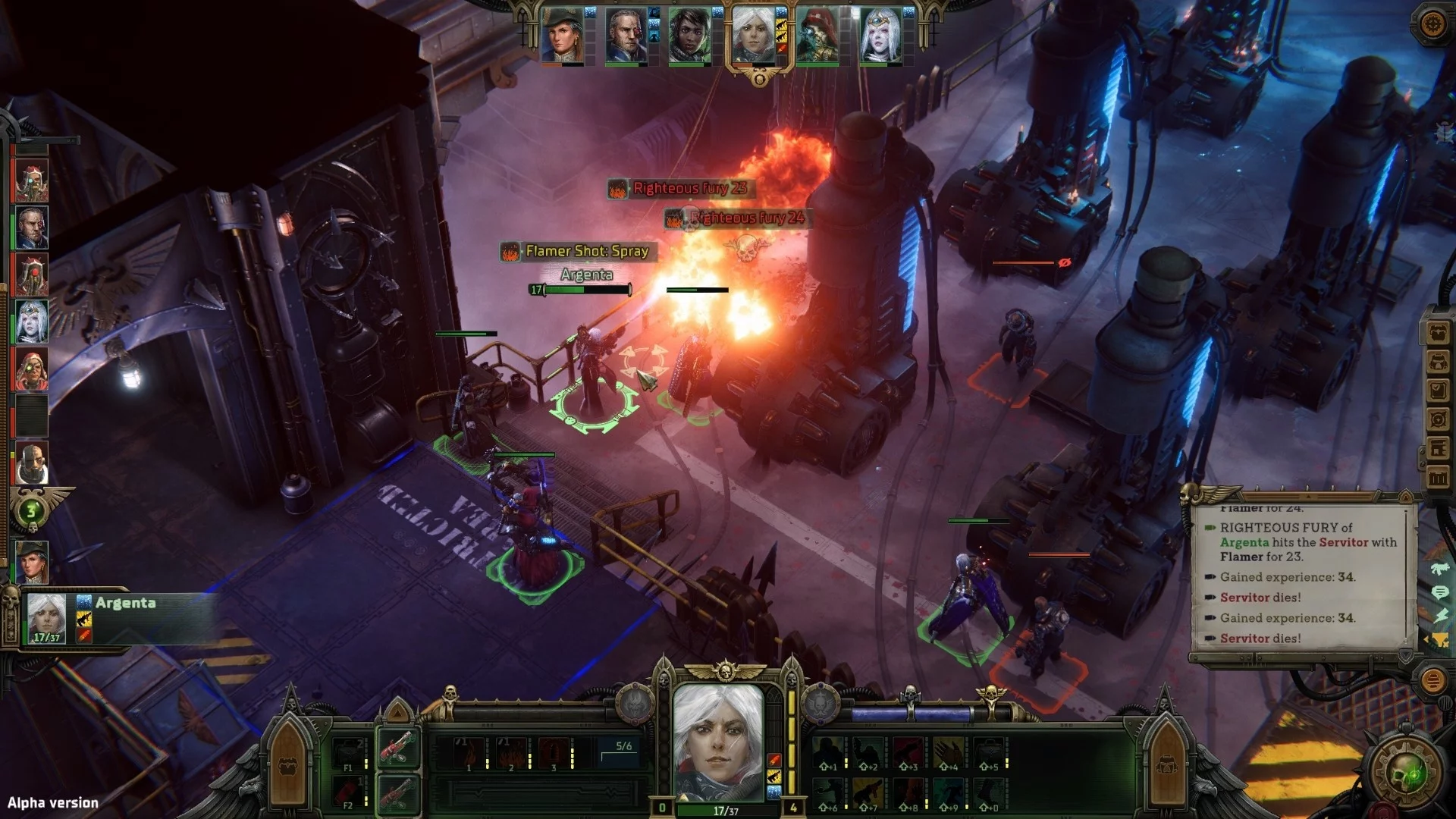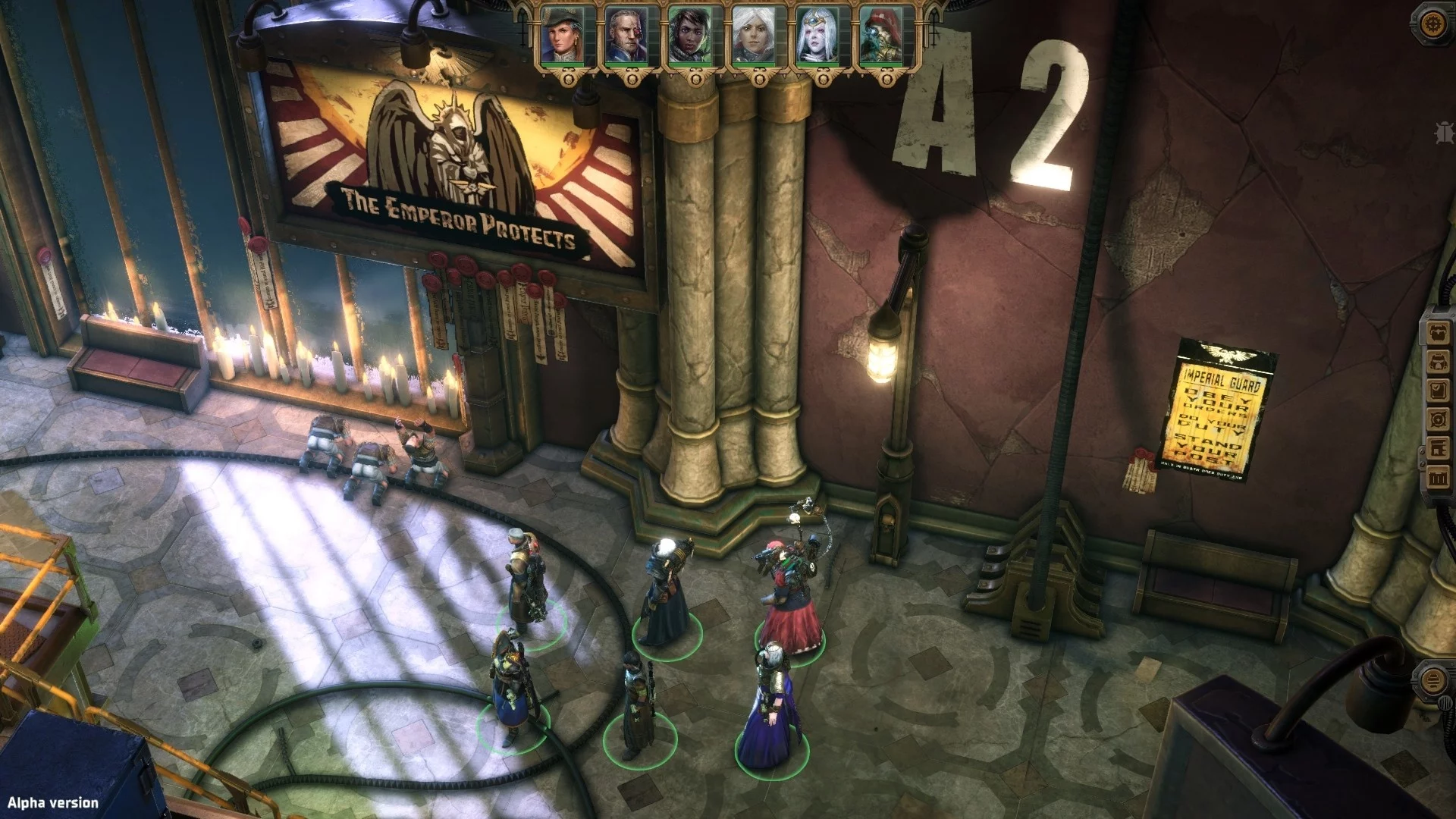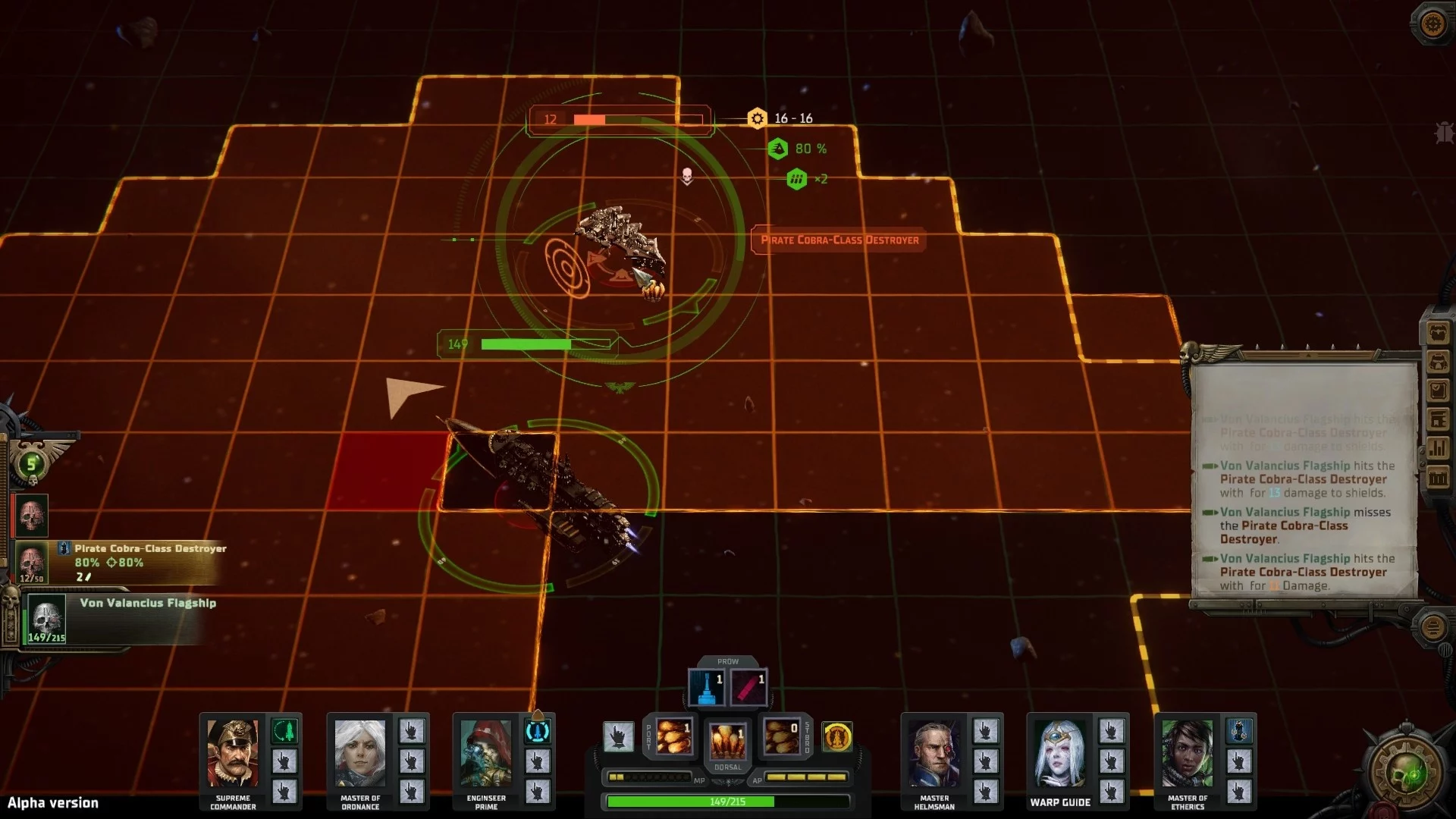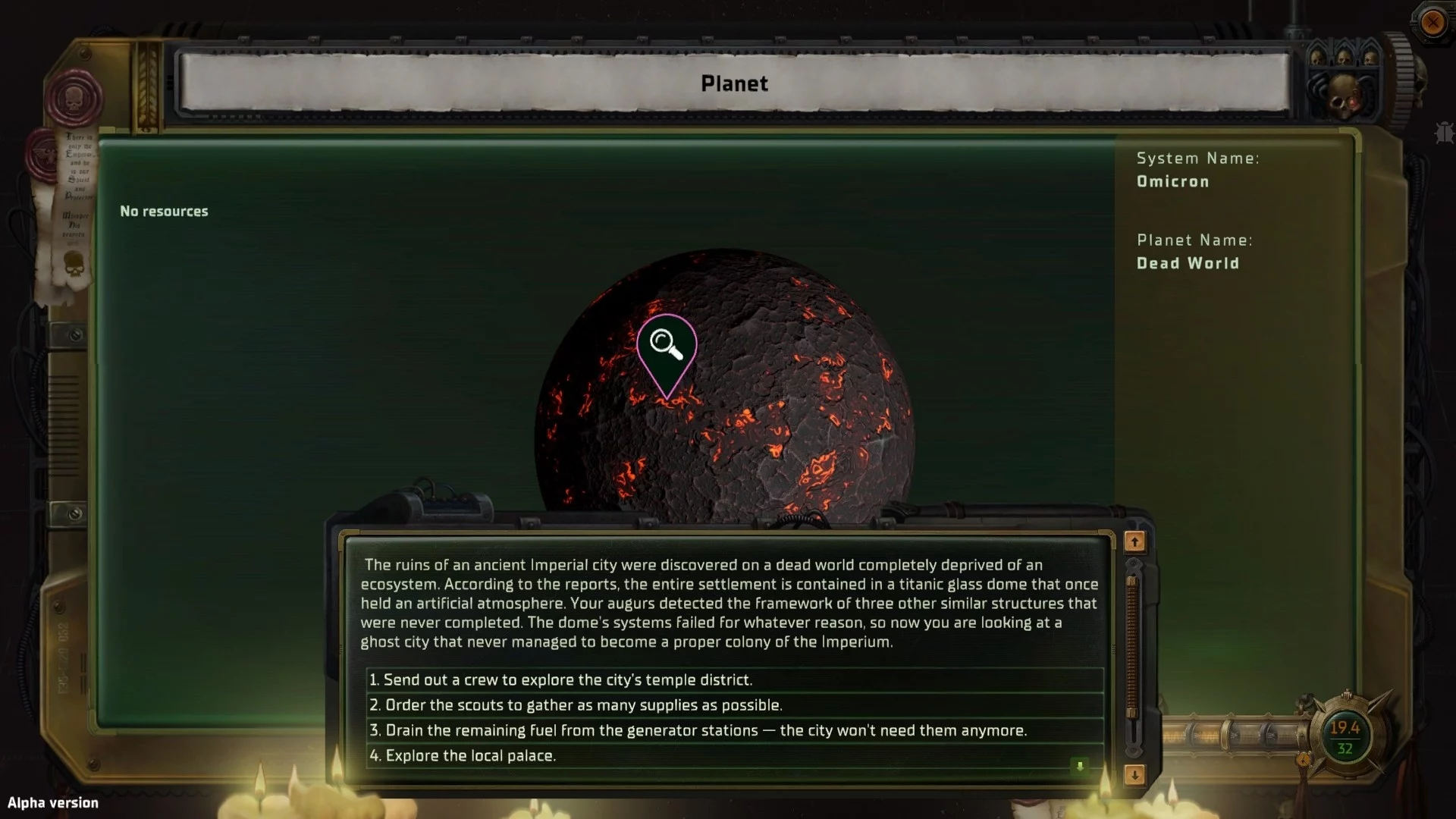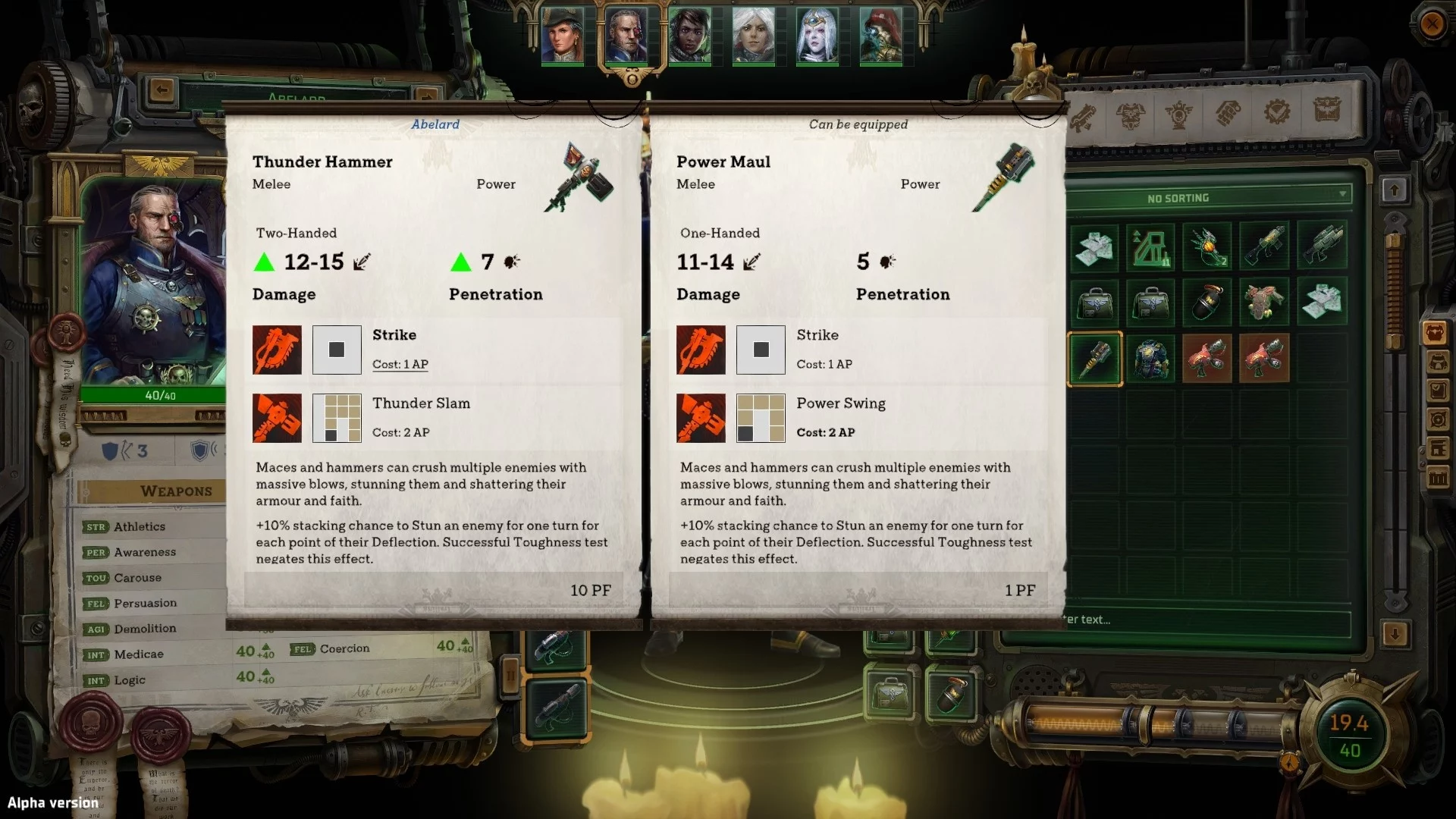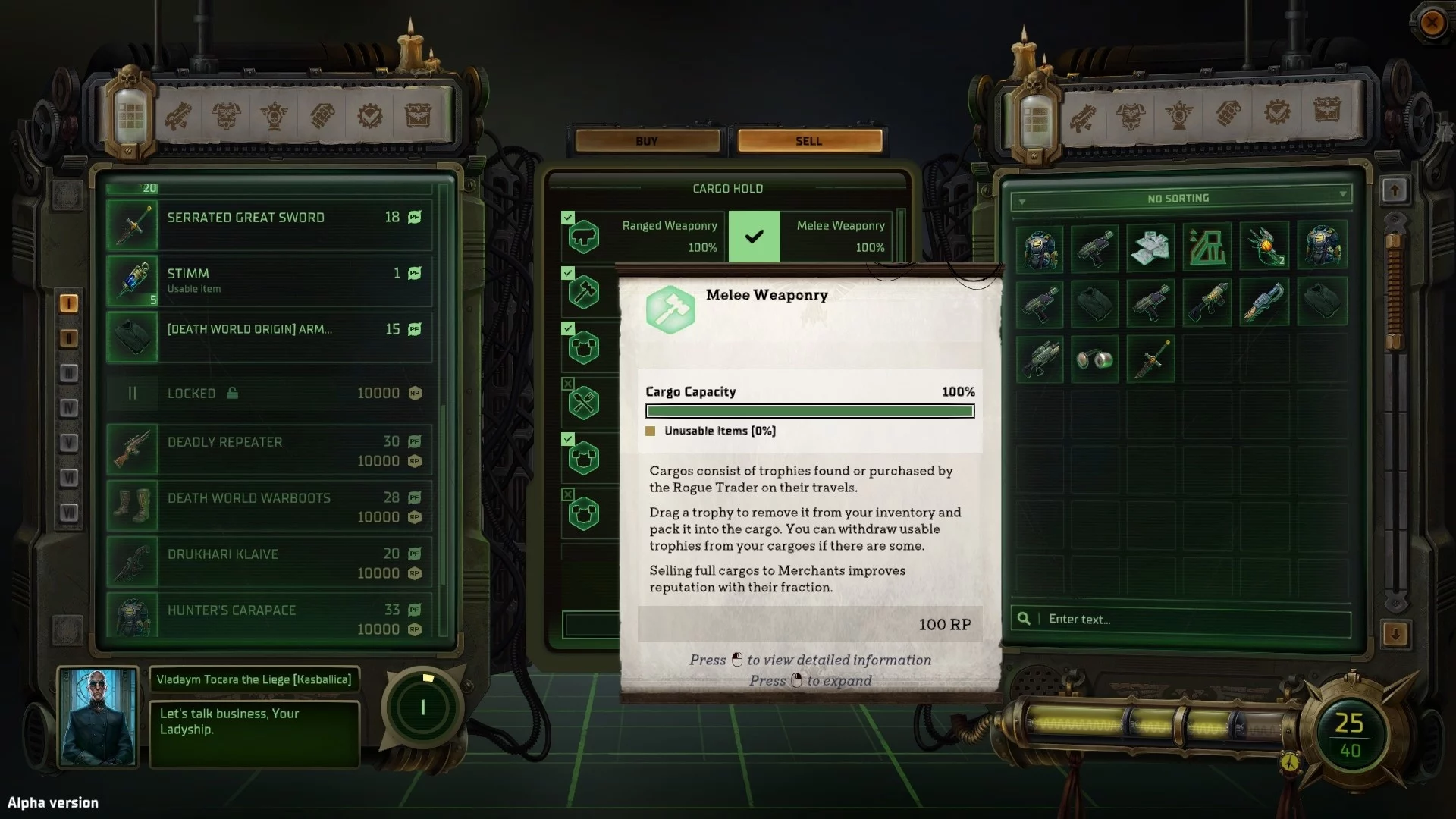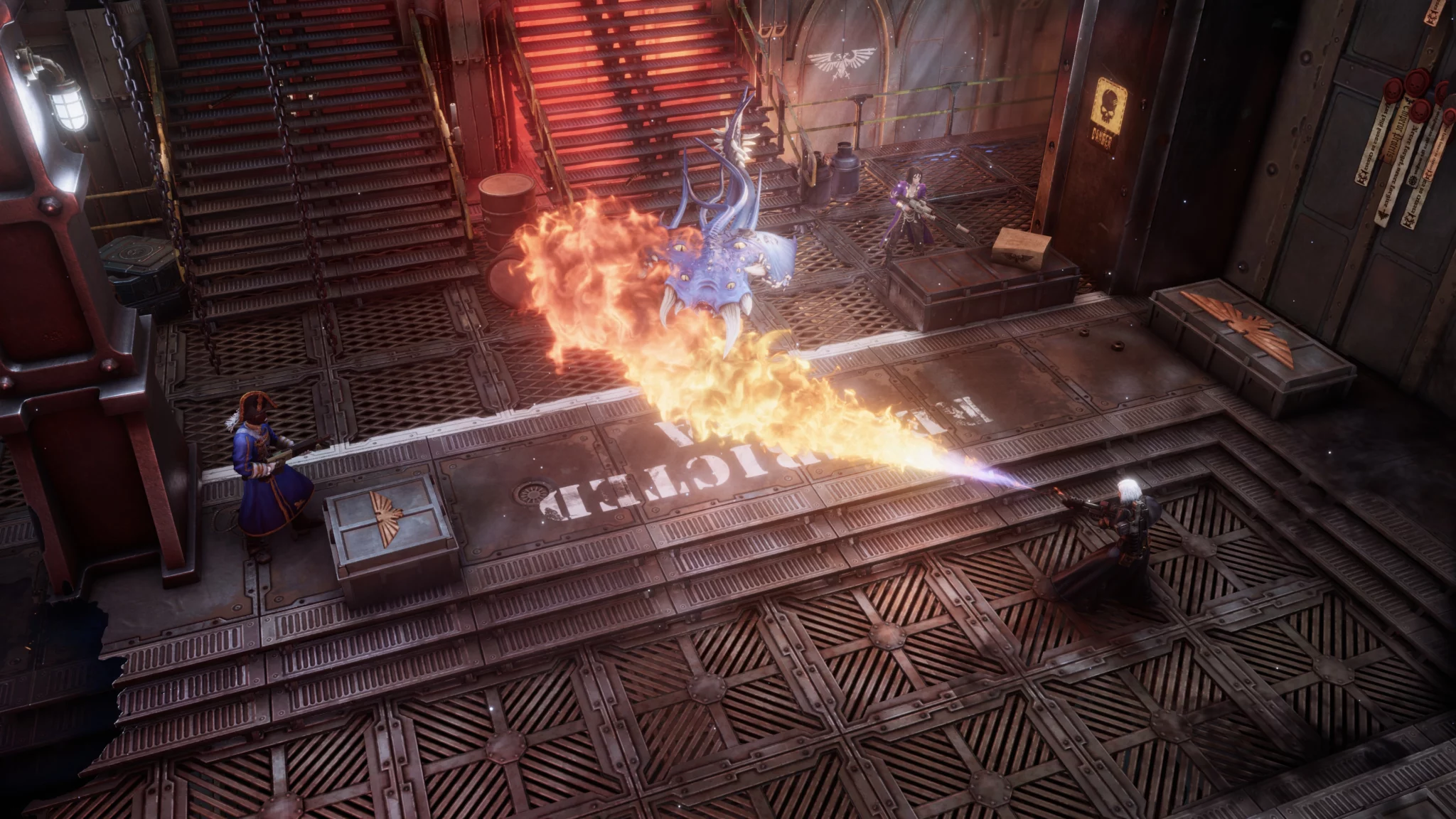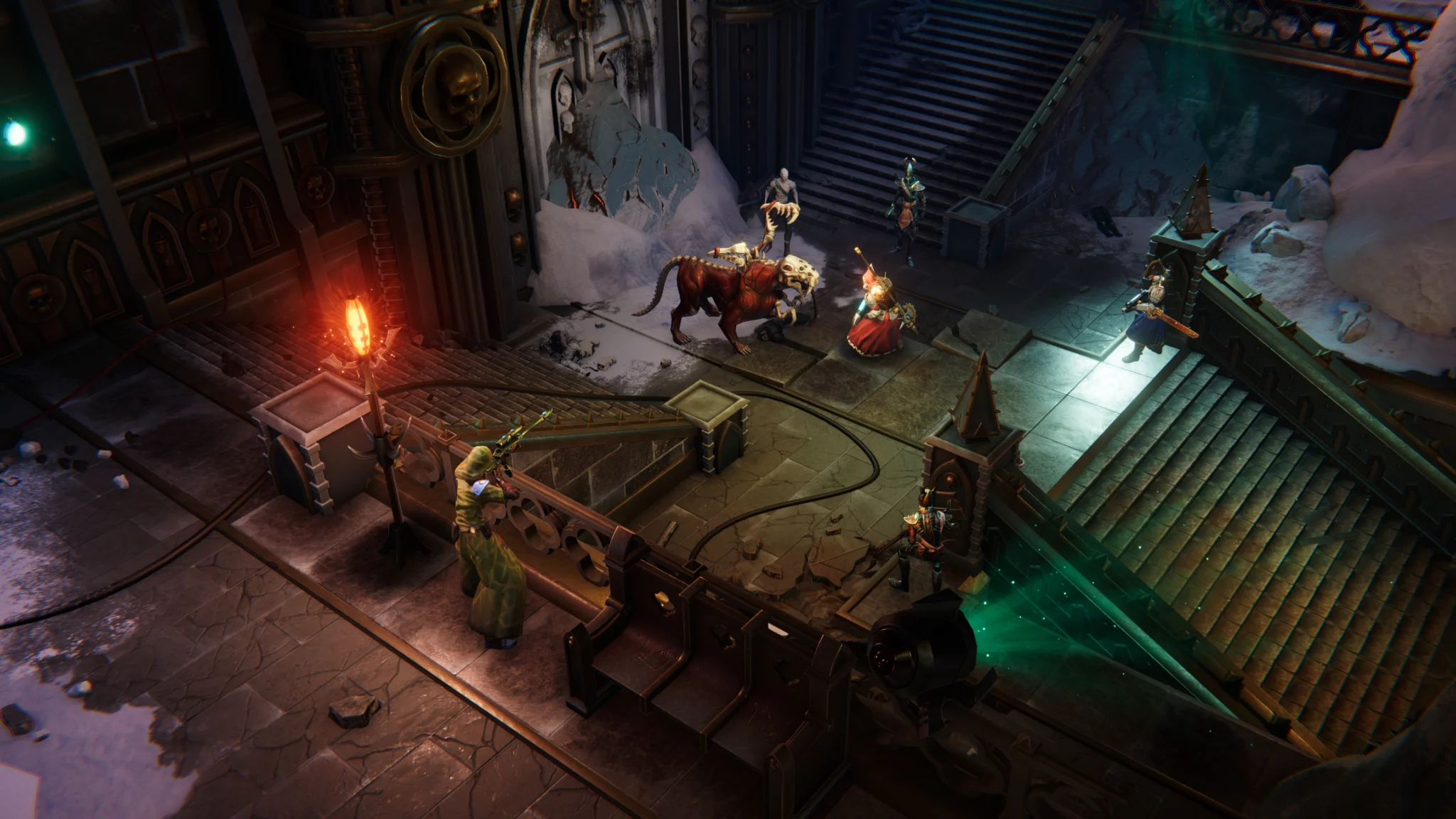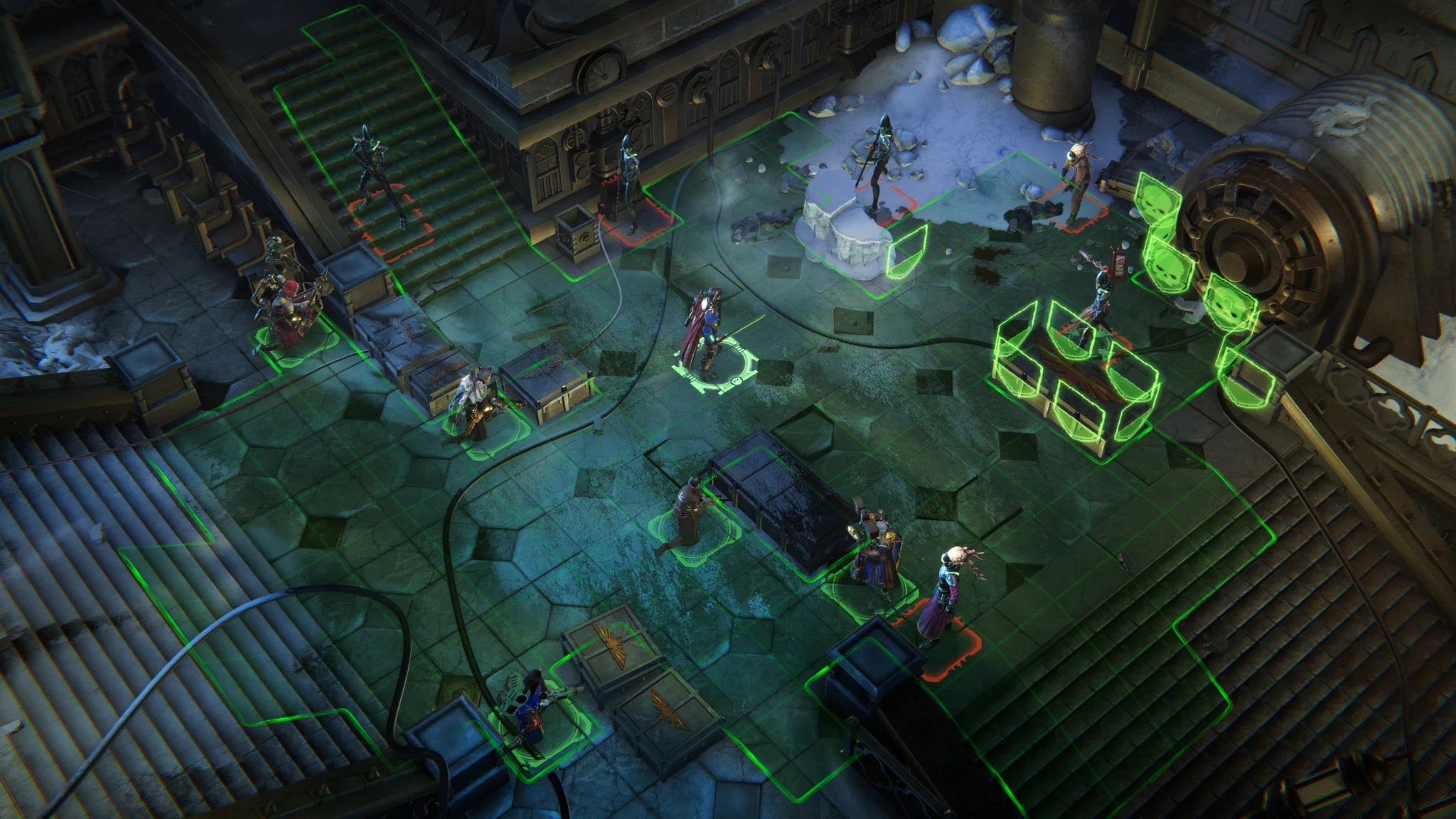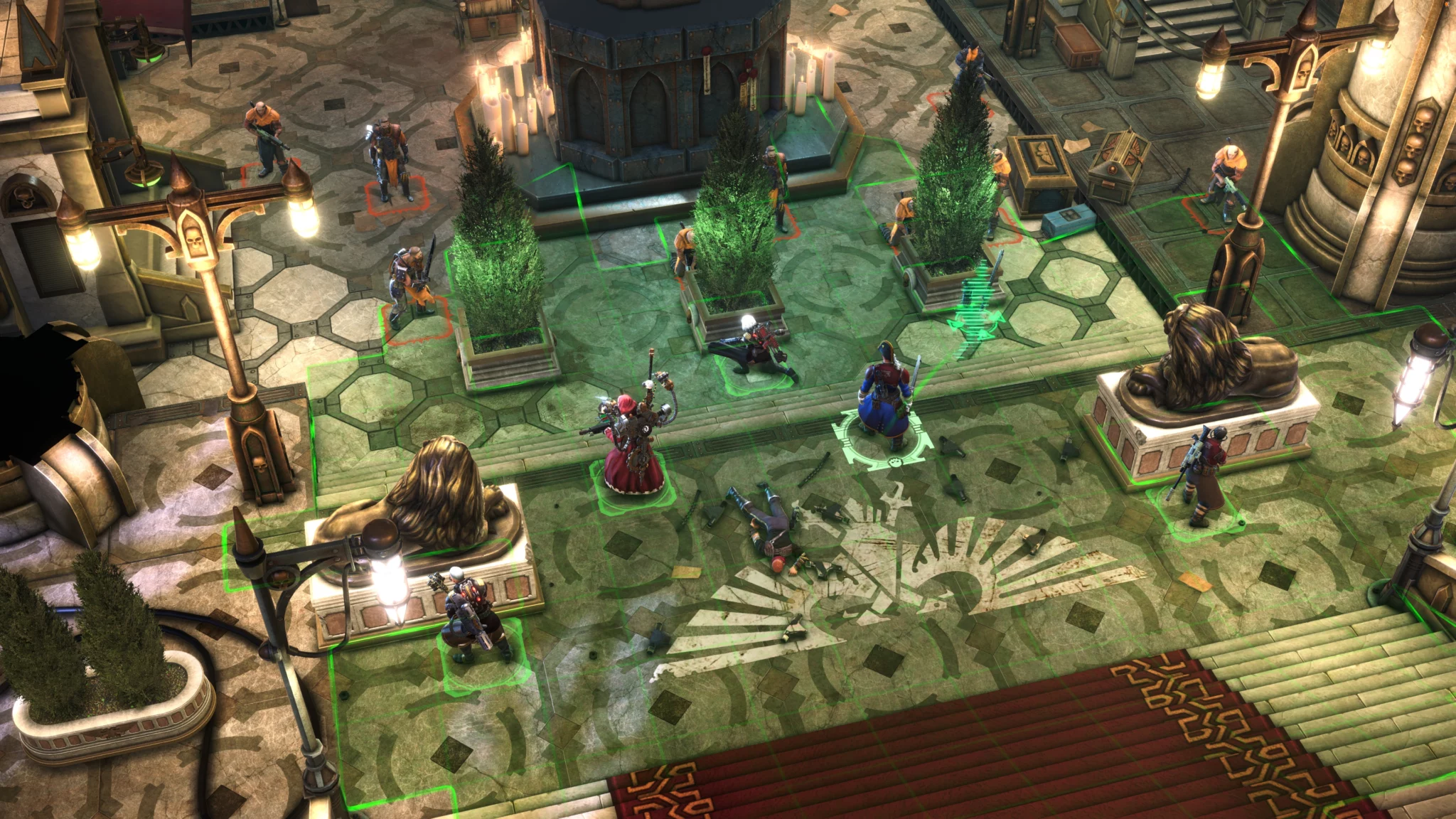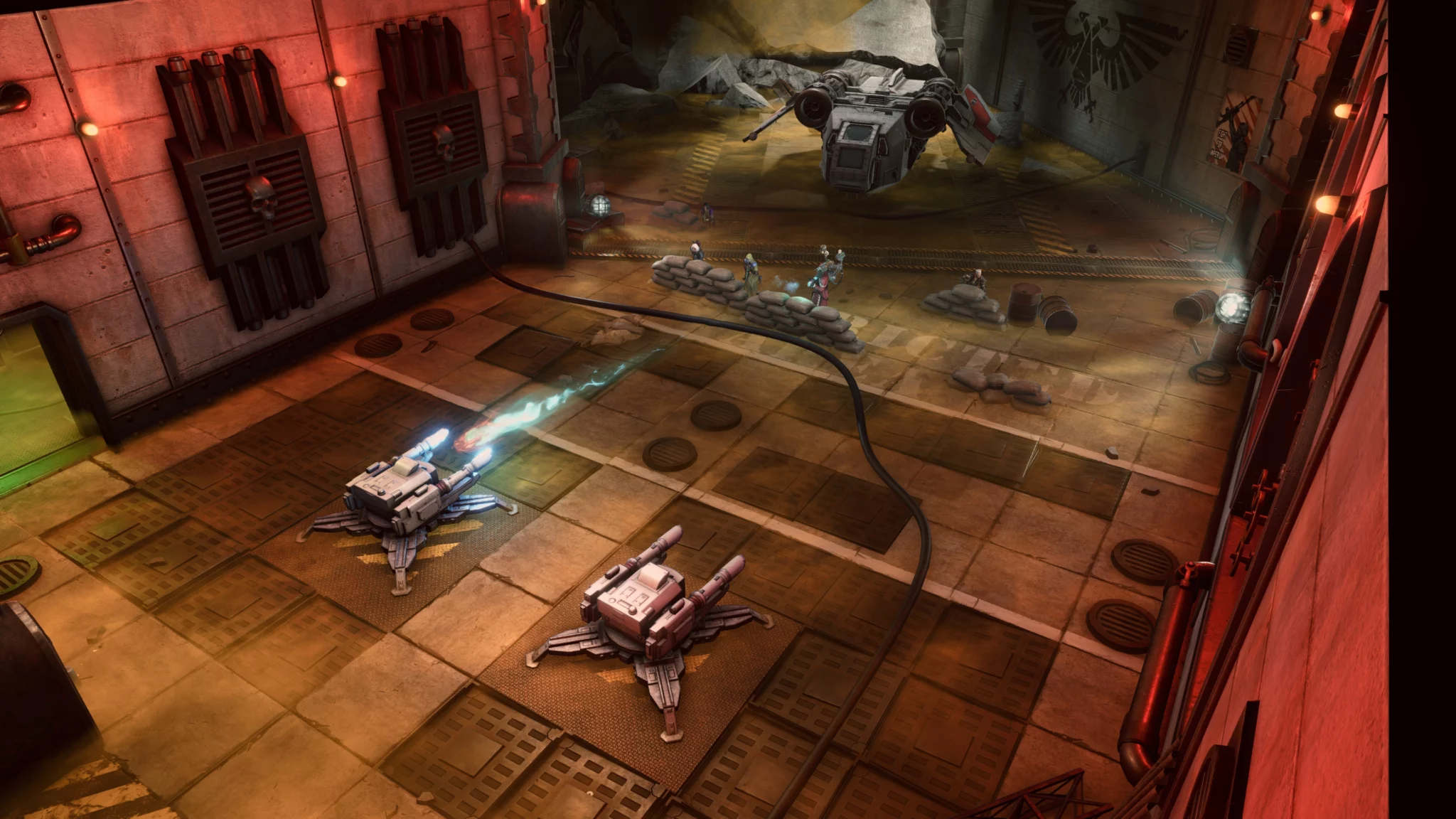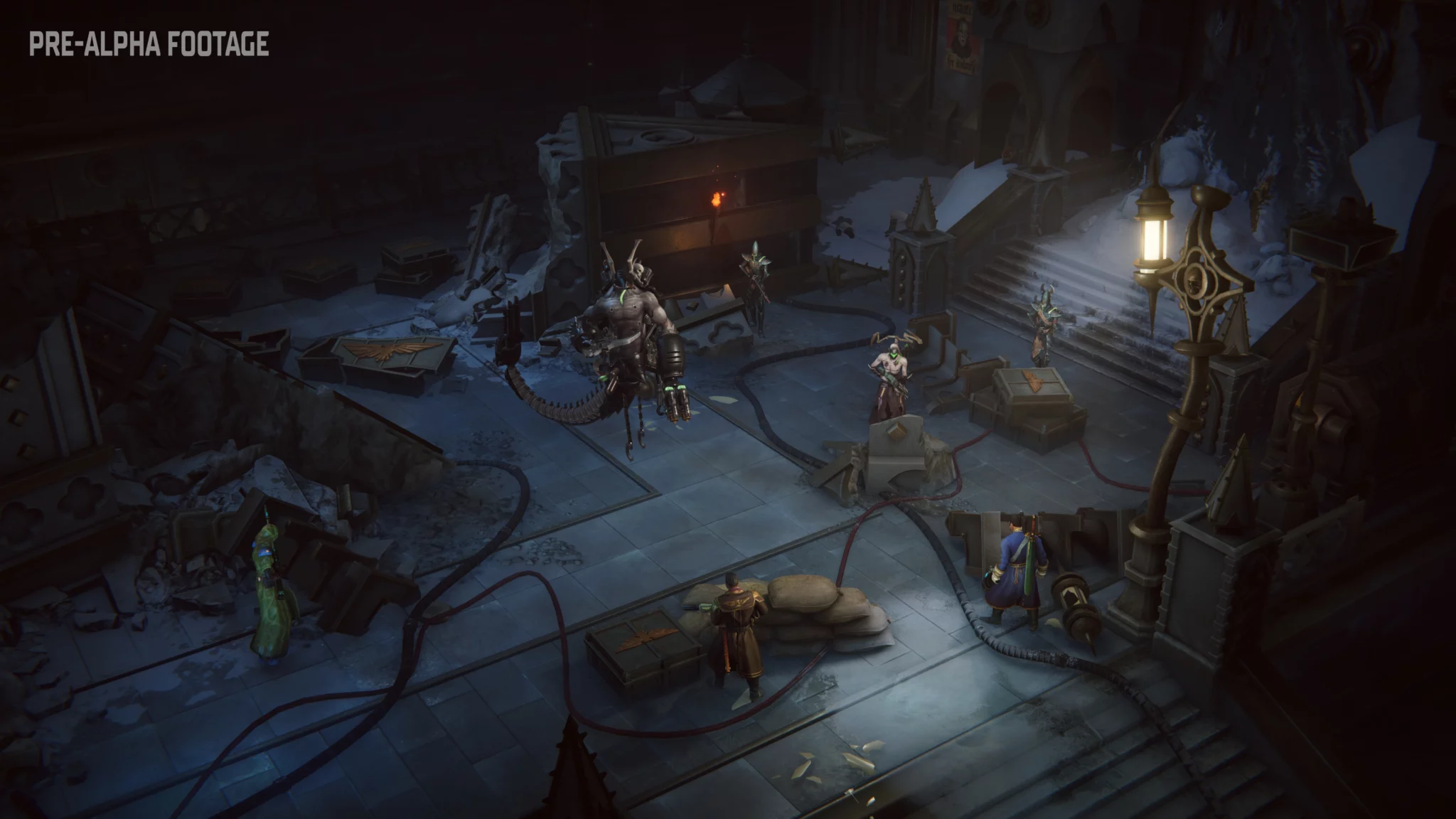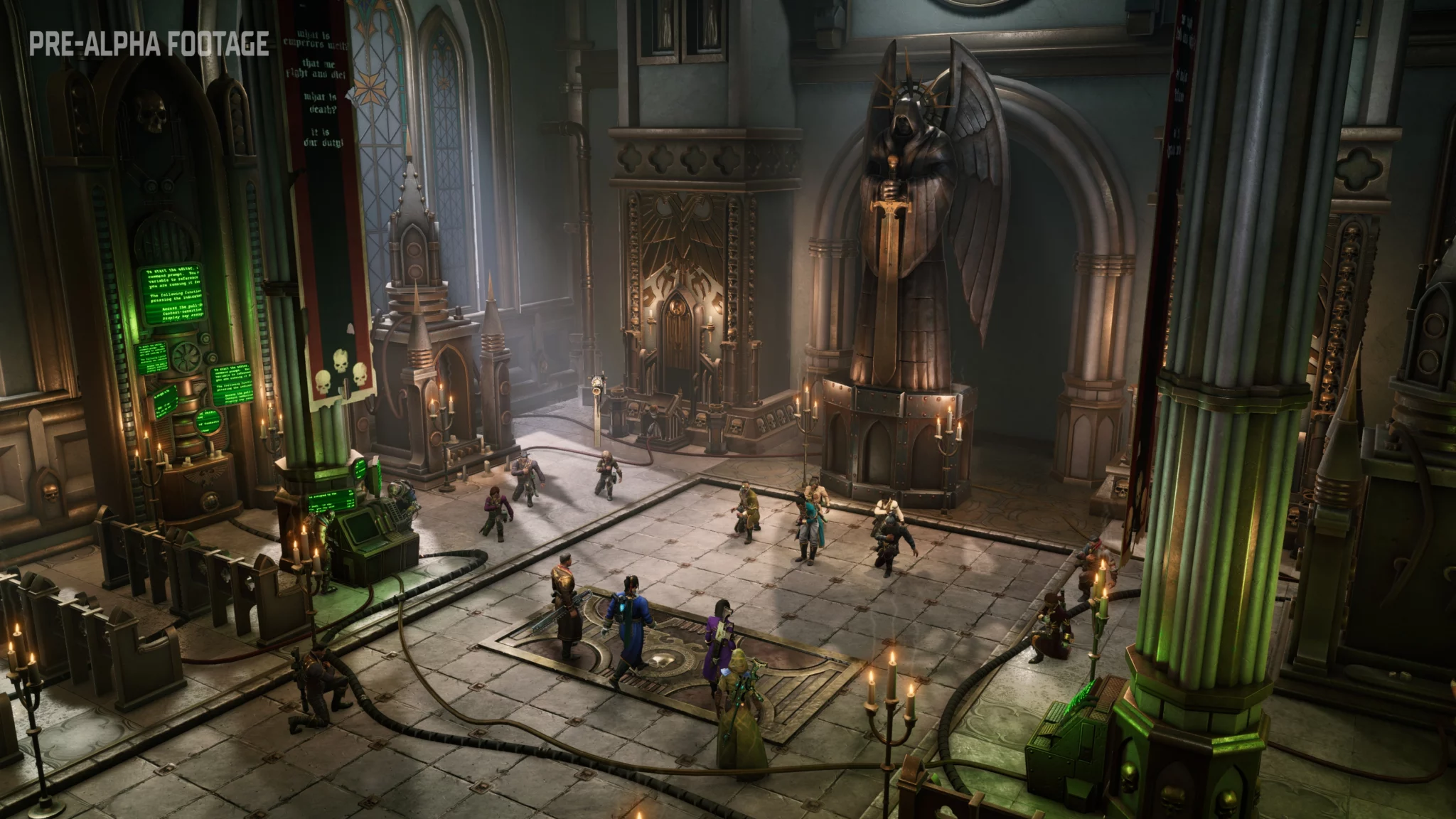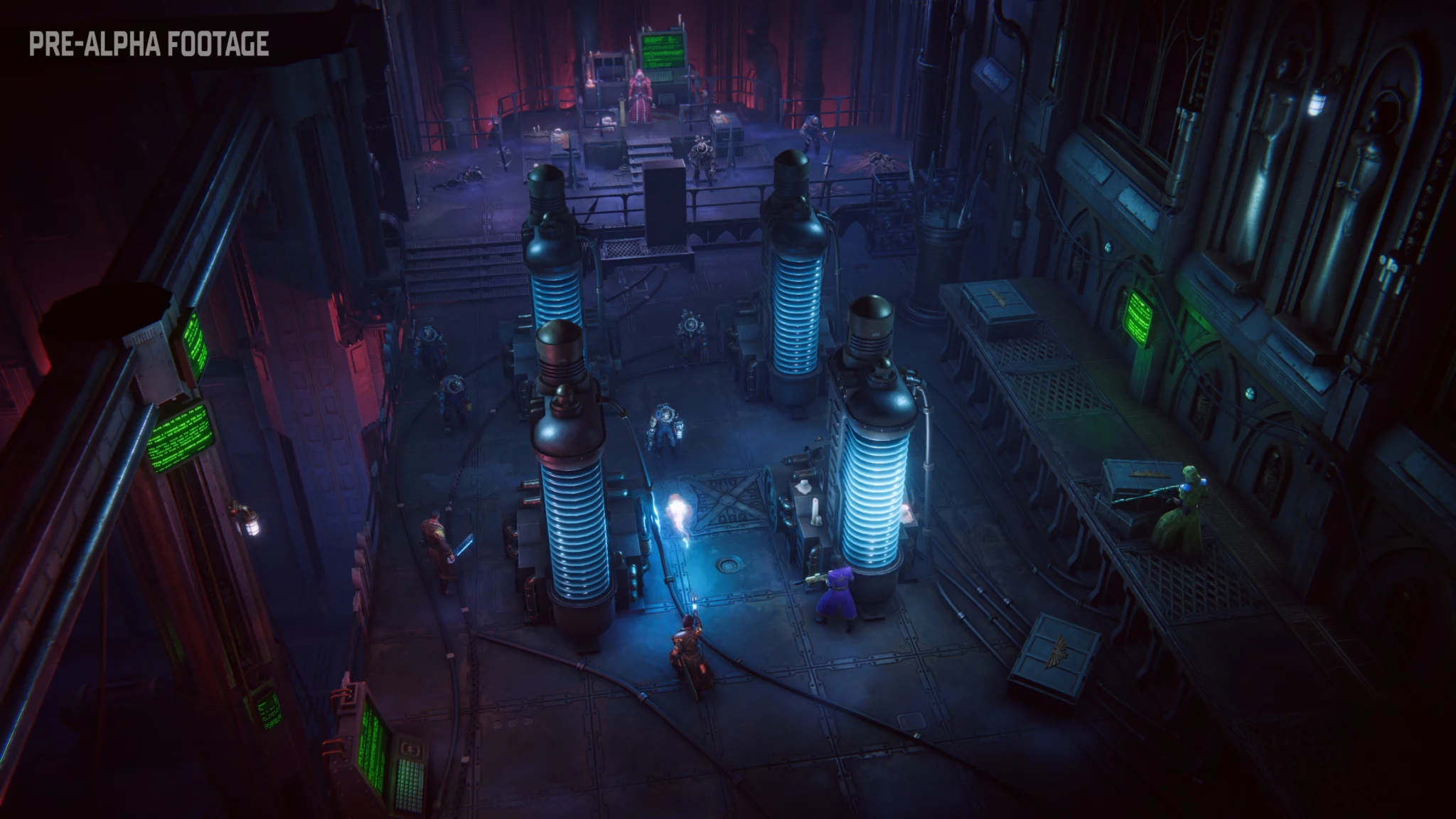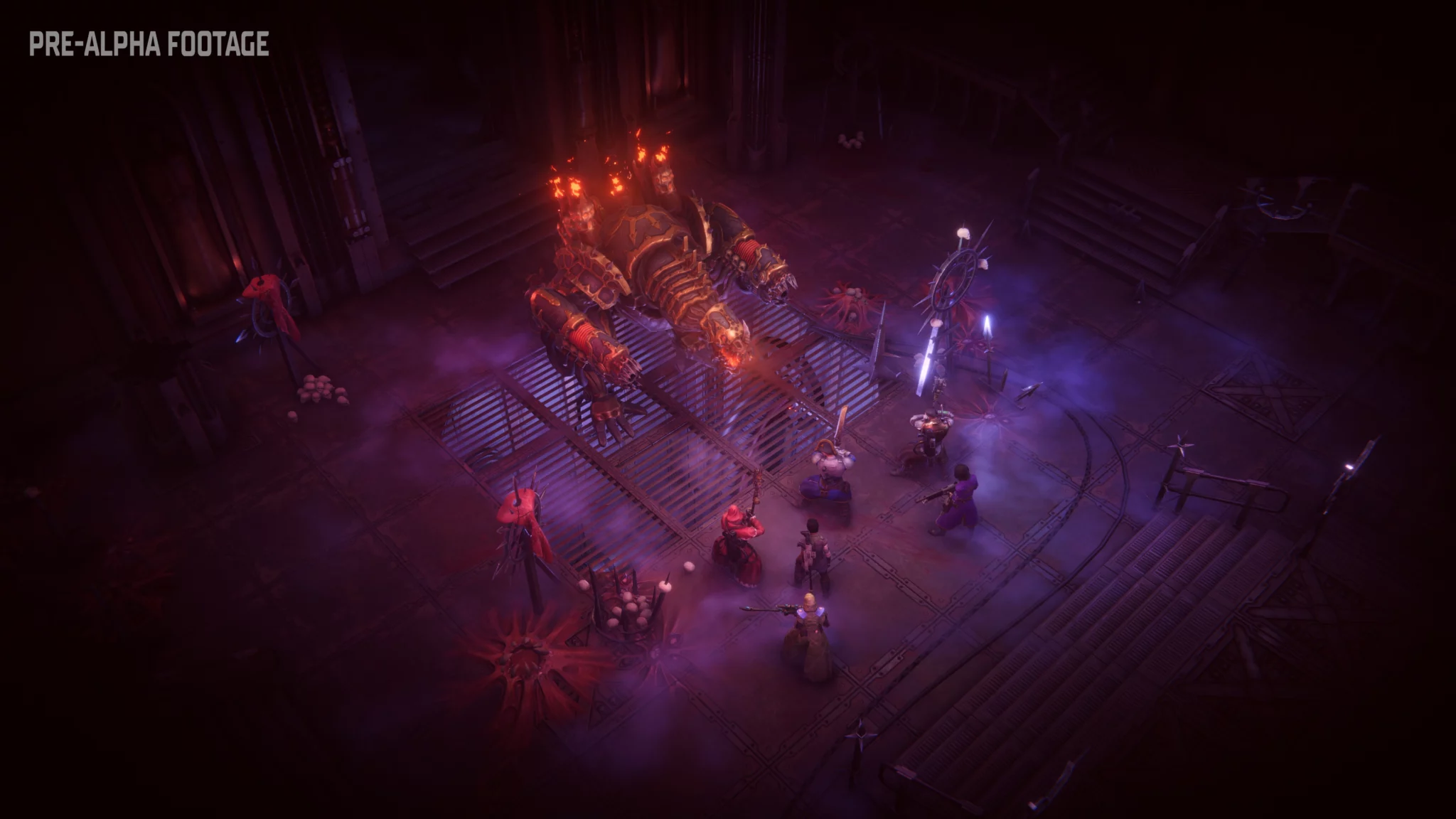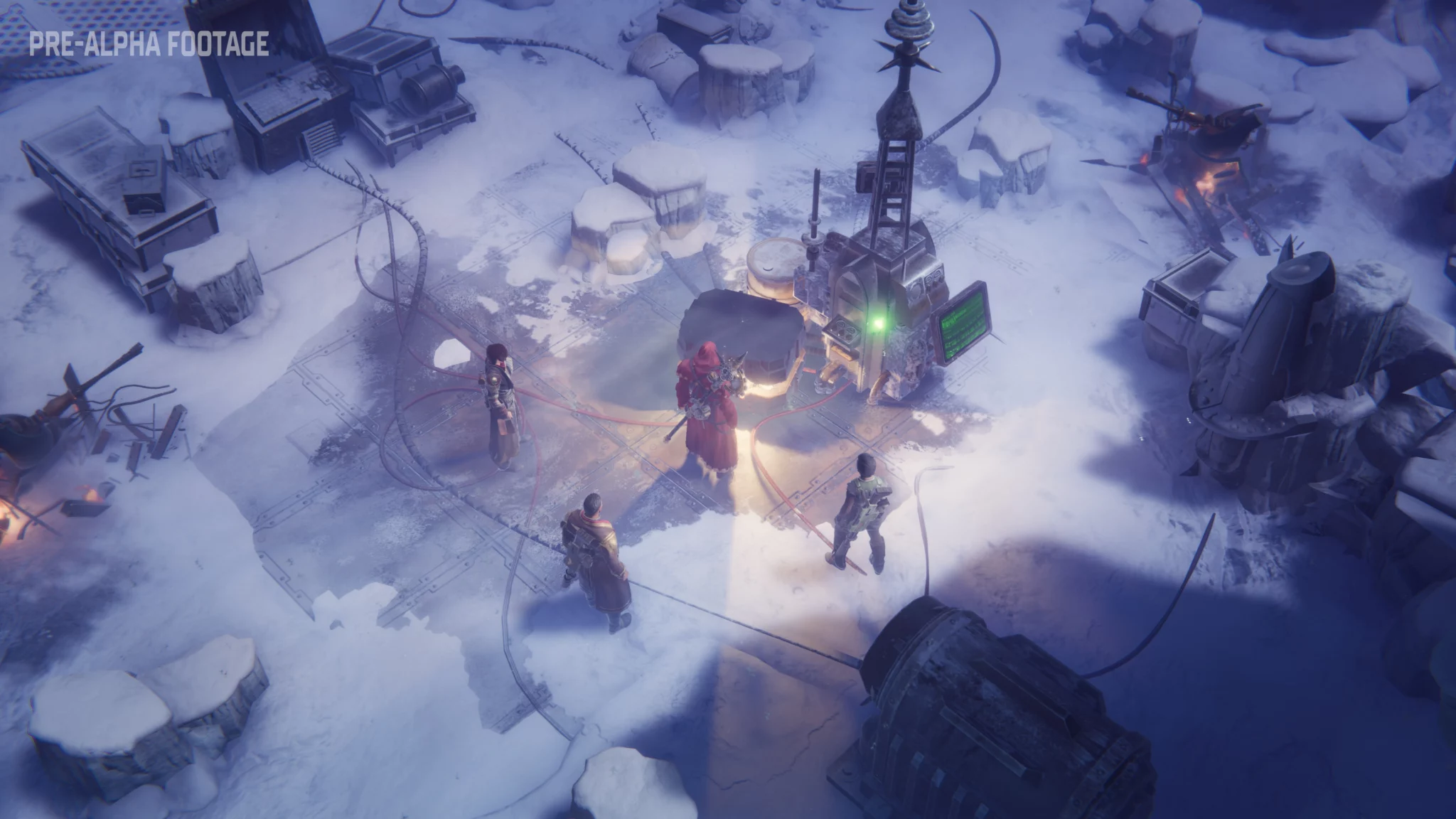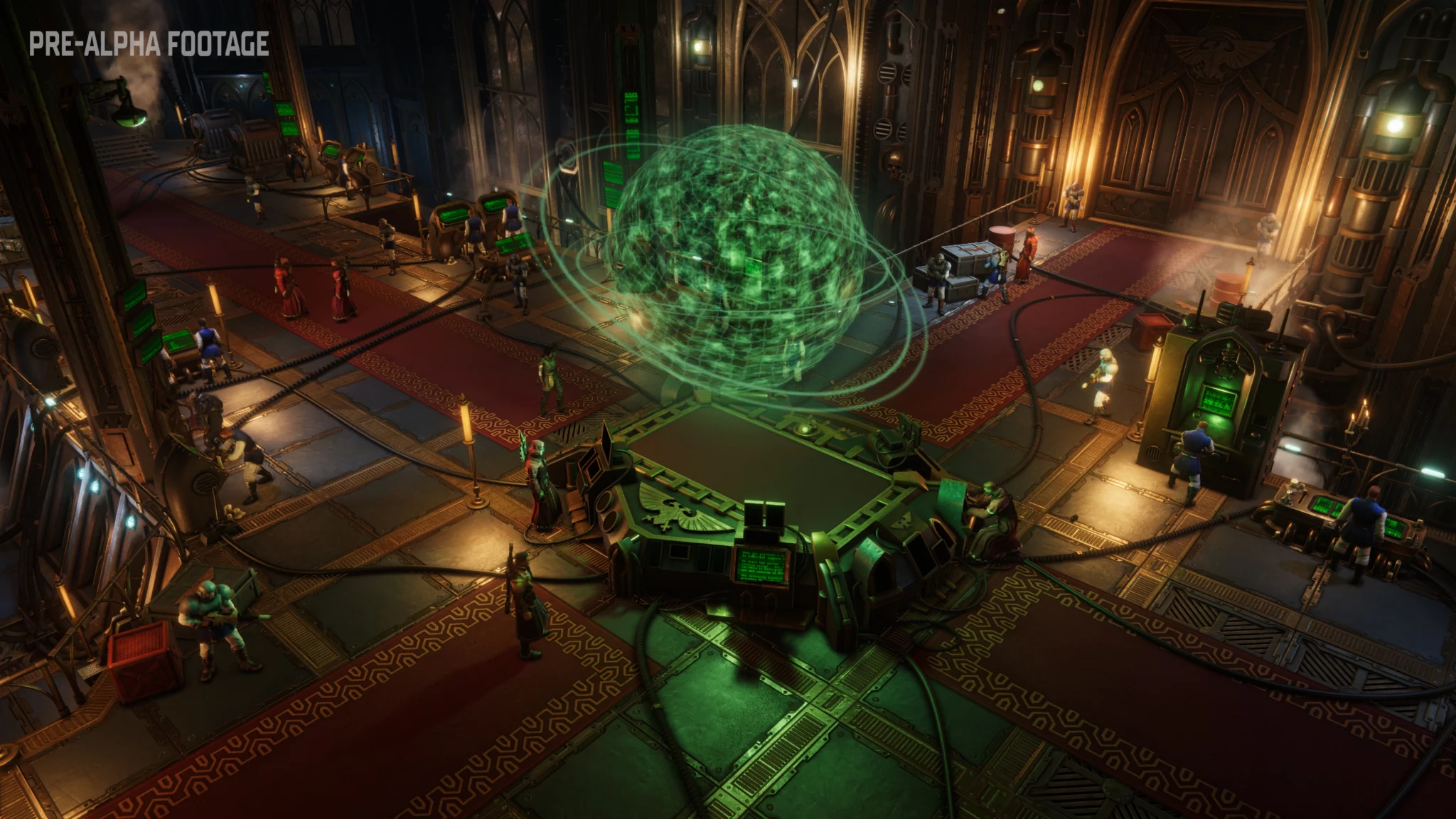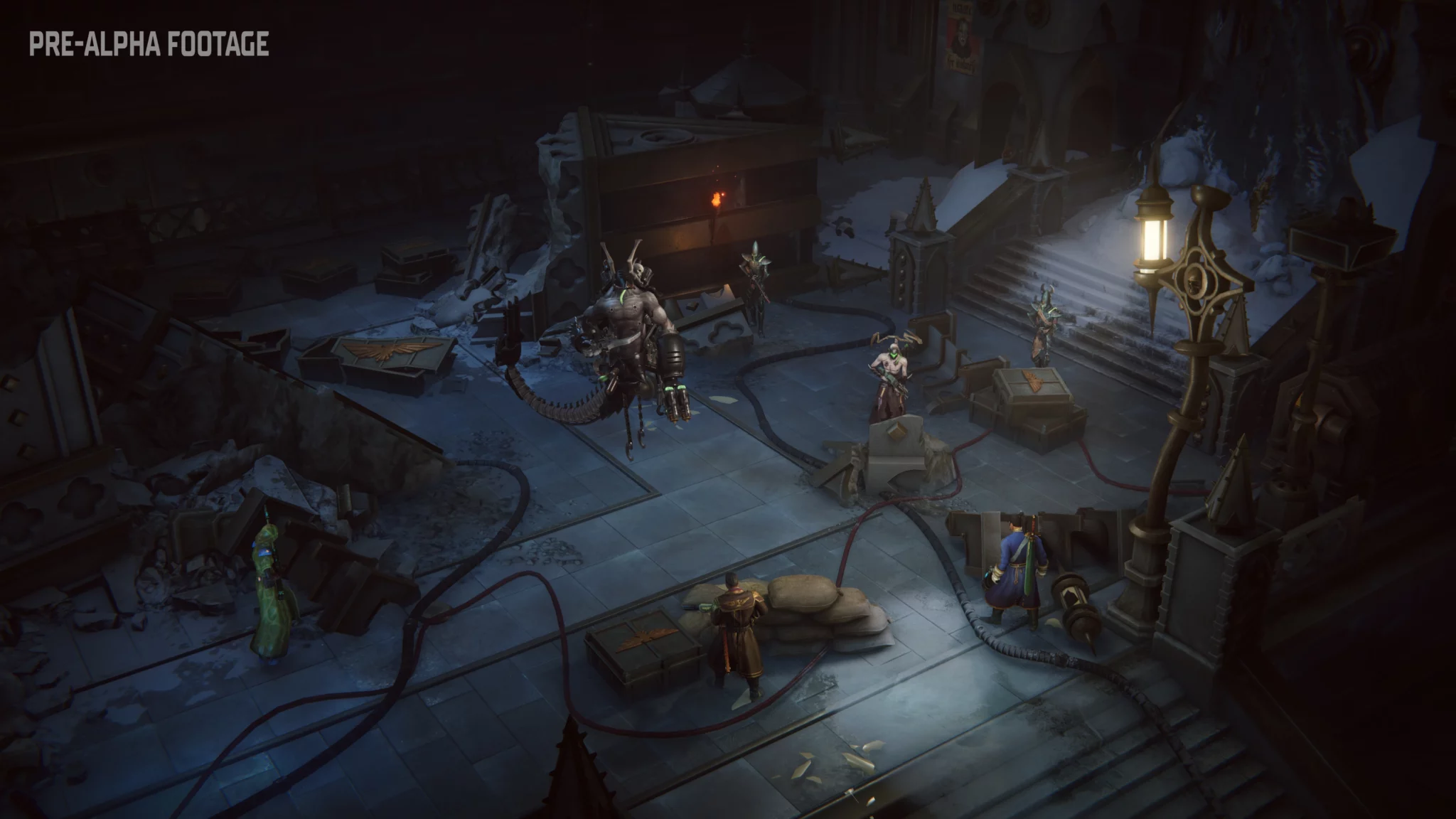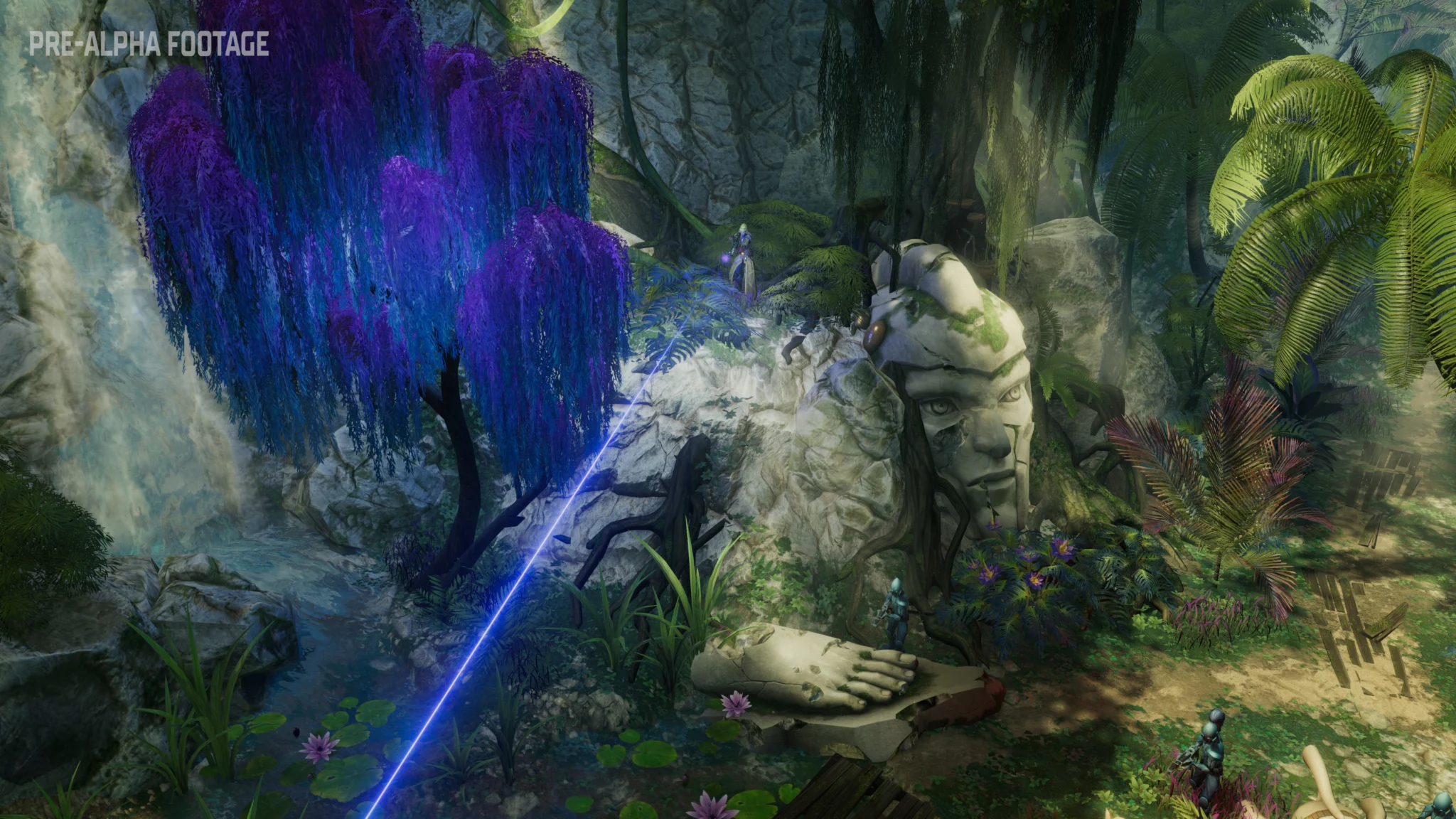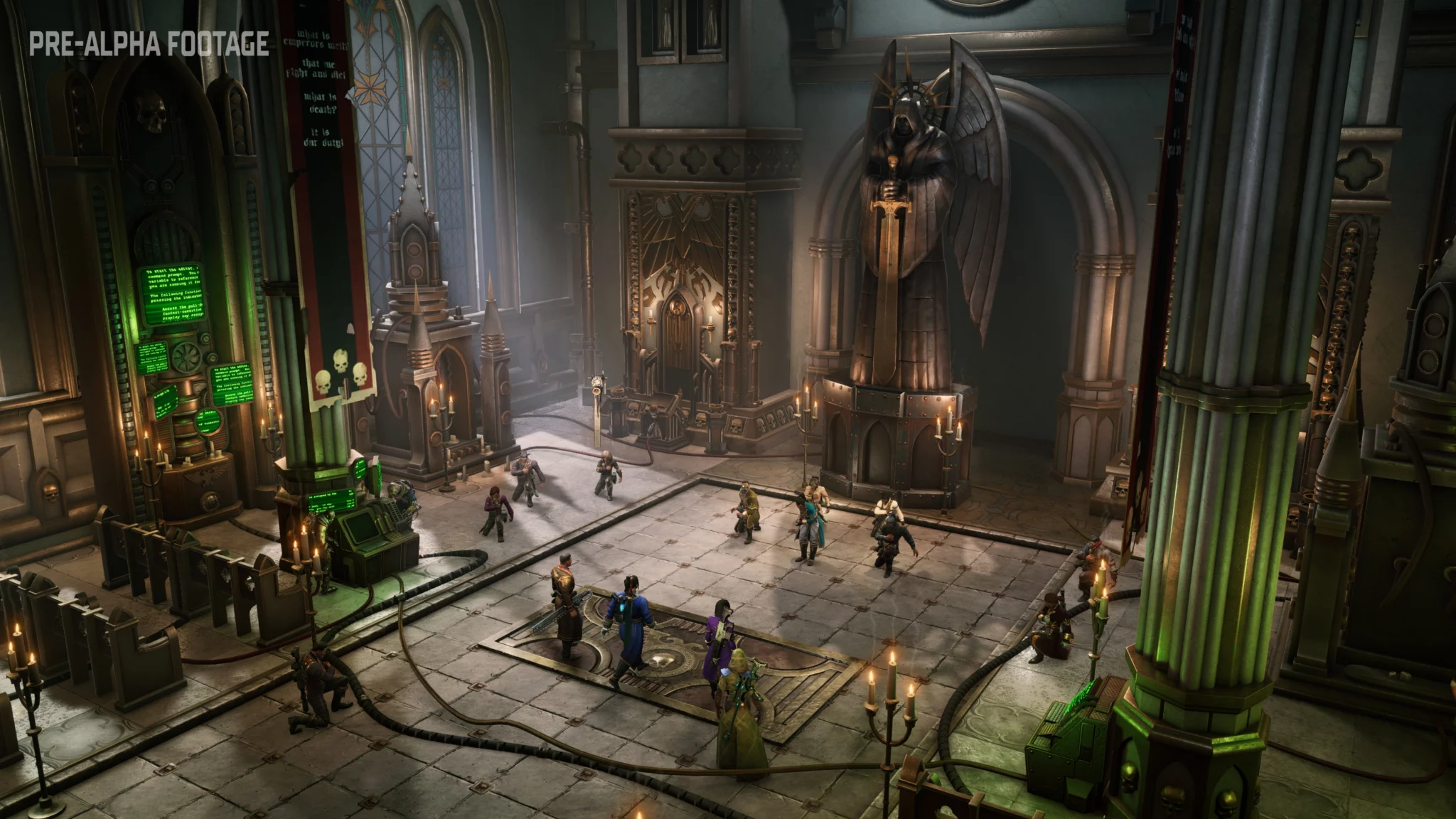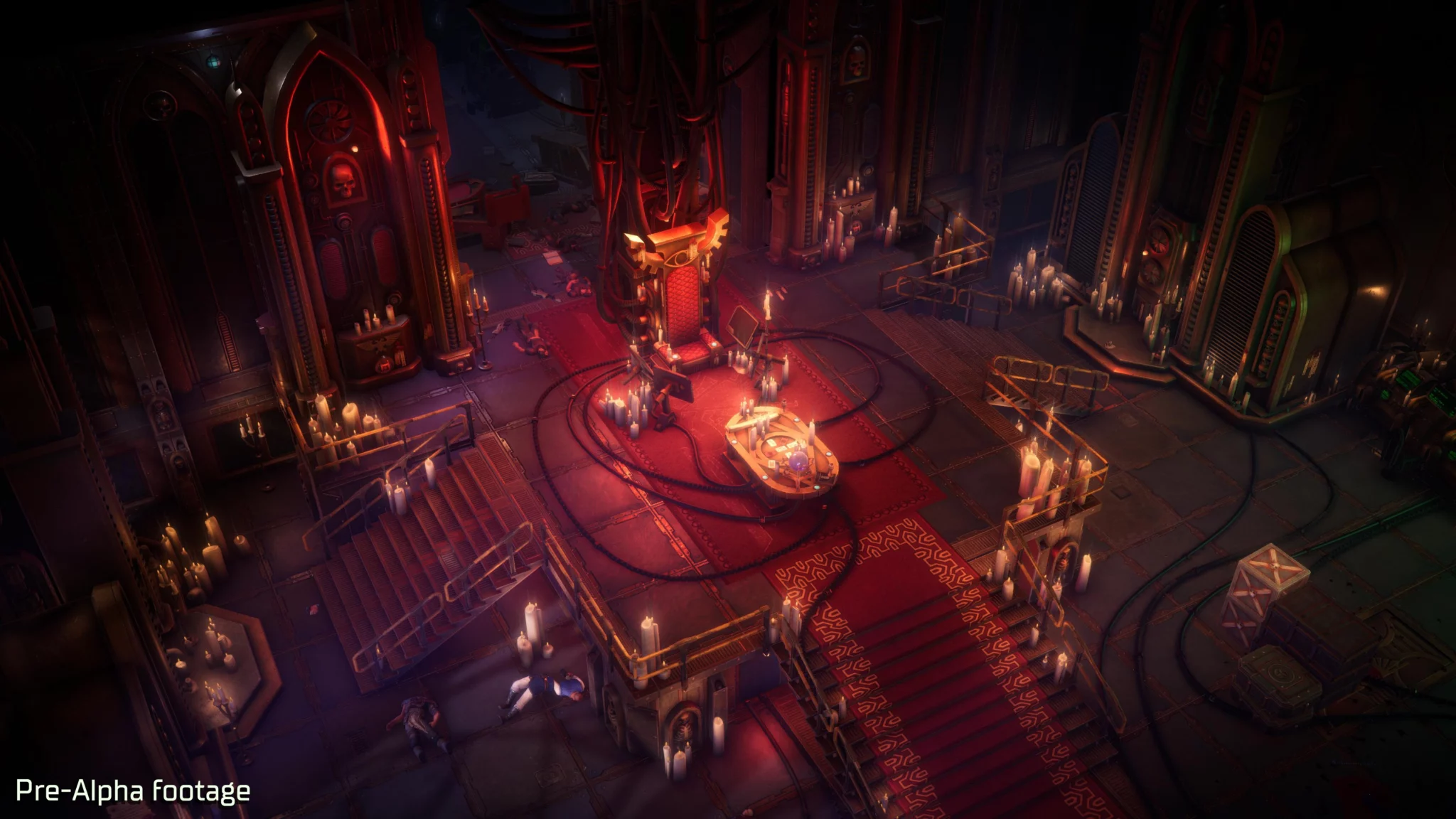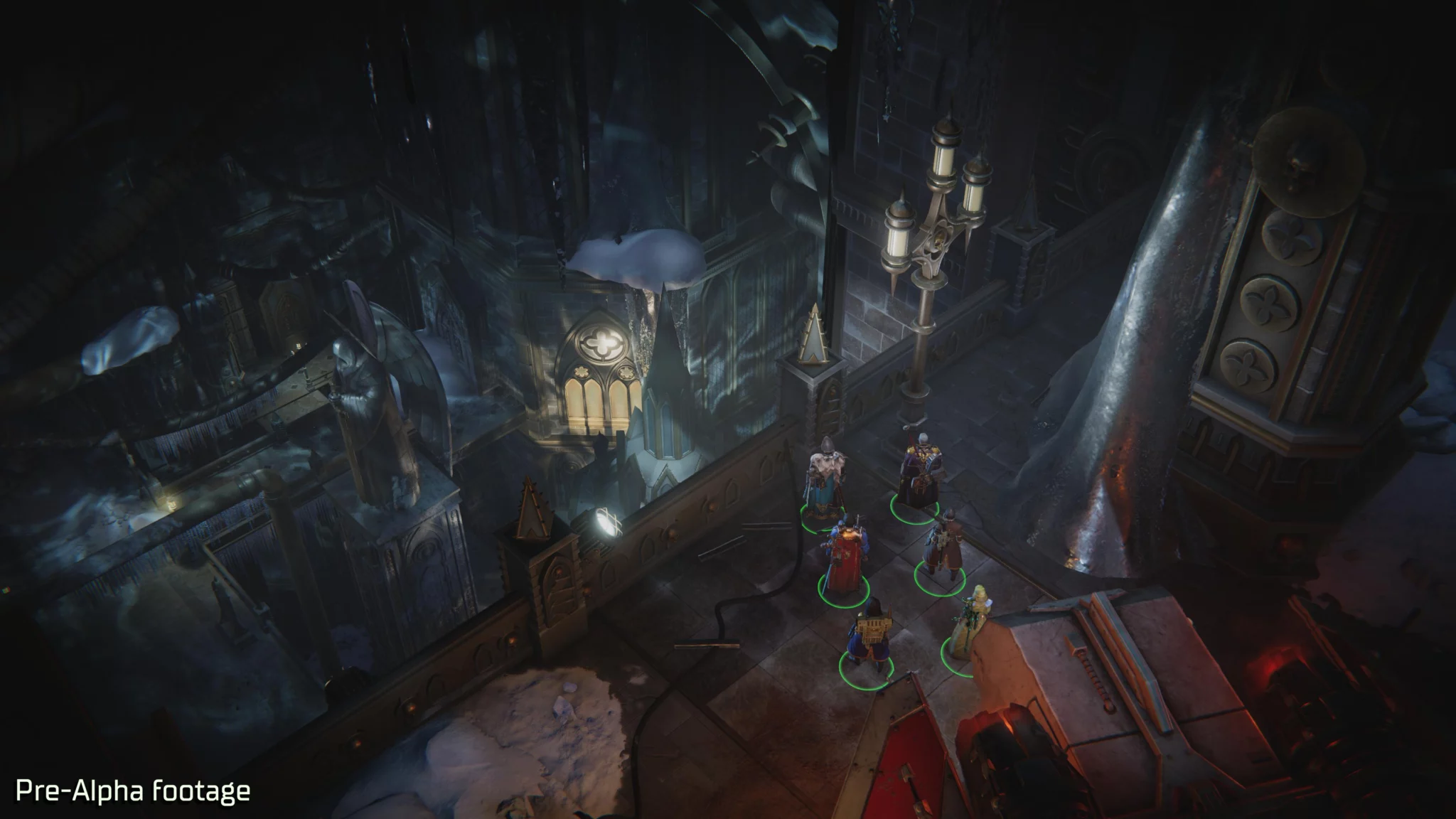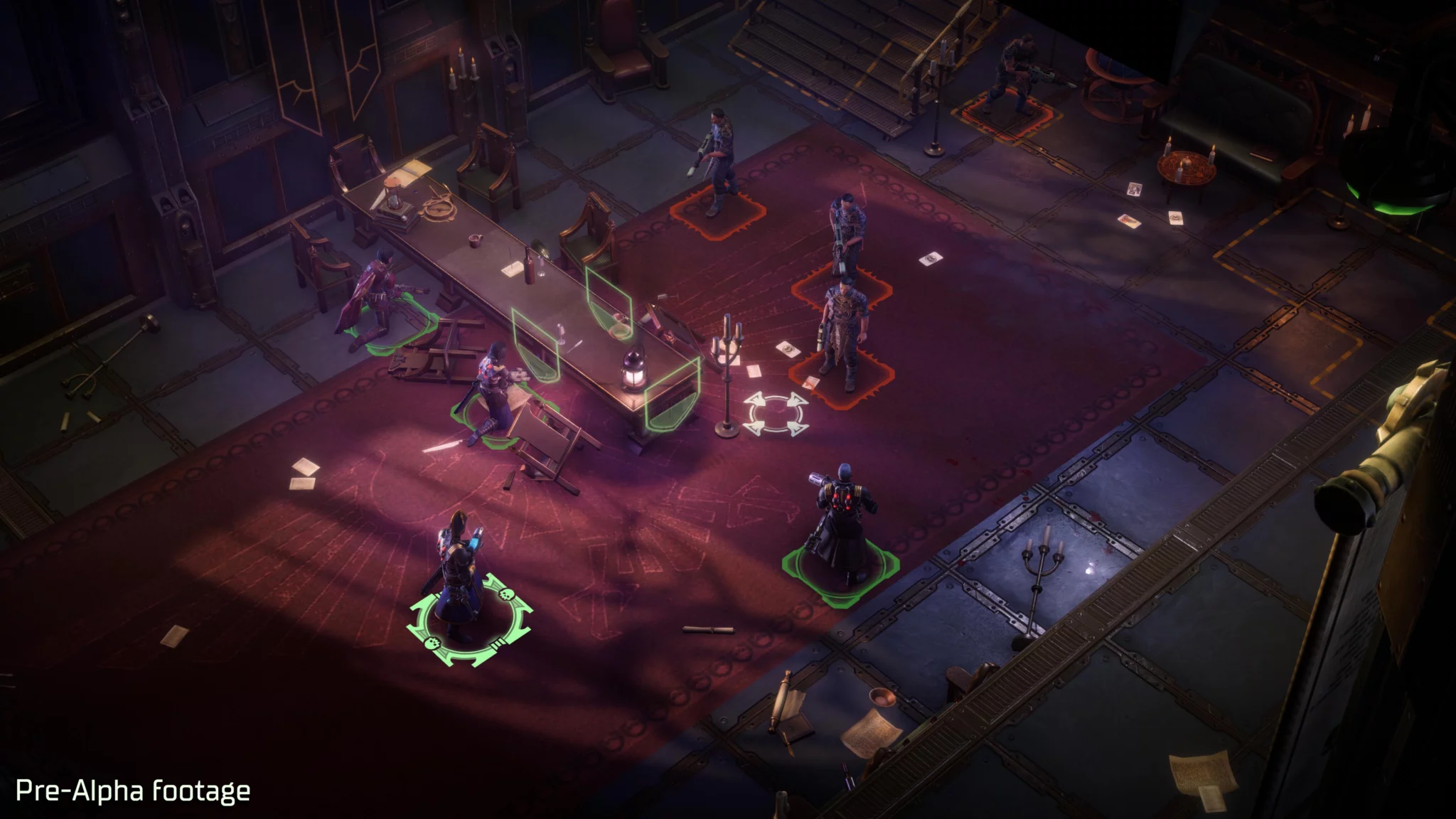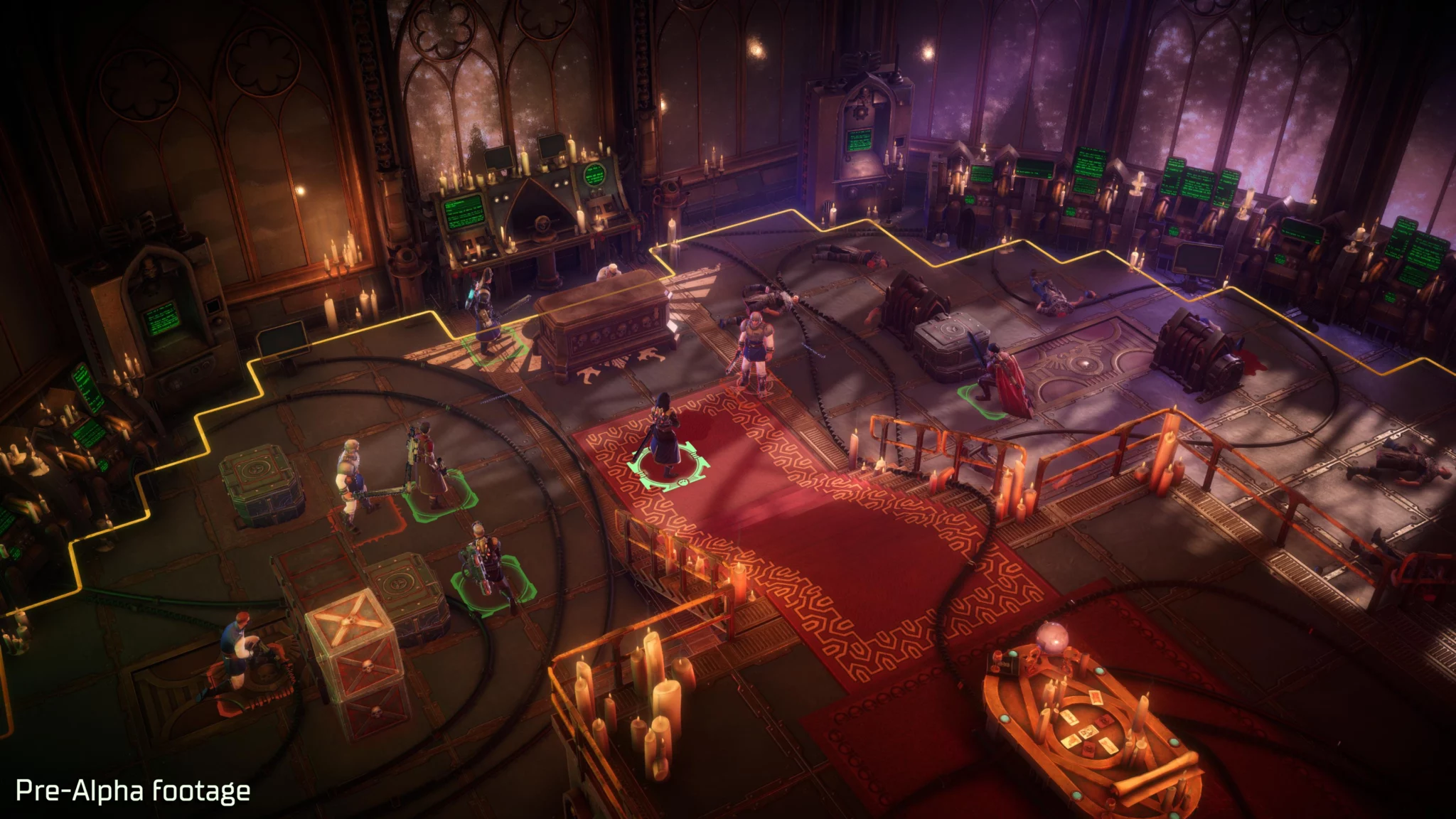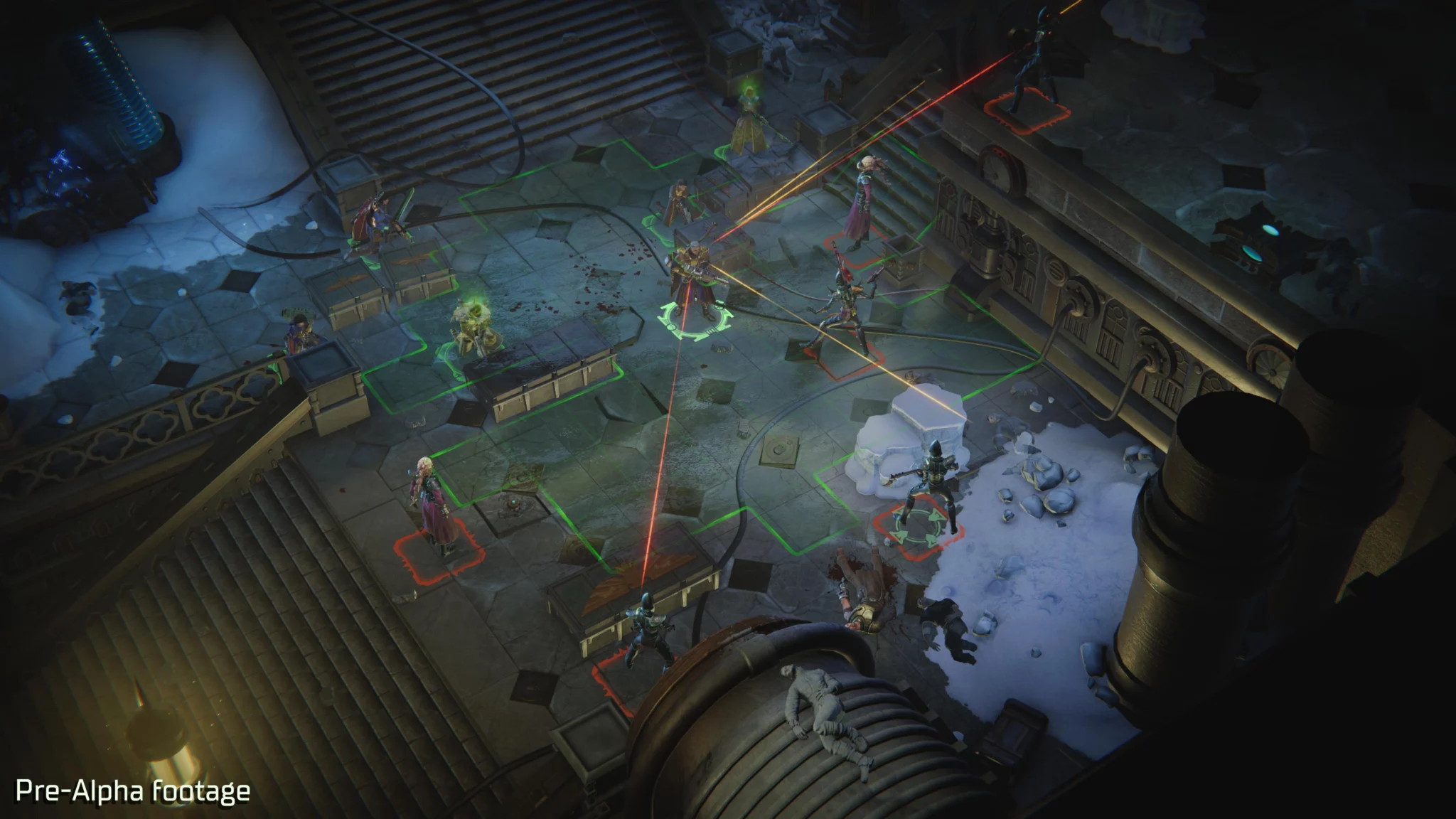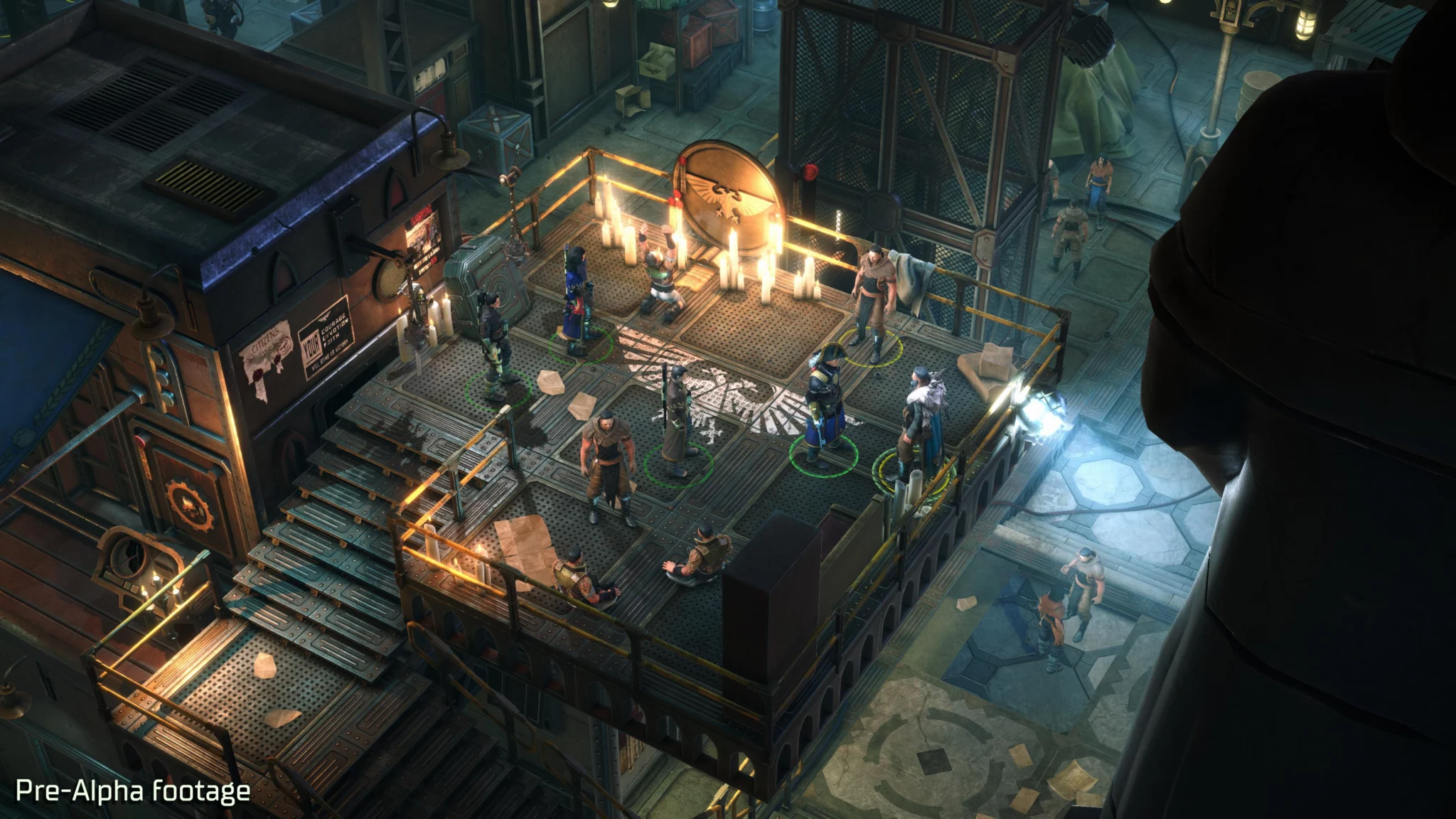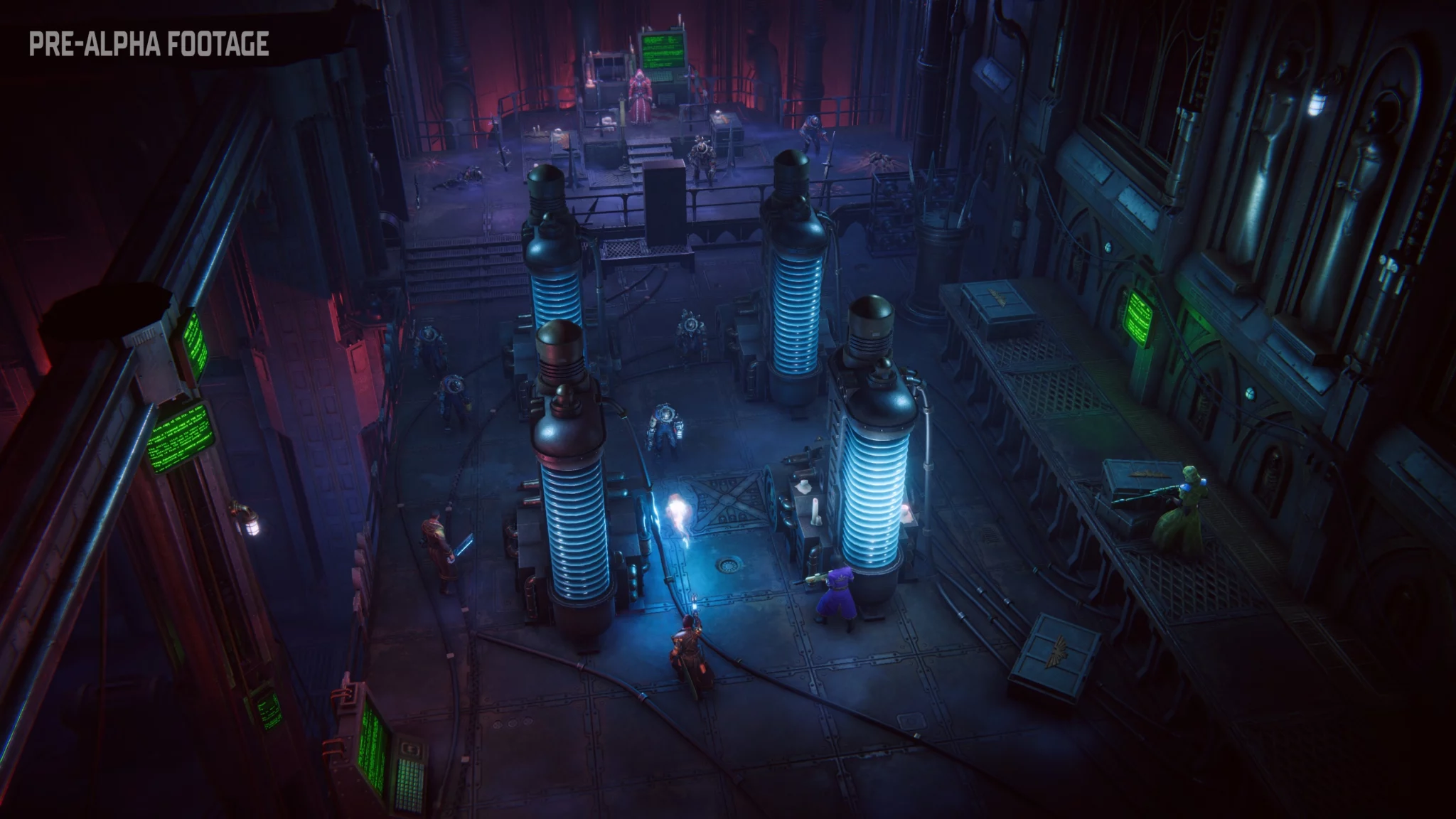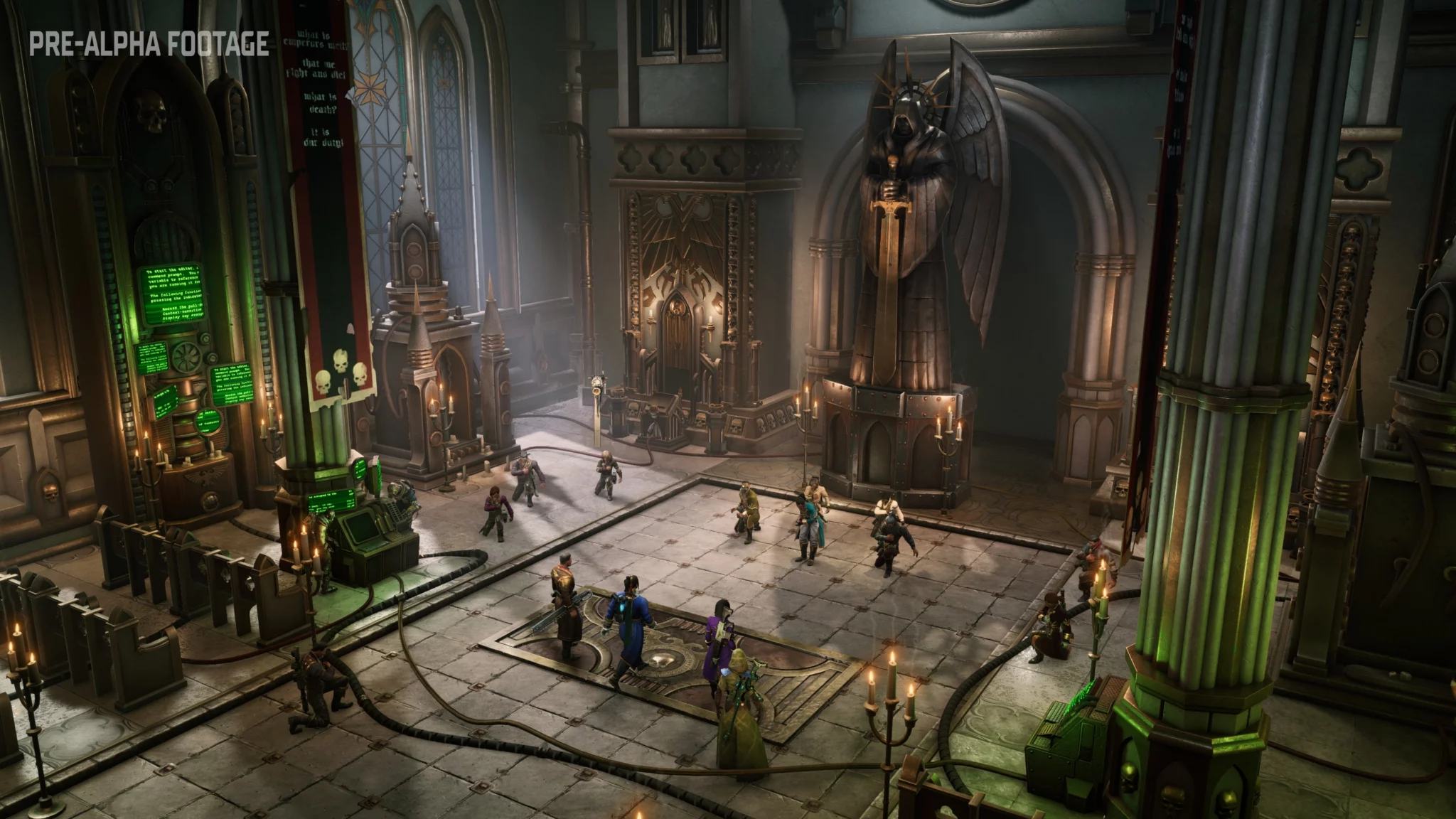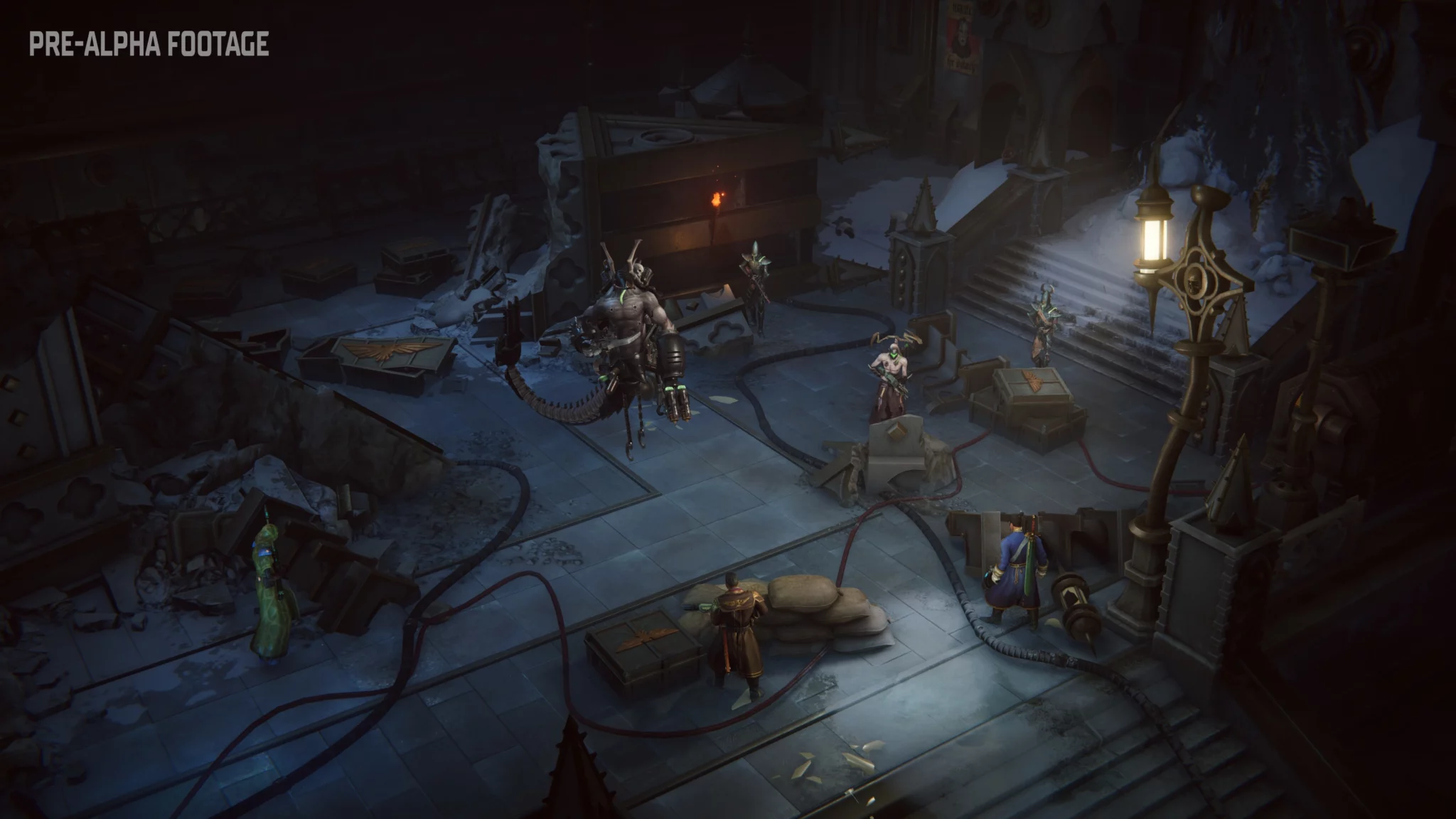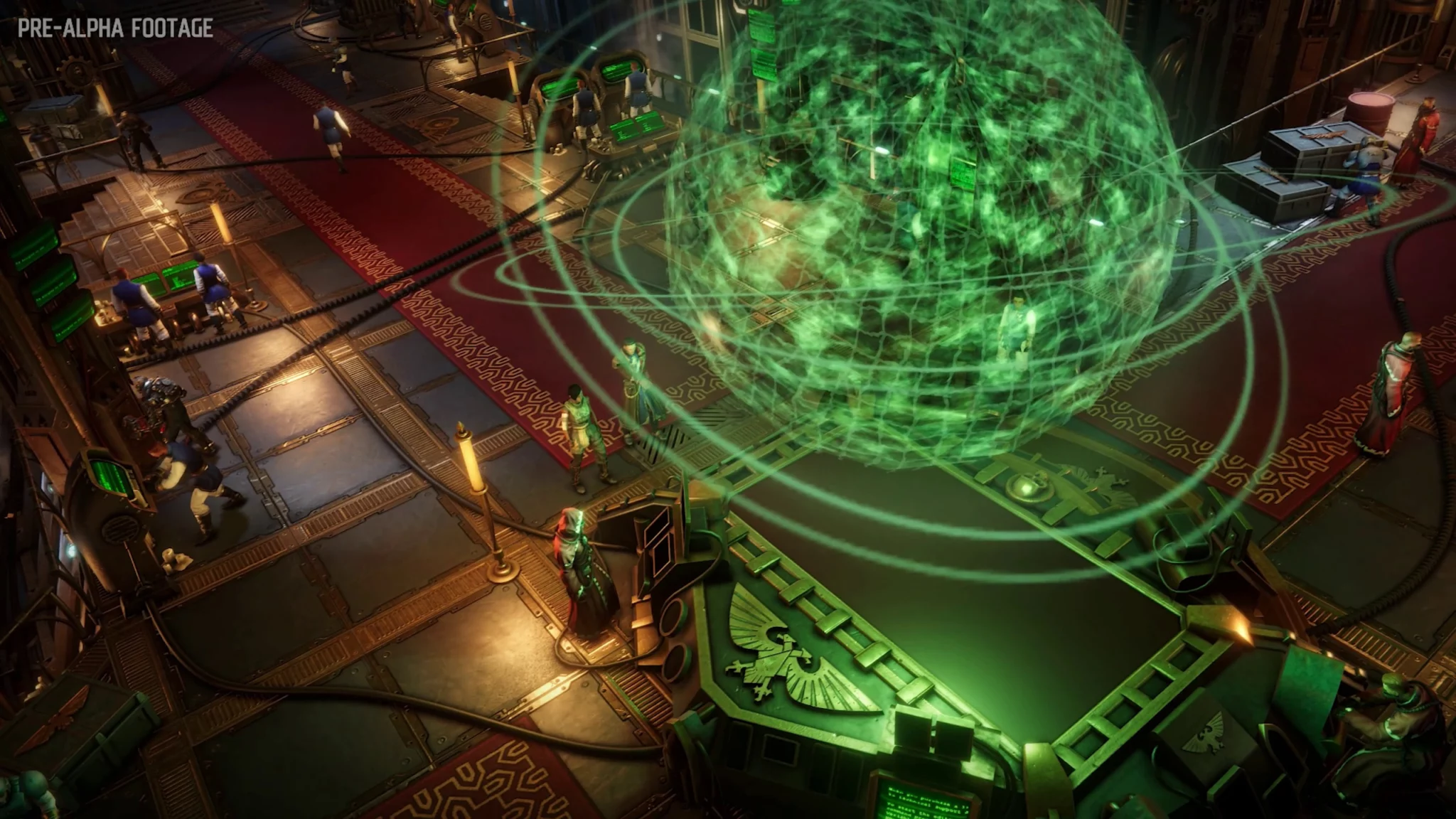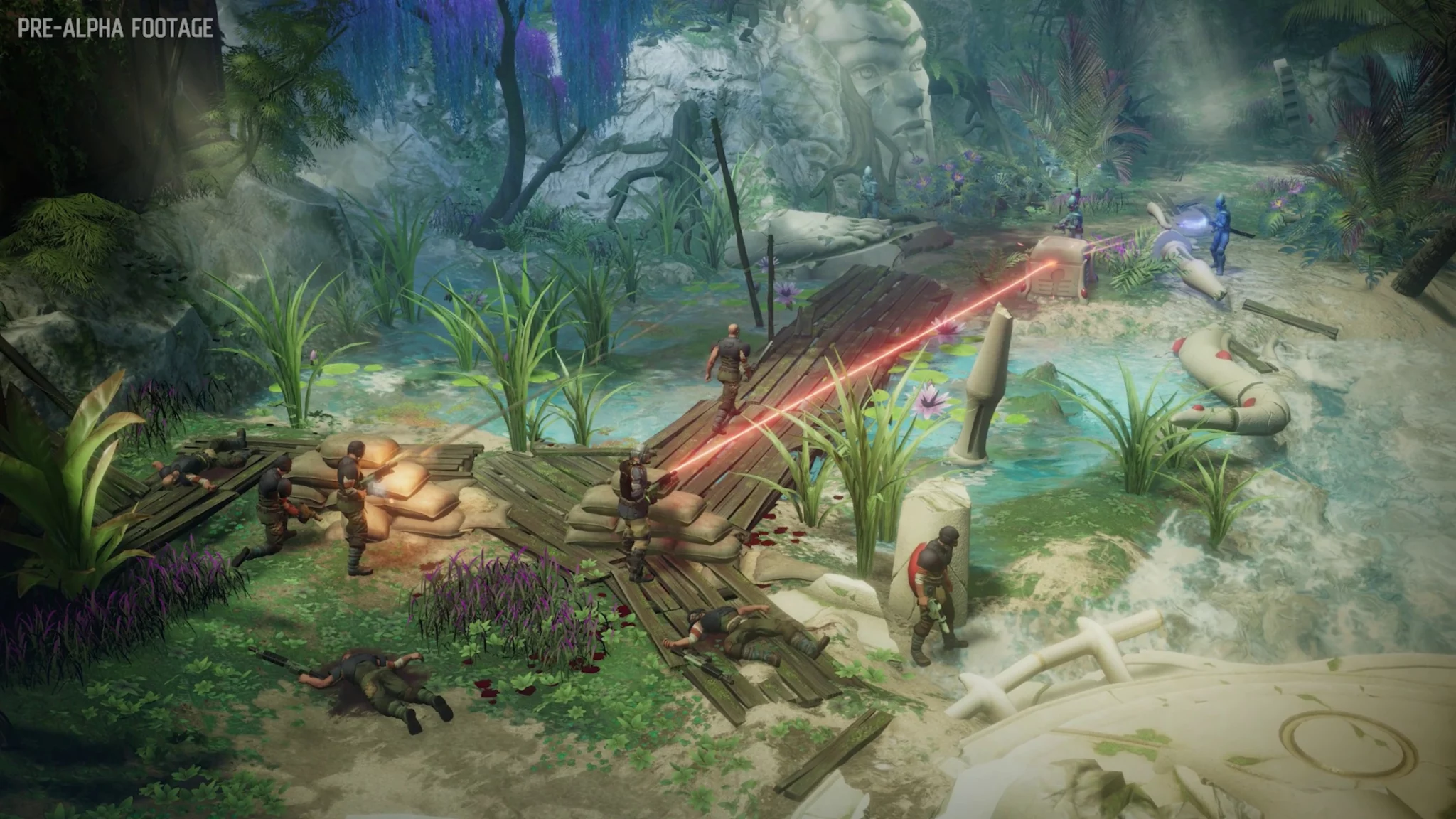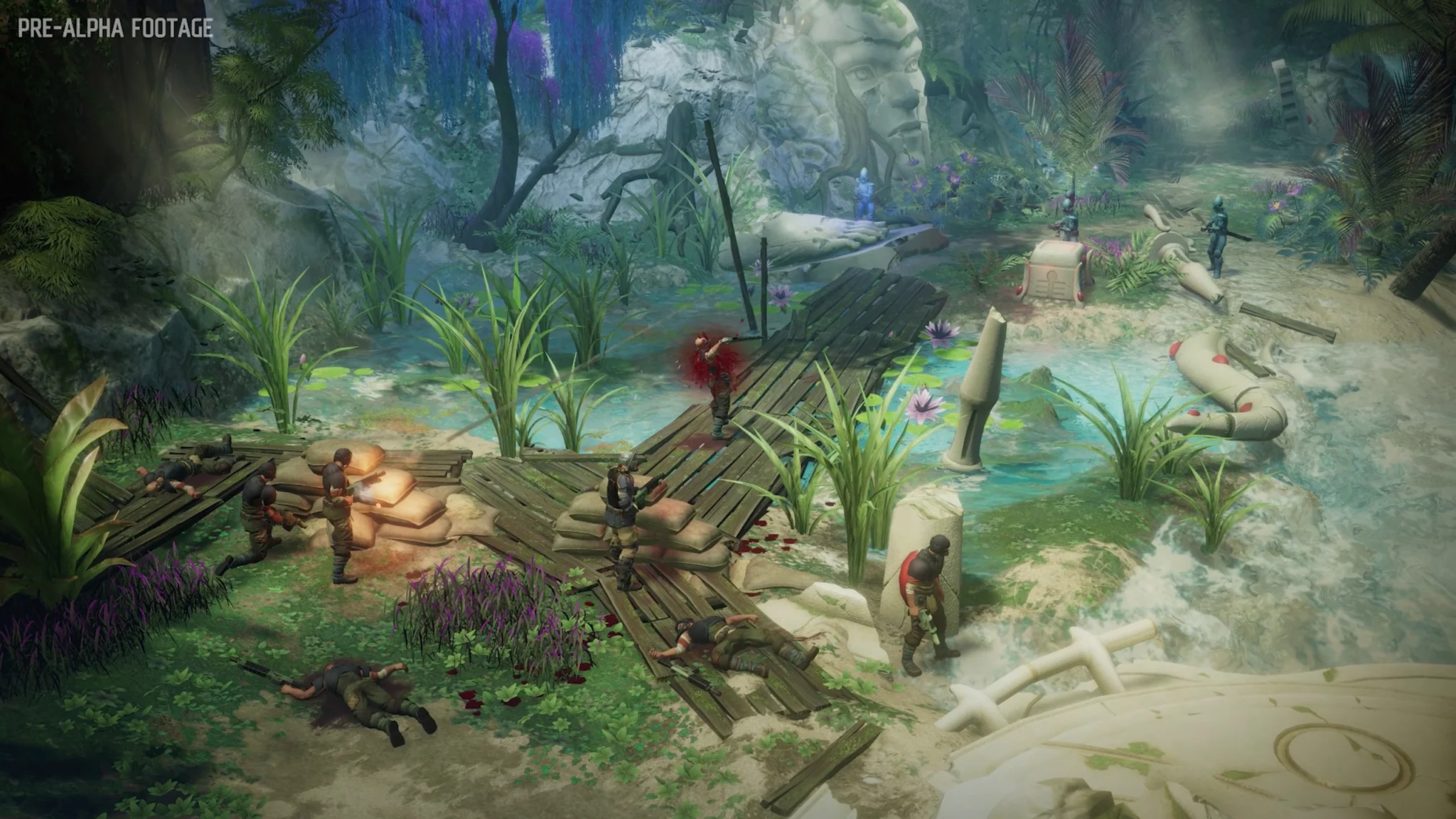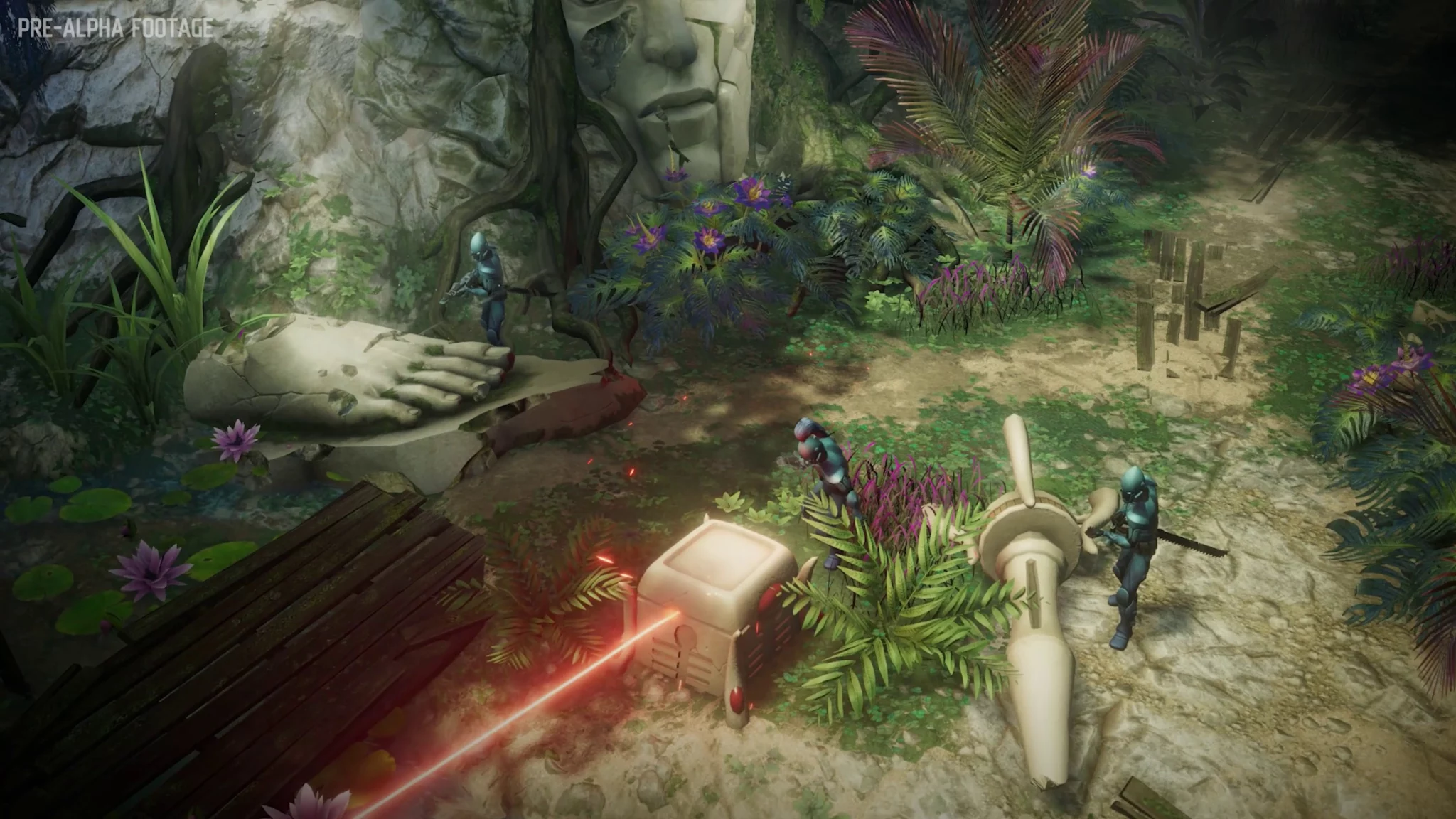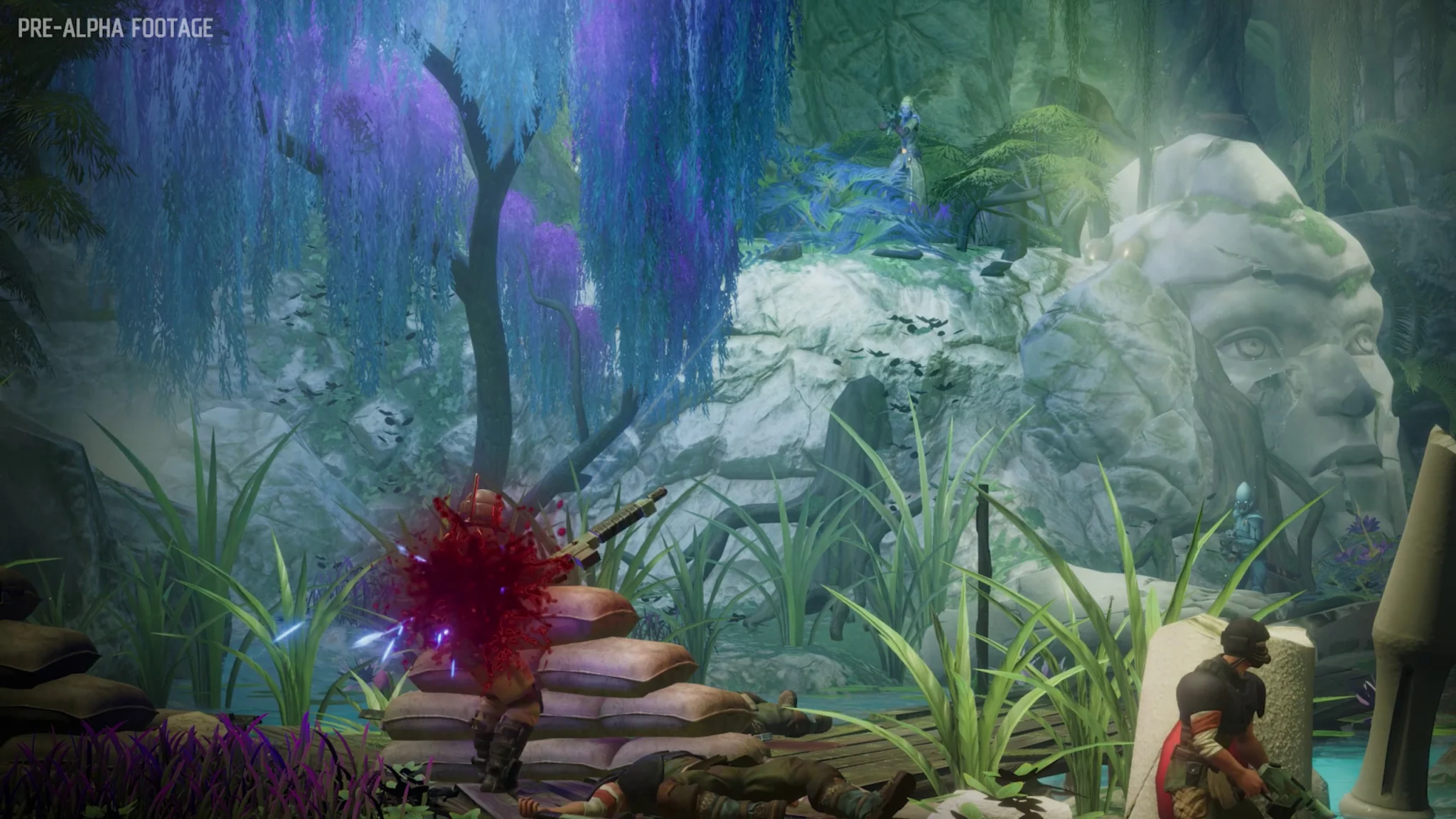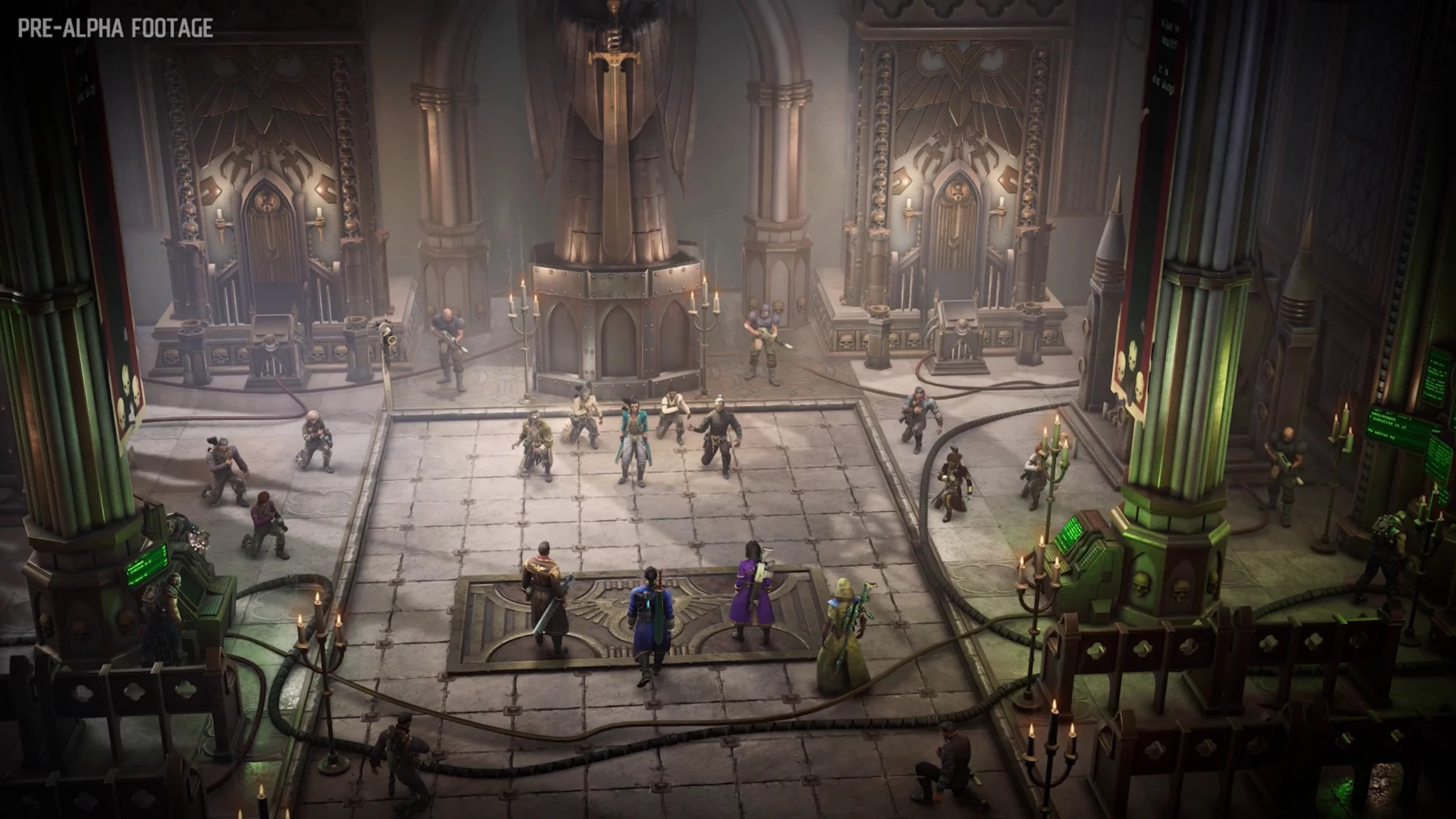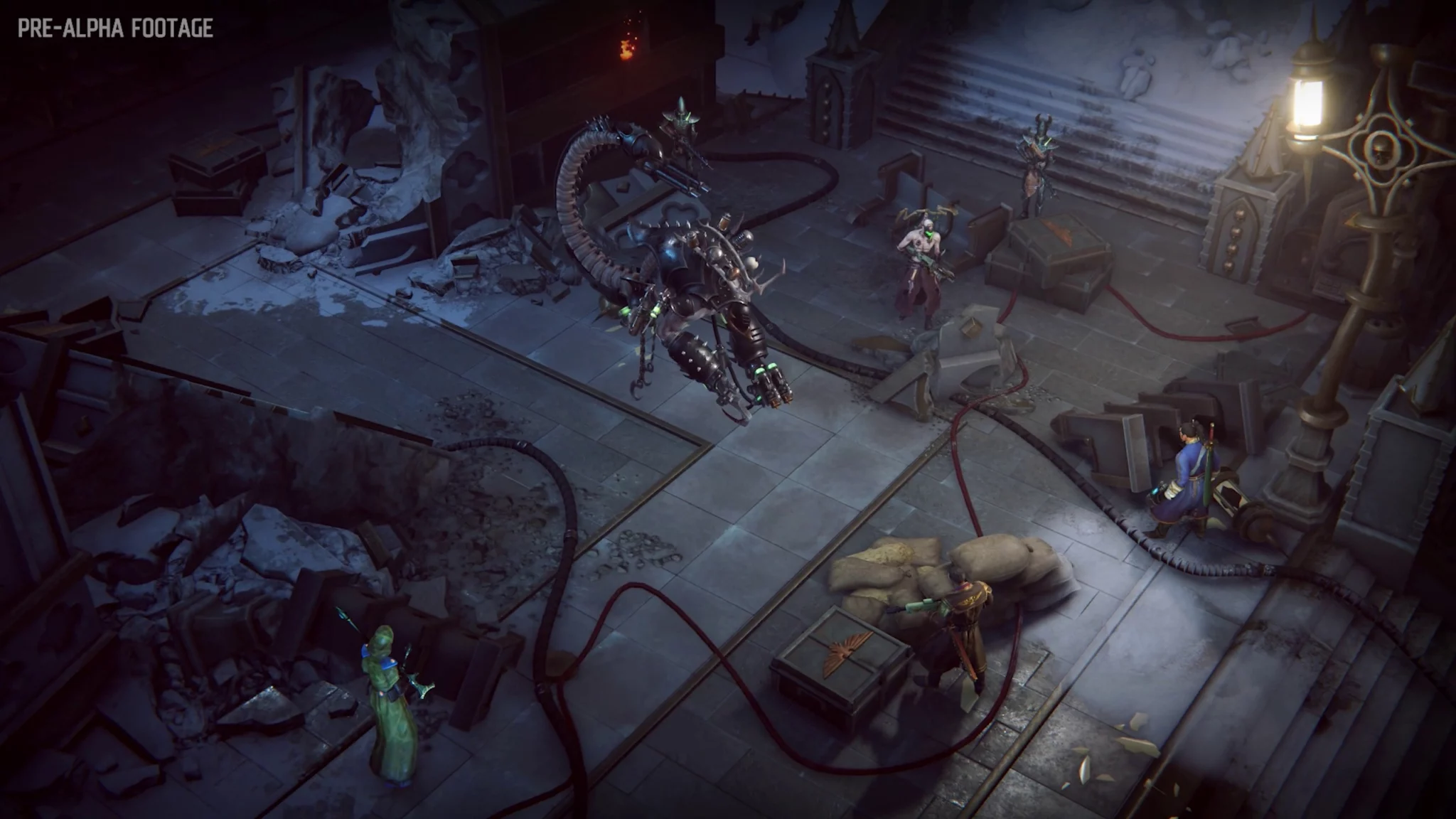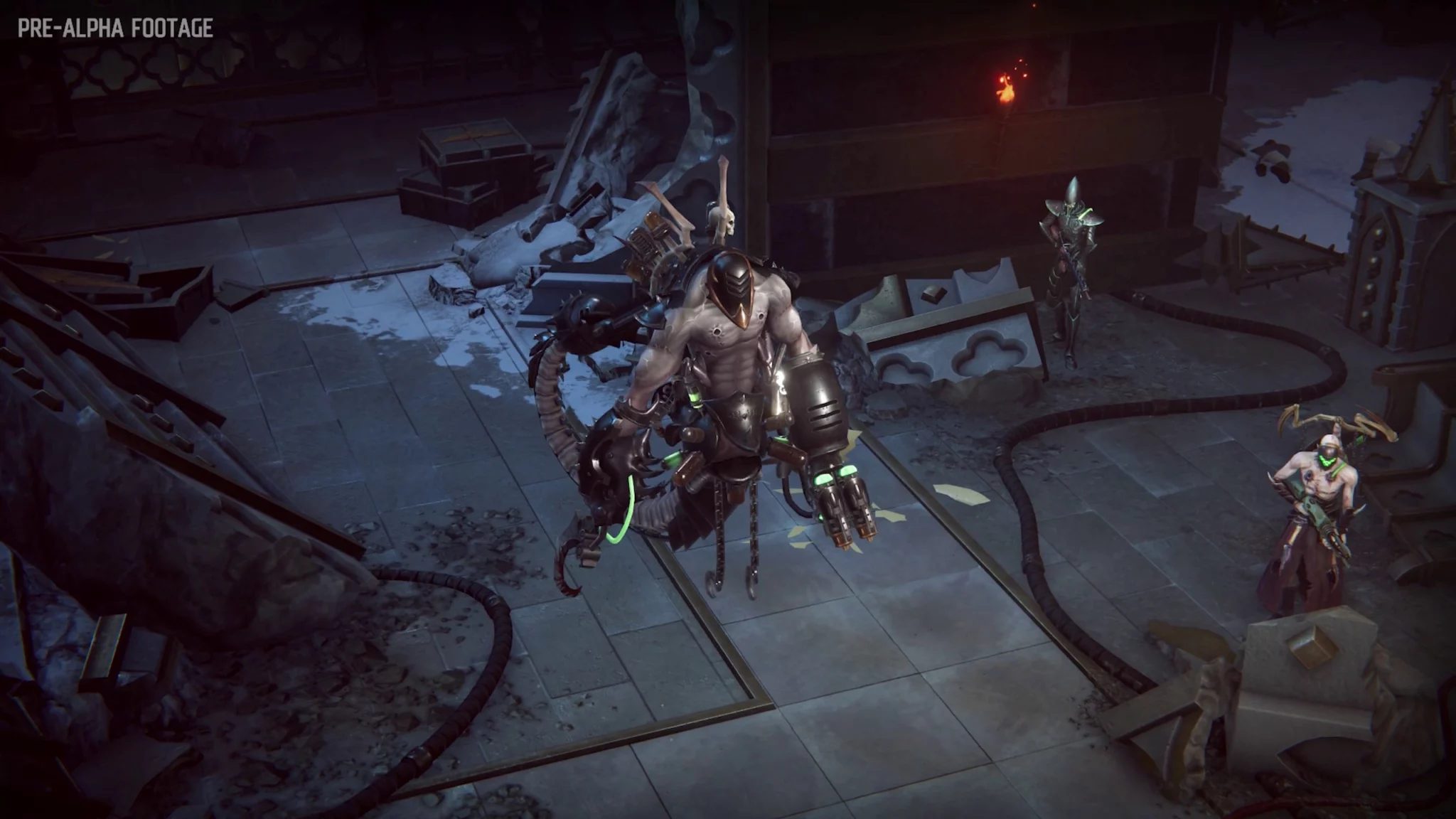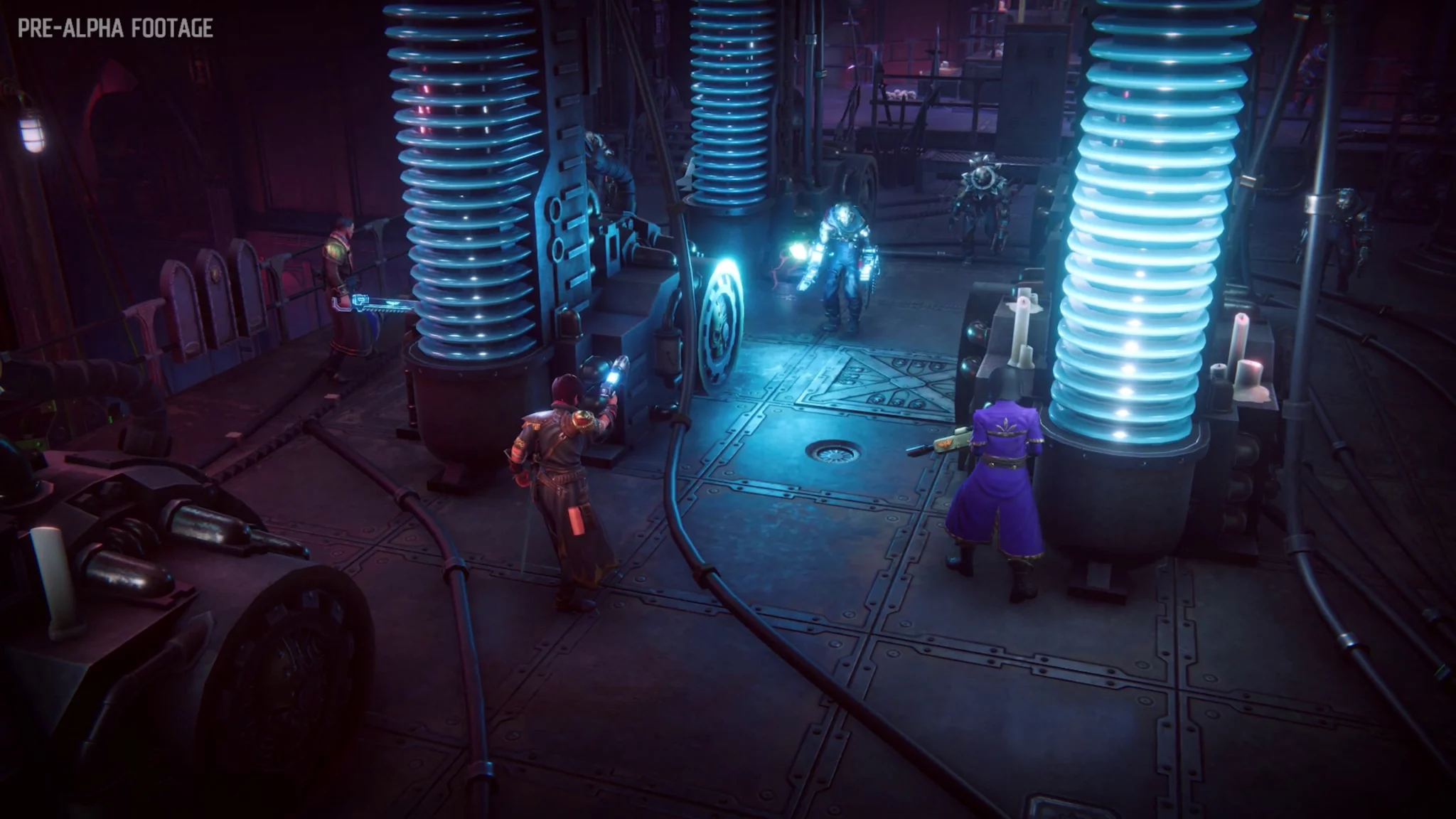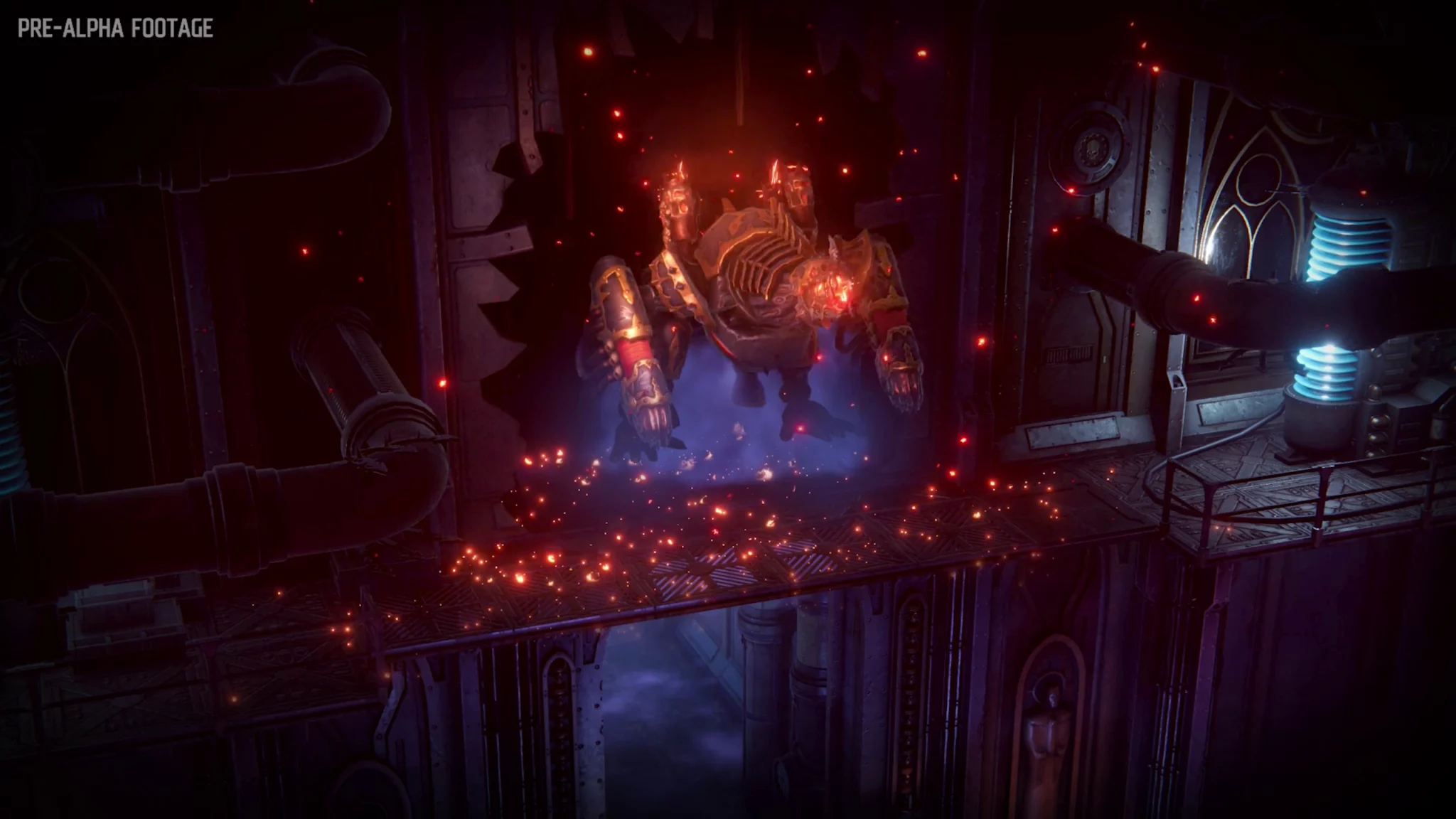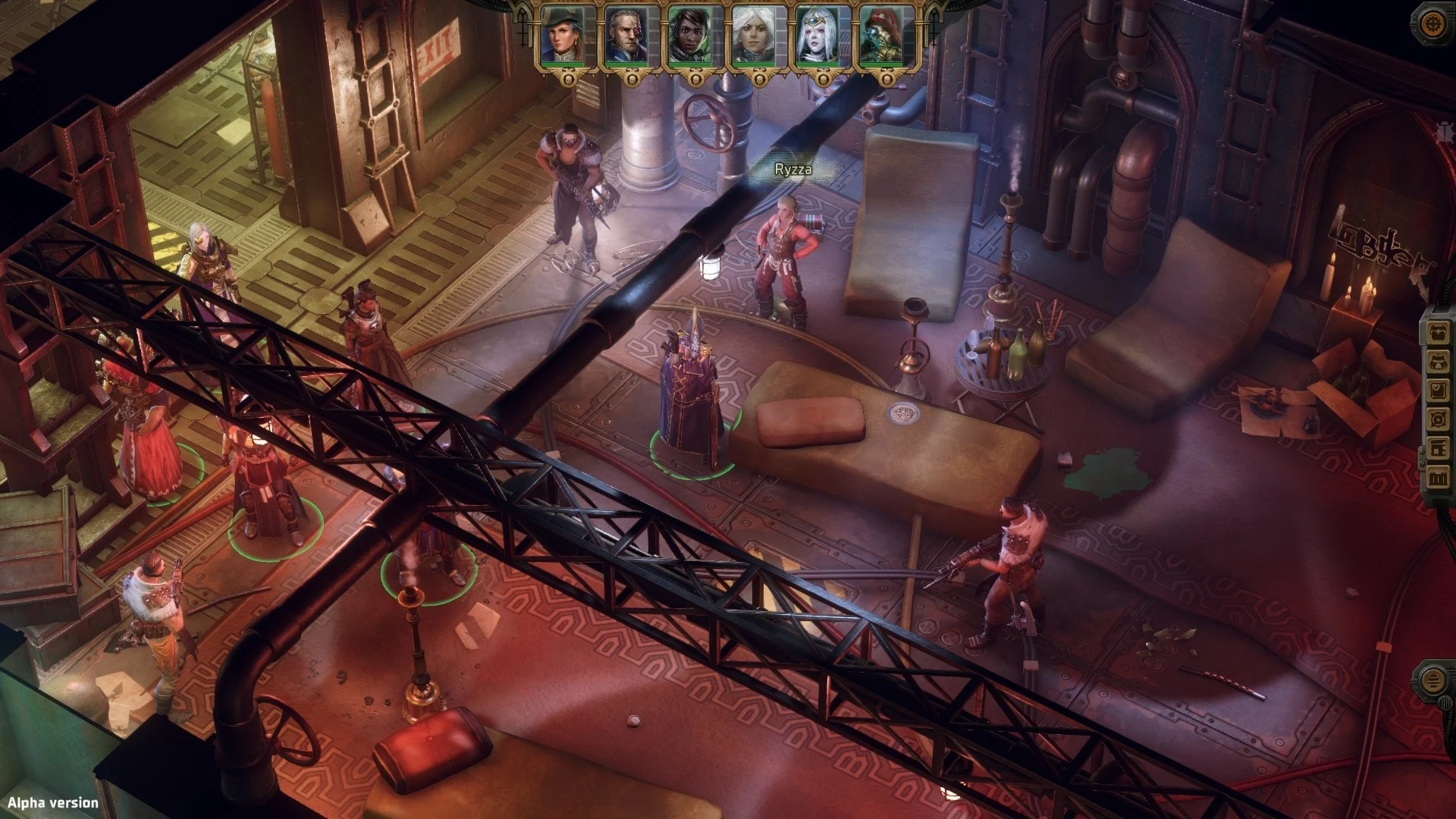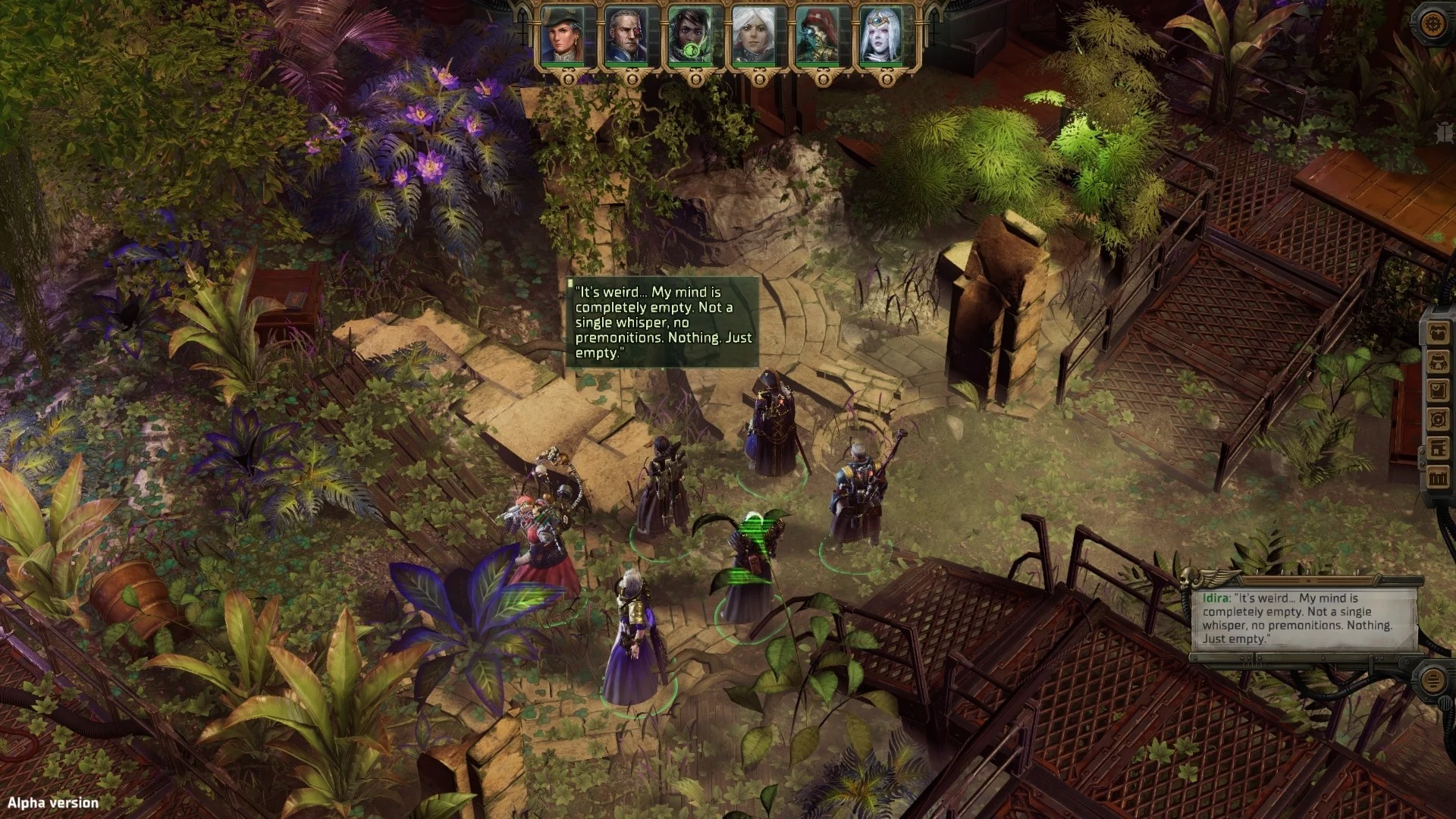Our Warhammer expert finds out for you how well the makers of the best fantasy role-playing game in recent years have also mastered science fiction.
When it was announced that Owlcat Games would be taking on the long-neglected Warhammer 40,000: Rogue Trader setting after two brilliant Pathfinder games, I was excited: If Owlcat can do even half as well with the fascinating Free Trader setting from my favourite universe as they managed to do twice with the pen-and-paper campaigns of Pathfinder, we can surely expect weeks of fun!
After some past disappointments – yes, Gotham Knights, I”m looking at you! – I”ve become cautious with my anticipation in the meantime, though. How good that Owlcat is letting us take an extensive look at Rogue Trader before the start of the alpha phase – read for yourself how much Warhammer awaits you.
If, on the other hand, you fancy playing yourself, we have good news: We are giving away (once again) 50 Alpha Keys for Rogue Trader. We”ll draw the winners on 8 December at 7pm, until then you can enter the competition and, with a bit of luck, take part in the alpha test of the role-playing game.
Table of Contents
Six heroes for one Hallelujah. And a spaceship!
Like all role-playing games, Rogue Trader starts with classic character crafting before throwing us straight into the second chapter of the campaign. Accordingly, I cannot yet judge the quality of the tutorials and story opener.
The character creation focuses on the background of my free trader, from which the basic character values also result. In the form of a dossier in book form, I gradually determine with four decisions which of the four possible classes my character belongs to, which bonuses she should get to the nine attribute values and which weapon and skill knowledge she possesses.
- Abelard Werserian: The former Imperial Navy officer is the most loyal retainer of your predecessor Theodora of Valancius, serving as her right-hand man and seneschal in all matters pertaining to the Trade Empire. In battle, he acts as a tank, can use his abilities to make himself more resilient, and either lashes out at enemies with a thick mace or whips out a flamethrower.
- Argenta: Originally assigned to the Calixis system to protect valuable relics, the Sororitas sister ship was lost in the warp for two centuries. Now without a mission, she has joined the crew to atone for an earlier mistake. She fearlessly deals out in battle with her bolter or roasts her opponents with her melter.
- Cassia Orsellio: As heir to a house of navigators, Cassia lives in constant danger of being caught up by her enemies and possesses a unique mutation that allows her to predict ship routes in the warp. Through her commands, she empowers her companions in battle or unleashes a terrible horror among enemies through her gift.
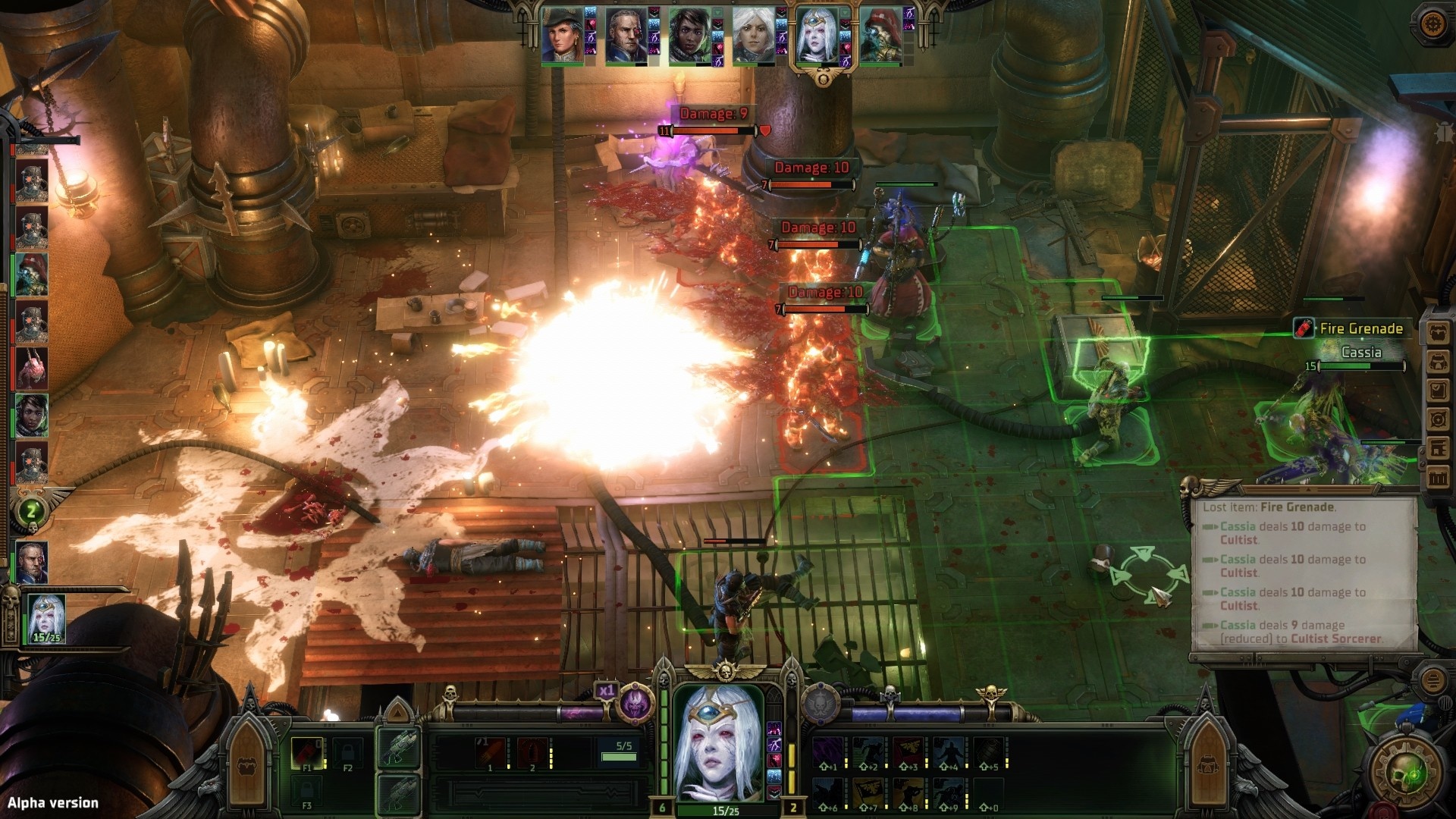
- Indira Tlass: Trained away from the Empire, the somewhat shady psyker sees her powers as both a gift and a curse that slowly begins to eat her from the inside. She supports you as a skilled sniper or unpacks a nasty chain lightning.
- Pasqal: The Techpriest hails from a division of the Ordo Mechanicus dedicated to exploring the Koronus Expanse. He does not like to talk about the past, but quickly proves to be extremely helpful in picking locks and disarming traps outside of combat. On the battlefield, he strengthens his companions with a powerful weapon buff, pushes enemies back with his dendrites, blasts those standing at a distance with his plasma rifle or deals powerful blows with his axe.
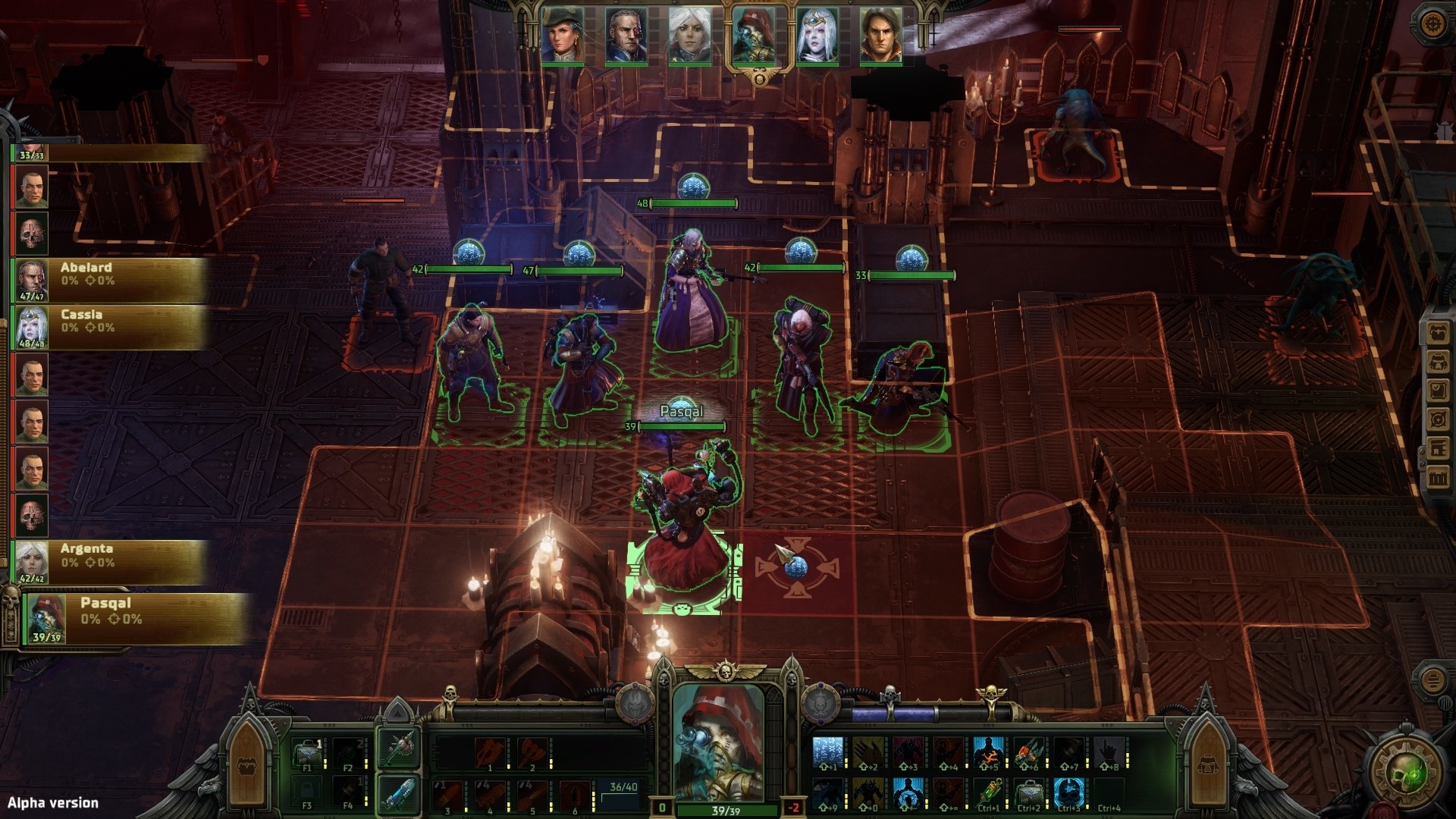
For the current problems in the free trader business, it doesn”t work without plenty of support: my ship is fancy but pretty damaged and needs some repair rounds in the dock. Wild warp storms ensure that I no longer have access to the resource-producing colonies of my trading empire. Hardly docked at the space station Footfall, I also have to deal with a crazy cult, aggressive gangsters and the conflicting interests of four groups with influence in the sector.
With this basic constellation, Rogue Trader manages to pull off a wonderful role-playing trick: I already feel powerful shortly after starting the game and don”t have to work my way up through rat-infested cellars first. At the same time, it serves me an exciting starting situation and enough reasons to become even more powerful.
Much more than pirates. Much more!
The original pen&paper role-playing game Warhammer 40:000: Rogue Trader was already released in 2009 and was also released on the German market one year later. The unusual setting, however, does not let you slip into the role of Space Marines like many other games from the Warhammer 40,000 universe, but entrusts you with the trading empire of a free trader in the Koronus Expansion.
This lies in the north-western part of the galaxy a good distance away from the Empire and is particularly difficult to navigate due to the environmental conditions, but the planets entice you with abundant resources and treasures. This is exactly where you start your Rogue Trader adventure and get to know the dangerous region created for the role-playing game near the Halo stars and its inhabitants better.
Free traders, however, are not pirates, even if, similar to the earthly freebooters of the Renaissance, they have a power of attorney, approved by their ruler (here the God-Emperor), for their not always completely legal business. In Warhammer 40,000, free traders are also the extended arm of the empire, exploring unknown regions, administering colonies on conquered planets, getting trade going and ideally amassing a fair amount of wealth along the way.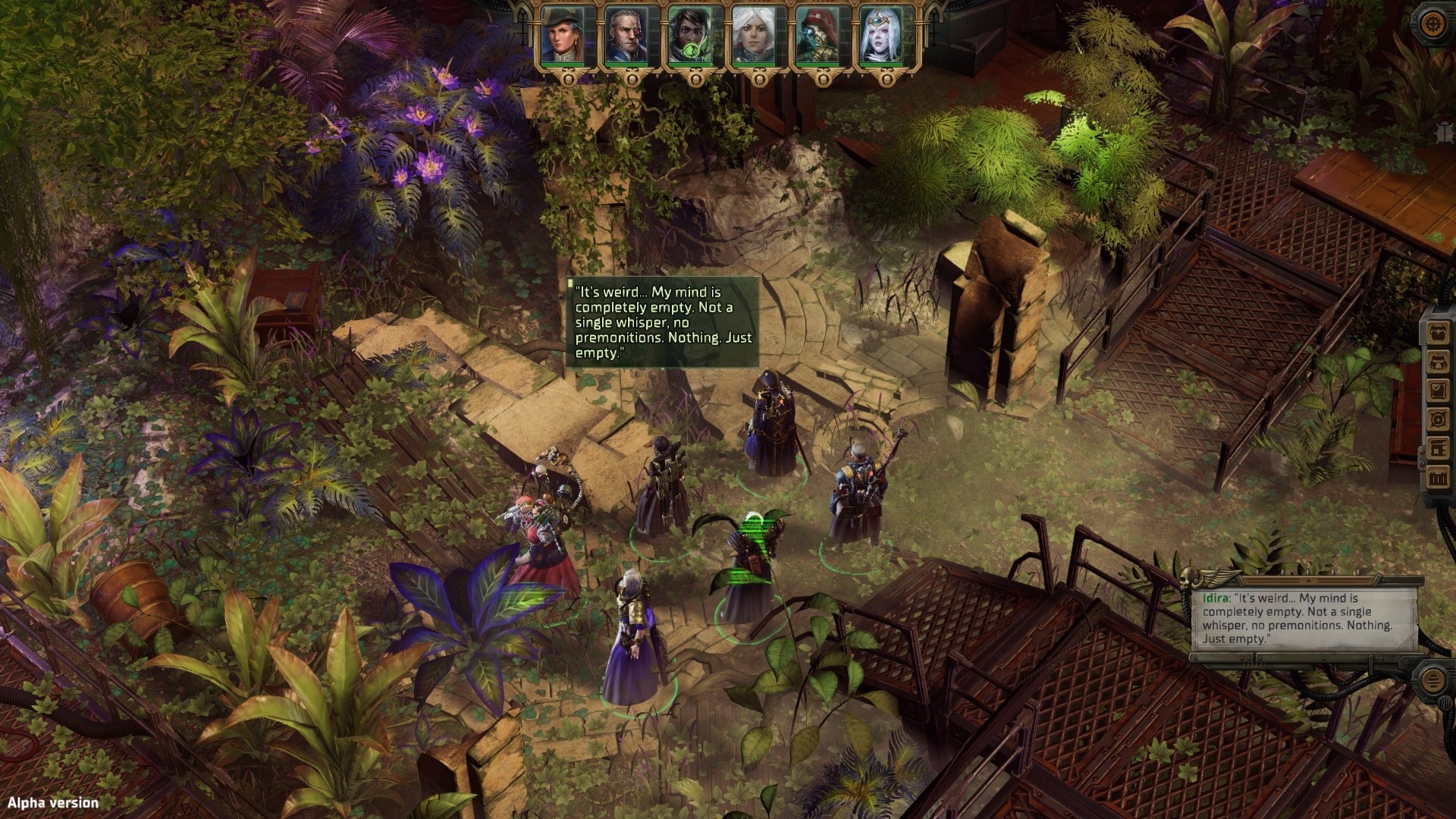
Those who want to read have a clear advantage
You can see how intensively Owlcat has dealt with the original in just about every corner: Everywhere you can find the smallest details such as skulls, servitors dully working away, strips of parchment floating around with prayers on them, “The Emperor protects” posters, iconic equipment such as chain swords and much more. Tech priests from the Ordo Mechanicus speak almost incomprehensible gibberish interspersed with binary code, fanaticism oozes from every pore of the representatives of the Ecclesiarchy and on the battlefield we compete with pink horrors, mad mutants, demonic chaos dogs and crazed cultists. You can hardly get more Warhammer atmosphere than that!
As the main story slowly picks up speed, we gradually get to know the region and its pitfalls better. Reading fans have a clear advantage here, as you have to deal with a lot of text. Unlike Baldur”s Gate 3, you neither get a full voice-over nor a closer look at the acting characters, you only hear the voices of your companions when they give short comments on the events.
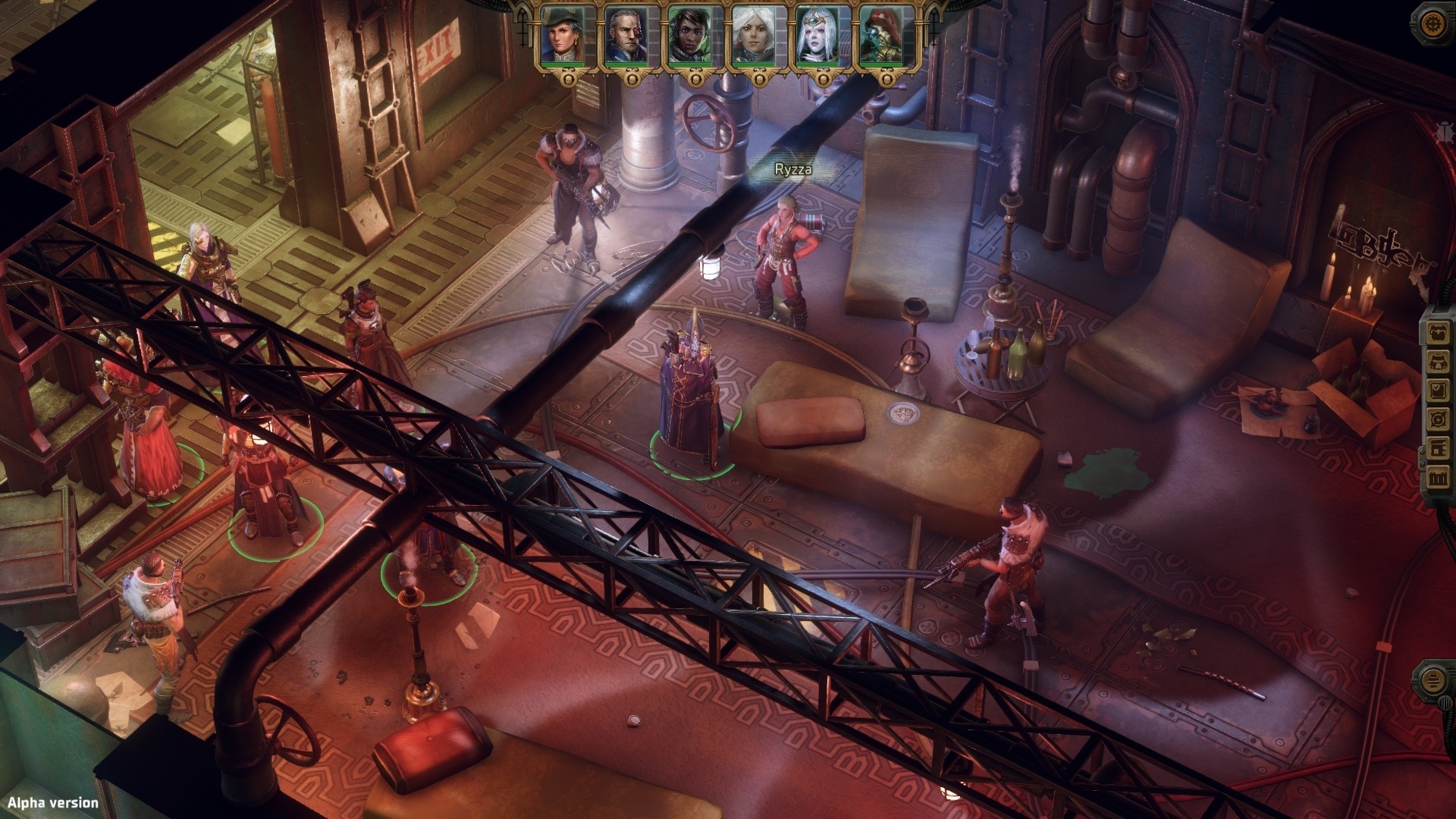
Besides a small and rather moderately detailed figure in the freely rotatable game world, acting persons are depicted at most with a small character image next to the text. However, free rotation is not always an advantage; when looking around or in combat situations, I often just had a black area on the screen due to high posts and awkwardly placed protrusions and had to look for a more favourable viewing angle. Owlcat literally needs to make some adjustments here.
In keeping with your rogue trader”s abilities, you are provided with additional conversation options that, when successfully rolled for logic, persuasion or intimidation, give you more precise insights, provide you with important details or give you a corresponding reputation among the common population. In other places, you will only get further if your characters manage to jump over a channel, open a lock or break open a door by using force. In this way, all skills have a purpose and are also needed away from combat.
Unlike Pathfinder and true to the Warhammer template, there are significantly fewer skills and career paths to choose from, but at least according to our impressions so far, this is not to the detriment of the depth of the game. You don”t have to pore over and understand hundreds of skills before you decide, but your decision still carries weight.
Flare expressly desired!
Besides the setting, the biggest and already known difference between Pathfinden and Rogue Trader is the combat system: In Rogue Trader, the battles no longer take place in pausable real time, but are compulsorily turn-based. Nevertheless, or perhaps precisely because of this, they keep you on your toes. Since all the characters in the six-person group were already level 15, at least I wasn”t helpless in front of my plentiful attackers; all the heroes and heroines had already unlocked useful abilities and had enough movement and action points.
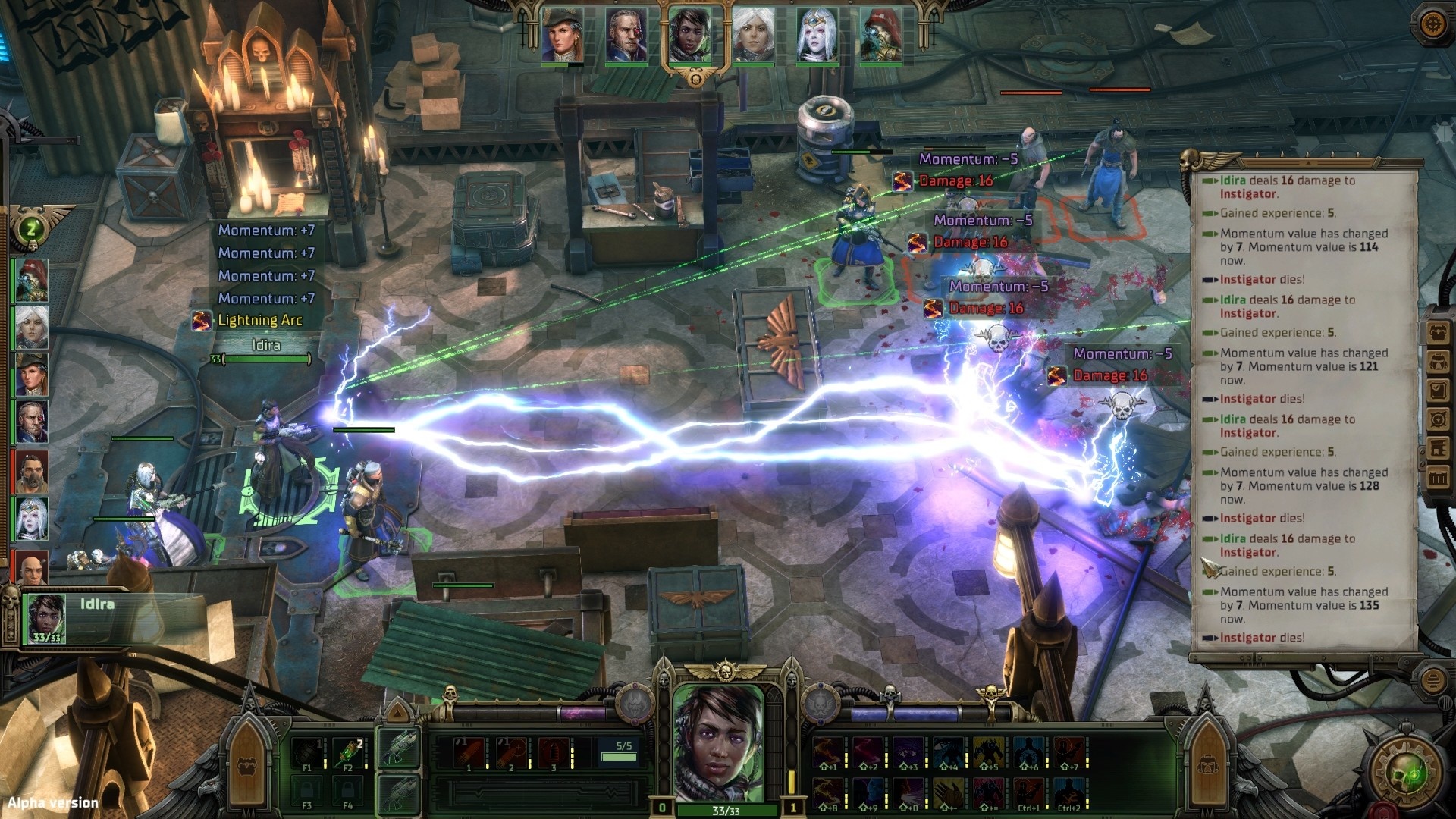
With the exception of your tech priest, your party members have two weapon sets by default, in which you place melee and ranged weapons to match unlocked weapon abilities. Depending on the combat situation, you can switch to the desired set and give enemies a good run for their money with flamethrowers, sniper rifles, shotguns, huge hammers and chainswords. The arsenal is, of course, much larger and fits the Warhammer setting like a power fist to the eye. My heart really sank when I let my Sororitas sister grab the melter to grill four gangsters at once and she sent a pithy line after them!
Clever tactics are half the battle
If you want to keep the upper hand on the battlefields of the future, the right tactics are crucial. Like in most role-playing games, the attack order of all participants is determined by the initiative value, characters with a higher value may start earlier. On the battlefield, you move your party members according to their movement points, then decide on the desired action such as an attack, use of healing pacts or grenades, an ability or a spell.
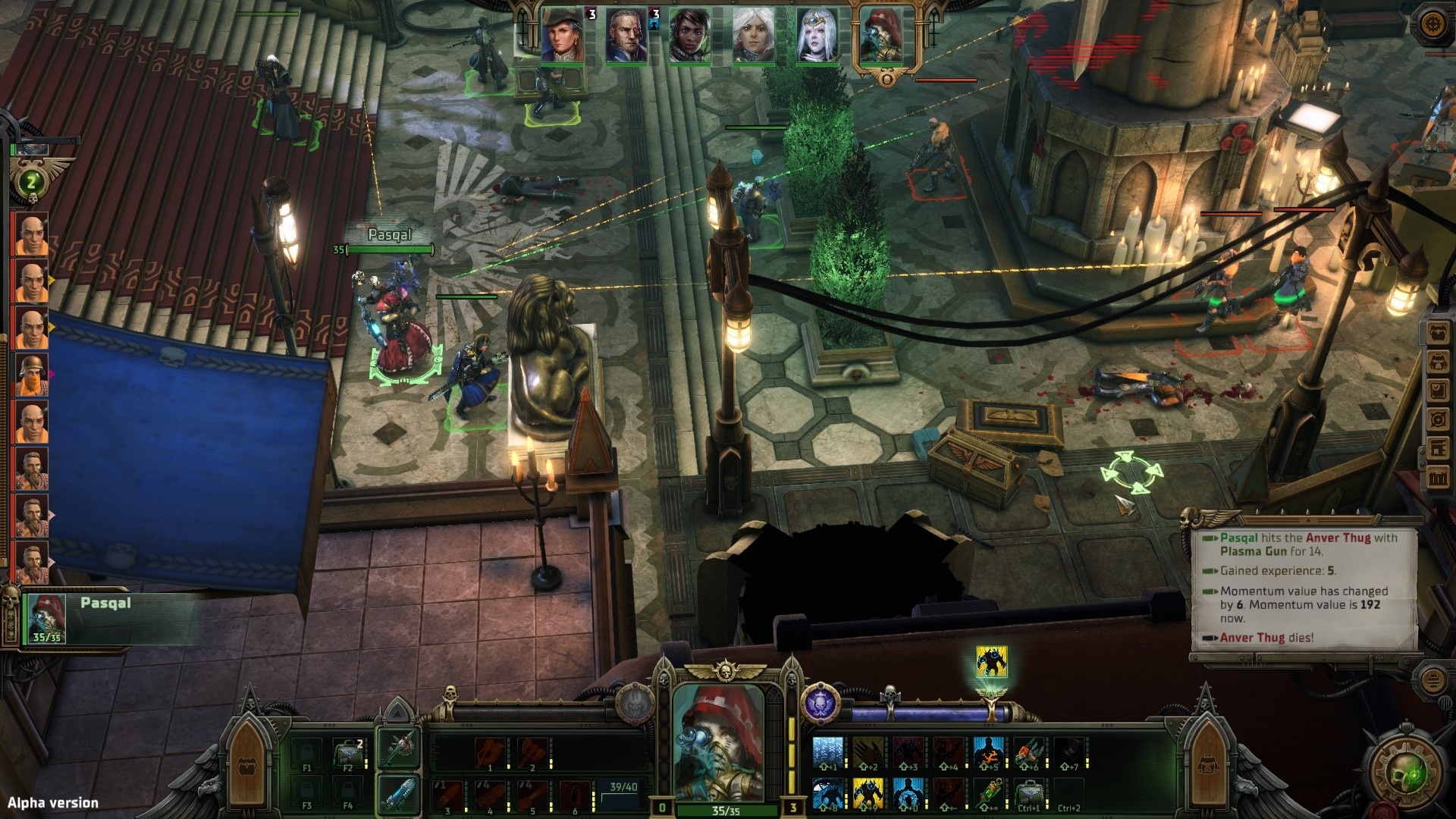
The vast majority of actions, however, consume all movement points and make new attacks impossible. So you have to think carefully about what and when you let your characters do in order to get the most out of each turn – after all, so do the enemies! Unlike in Pathfinder, cleverly used cover is also a key to success, as it partially or completely shields party members from incoming damage, similar to the XCOM games.
However, objects that provide cover, such as crates, wall parts, decorations or barrels, can also be destroyed by shelling, magic or grenades. If there is poisonous or flammable stuff in them, this creates unsightly area effects in the explosion radius. This is already really fun and, despite the turn mode, feels surprisingly action-packed and intense, the abilities really pack a punch.
The only problem I see is the high consumption of healing kits on the battlefield for damage-over-time effects. To stop poisoning or burning, besides a single leader ability, the use of healing kits is currently the most helpful if you don”t have armour at hand that offers corresponding immunities. Despite multiple uses of the kits, at some point the supply is no longer enough; I hope for more armour selection and useful additional abilities if fights against poison spitters and flamethrower fans are on the cards. A balancing quibble that can easily be corrected by release.
The perfect Warhammer seasoning for battles
To this point, Rogue Trader would simply be “just” an atmospherically done science fiction Pathfinder with a dash of XCOM. But a good dollop of chaos and over-the-top extras make Rogue Trader a real Warhammer game: for that you get Momentum and the dangers of the Void. Each time you damage enemies, you gain Momentum, which is displayed on a scale to the right above your abilities. The more Momentum you gain, the more often you can use heroic, class-specific extra abilities – these are available from a Momentum amount of 175.
With the mercenary ability, for example, my favourite Sister Argenta mutates into a wildly shooting avenger who wipes the floor with her opponents. The same applies to situations in which the opponents have put your group under a lot of pressure: You can use desperate measures as soon as your momentum drops below 25 and thus perhaps avert imminent defeat. If you use psyker spells too often, this can have unpleasant consequences: Magic effects weaken the veil that separates the powers of the warp from the world – you can read this on a scale on the left above your weapon abilities.
If the veil becomes too thin at some point, any further use of psyker powers can have extra negative effects in the form of annoying debuffs or extra enemies on the battlefield. This becomes especially important in combat with Chaos followers, who happily blurt out spells like there”s no tomorrow and make the Veil bar tick up at a rapid pace. So it”s good if your psykers can also contribute with normal weapons. Fortunately, all characters are able to defend themselves and will resort to grenades if nothing else works.
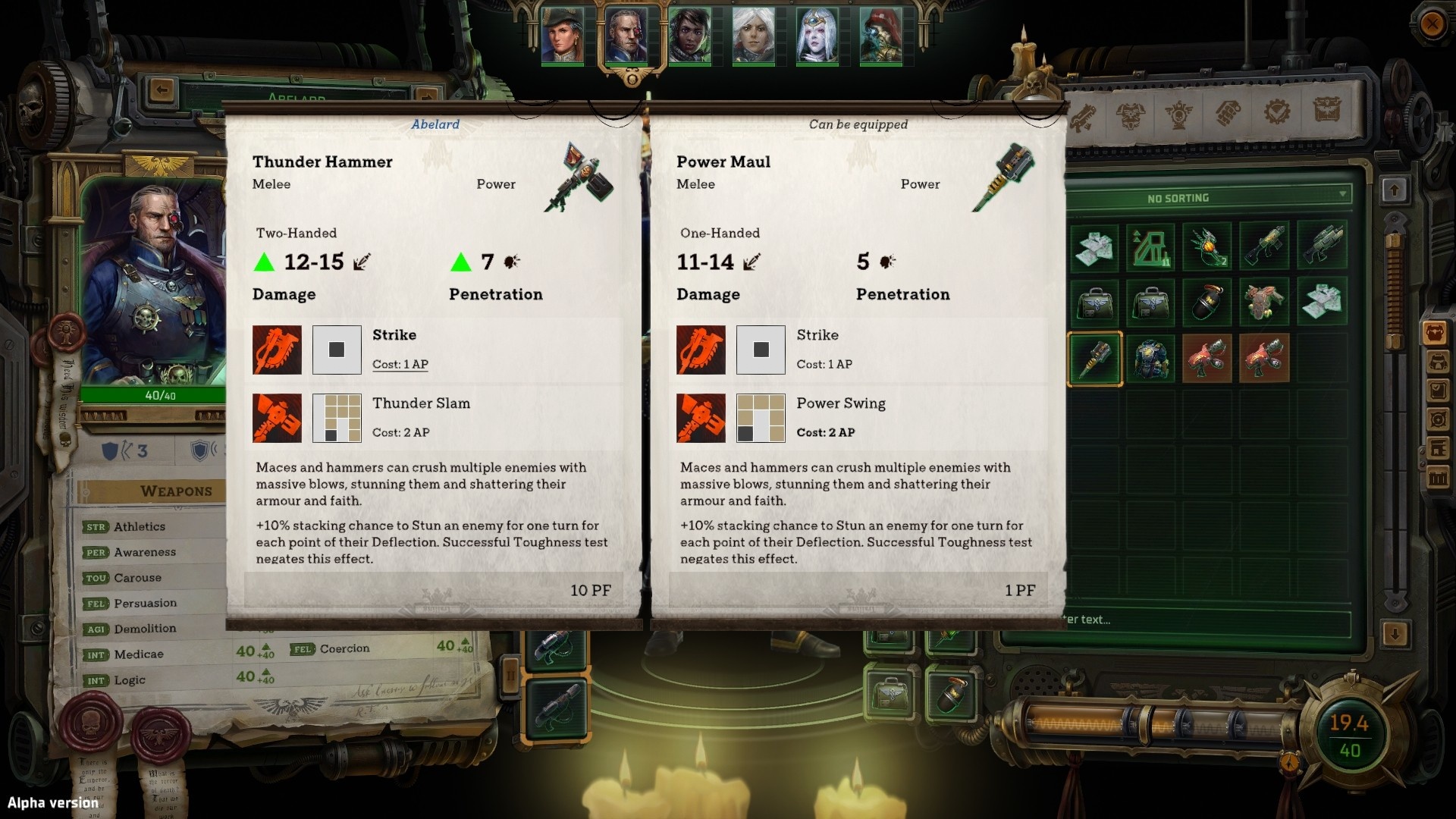
From space station to wealth
Leaving the Footfall space station, the Koronus expansion and its many secrets are waiting to be discovered by your free traders. On the sector map you scan the surroundings, use safe and less safe warp flight routes and explore unknown planetary systems. Similar but not half as annoying as in Mass Effect, you visit individual planets and interesting places by moving your ship to the desired location on the system map, mining resources or resolving events that even allow you to found colonies.
Of course, dangers also lurk here: If you use unsafe warp routes, there is a good chance that unwanted effects will appear on your ship. Hallucinations that make the crew go crazy are still the harmless variant – I have also experienced attacks by warp beings, which I of course had to repel.
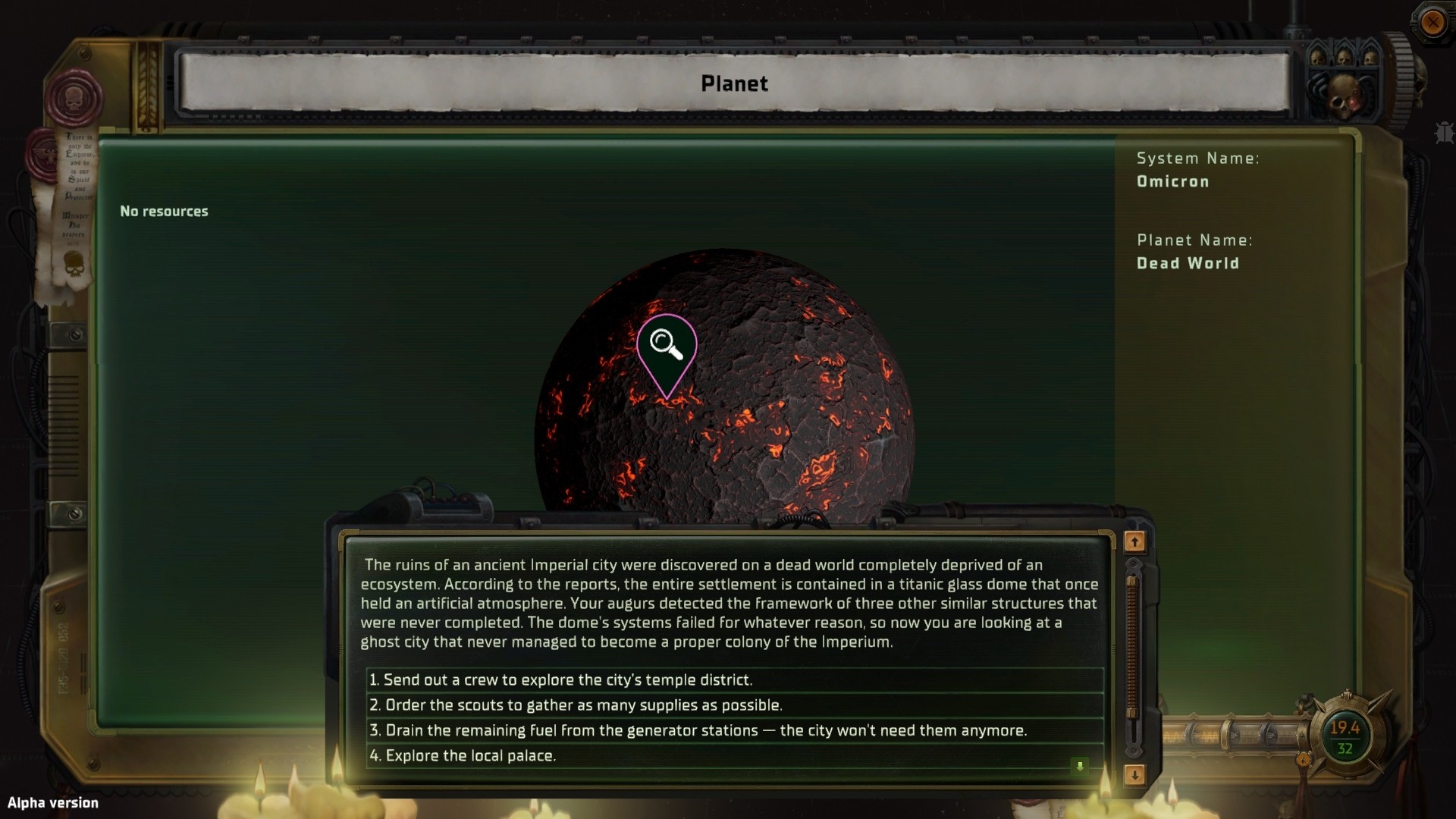
If you encounter pirates or other possible enemy ships, a space combat view opens where you control your ship turn-based according to the available movement points and shoot at enemies within range. The right manoeuvres are extremely important, as all shipboard weapons can only fire in a certain direction – good if you have some experience from Battlefleet Gothic: Armada 2!
If your ship shields, which consist of four parts, are weakened by attacks, more fire will damage the ship”s hull. And repairing them when you”ve survived a battle in a battered state consumes a lot of resources – you”d better put them into trade or expanding your colonies.
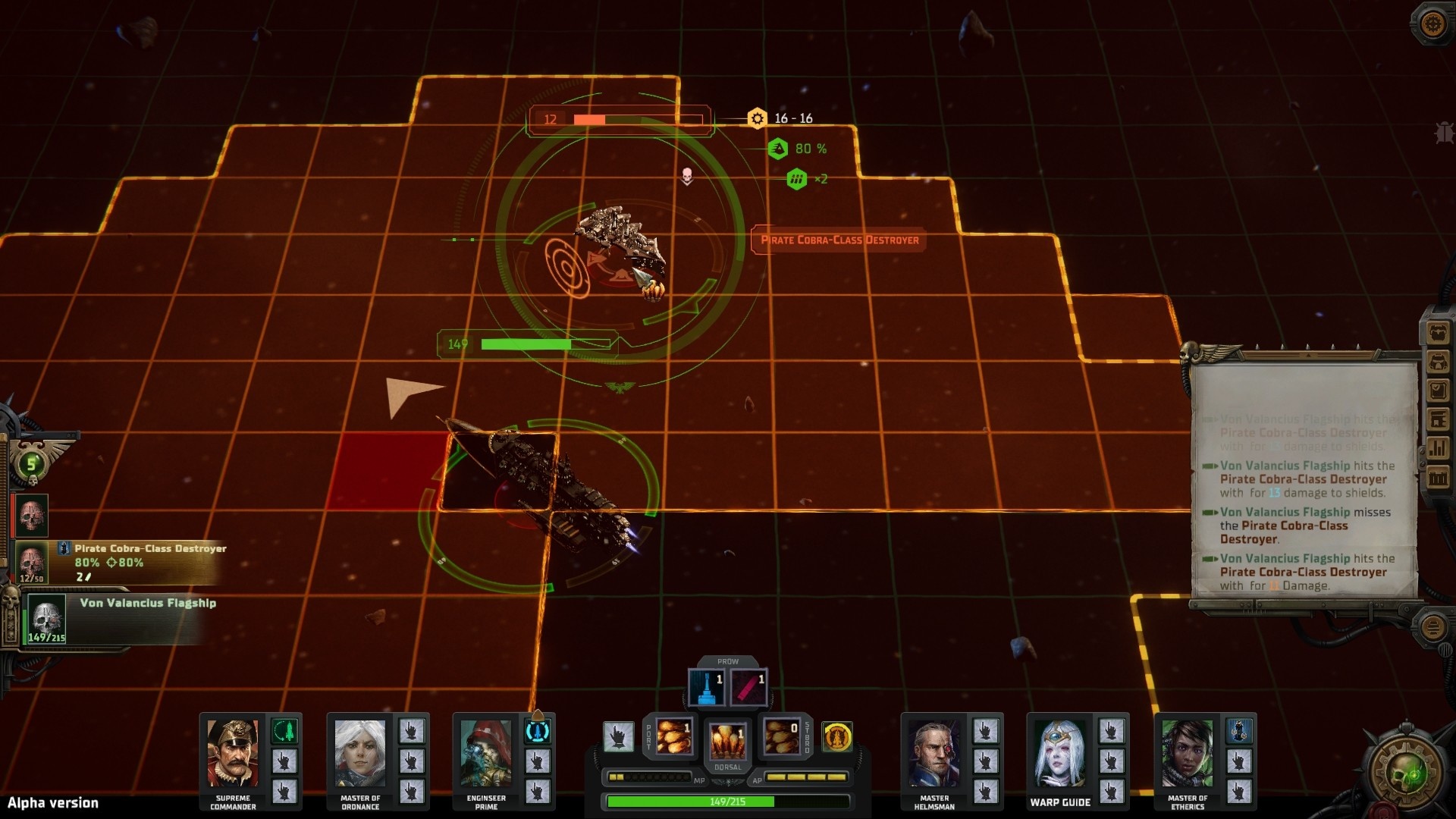
This Owlcat-typical, additional game level, with its combination of space exploration and space battles, already seems much more atmospheric and well thought-out in the alpha than the build-up game elements of Pathfinder: Kingmaker or the crusade mode of Pathfinder: Wrath of the Righteous.
It is not yet possible to judge how many worlds can be explored in the Koronus expansion, but the mixture between small, multi-part text events, system scans and loosening expeditions into creepy ships or to unknown planets makes one curious for more. For an alpha version, Rogue Trader already looks pretty well rounded, and apart from a few placeholder graphics and names, I didn”t notice anything unfinished – Owlcat is on the right track with this successful start.
Editorial conclusion
Great, Rogue Trader at last! was my first reaction when Owlcat”s latest throw-up was announced – because I”ve actually been waiting for a chance to finally play this setting for over ten years. Sure, the role-playing rulebook has been sitting around in my cupboard for quite a while, but I”ve never found a tabletop group for it. So it was all the nicer to see that Owlcat has obviously drawn a lot from the rulebook and sourcebooks to finally give Warhammer 40,000 a roleplaying game – and what a game it is!
It”s fun to slowly but surely bring back the trade empire of the Valencius dynasty, to discover new planets, to meet whimsical characters and to spray plenty of emperor enthusiasm in between. Of course, I can”t yet say how rich the story and implementation will be beyond the preview, but the first impression is excellent and shows exactly what I had hoped to see: a clean setting implementation, cool henchmen, whimsical first tasks and battles as well as an environment in which there is much to discover. If the game is accurate.

